New Collembola Species Discovered in Sikkim Highlands
Latest News: 26th December 2025, UPSC Preparation


Scientists from the Zoological Survey of India have discovered a new species of Collembola, or springtails, in the high-altitude region of Sikkim. The finding, published on December 1, 2025, represents the first-ever record of the genus “Neelus” from India, reinforcing the eastern Himalayas’ status as a global biodiversity hotspot.
First Indian Record of Genus Neelus
The newly identified species has been named “Neelus sikkimensis”. With this discovery, the total number of known species within the genus worldwide has increased to eight. Until now, members of this genus had not been documented within Indian territory, making the find taxonomically significant for the country’s soil biodiversity records.
Research Team and Scientific Publication
The study was conducted by the Apterygota Section of the Zoological Survey of India, led by Gurupada Mandal, with Kusumendra Kumar Suman as a key team member. The findings were published in the peer-reviewed “Journal of the Entomological Research Society”, highlighting the scientific rigor behind the discovery.
Distinctive Biological Characteristics
According to the researchers, “Neelus sikkimensis” exhibits several unique adaptations. The species has an extremely small body size, well suited for life deep within soil and moss layers. It lacks eyes entirely, a common trait among organisms inhabiting dark, subterranean environments. Most notably, it shows a distinctive labral chaetotaxy, or arrangement of mouth bristles, which clearly differentiates it from other species in the genus.
Imporatnt Facts for Exams
“Neelus sikkimensis” is the first record of genus “Neelus” in India.
The species was discovered in the high-altitude region of Sikkim.
Collembola are also known as springtails.
They act as bio-indicators of soil and environmental health.
Ecological Significance of Springtails
Collembola play a crucial role in maintaining soil health by aiding organic matter decomposition and nutrient cycling. Dhriti Banerjee, Director of the Zoological Survey of India, praised the research team and highlighted that micro-arthropods form the base of complex soil food webs. Lead researcher Mandal emphasised that the discovery underscores the need for more taxonomic studies across India’s diverse climatic regions, given the ecological importance of these often-overlooked organisms.
(NNI / Latest news / Latest news india / India latest news/UPSC Preparation)
Education Alert: UGC Flags Unrecognised ‘Universities’; Degrees Invalid
Latest News: 19th December 2025


The University Grants Commission (UGC) has issued a fresh warning to students, parents and employers after identifying three unauthorised institutions in Delhi, Maharashtra and Karnataka operating as fake universities. In its latest public notification, the higher education regulator declared that the National Institute of Management Solution (NIMS), Delhi, National Backward Krushi Vidypeeth, Solapur (Maharashtra) and Sarva Bharatiya Shiksha Peeth, Tumkur (Karnataka) are not recognised under the UGC Act, 1956 and lack any statutory authority to confer degrees or diplomas. The UGC emphasised that any qualifications issued by these entities carry no legal or academic validity, and warned that enrolling in such institutions could jeopardise students’ future education and employment prospects.
The regulator reiterated that legitimate universities must be listed on the official UGC recognised universities list and meet criteria under Sections 2(f) or 3 of the UGC Act, which these fake entities do not fulfil. In its advisory, the UGC urged students, parents and employers to carefully verify an institute’s recognition status before taking admissions or accepting degrees, noting that unrecognised institutions are neither approved by UGC nor by any statutory body such as the All India Council for Technical Education (AICTE). Authorities also maintained that degrees awarded by fake universities will be invalid for higher education or government jobs, underlining the importance of awareness in preventing academic and professional setbacks.
(NNI / Latest news / Latest news india / India latest news/UPSC Preparation)
11-Year-Old Challenges CM SHRI Entrance Test, Says It Undermines Right to Education
Latest News: 18th December 2025

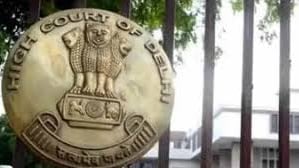
An 11-year-old student has approached the Division Bench of the Delhi High Court challenging the entrance test for admission to Class VI in CM SHRI Schools, arguing that it violates the spirit and letter of the Right of Children to Free and Compulsory Education (RTE) Act, 2009. The petitioner, Master Janmesh Sagar, represented by senior advocates, asserts that Section 13 of the RTE Act prohibits any screening or selection procedures for elementary school admissions and that the Delhi government’s admission test — conducted under a July 23, 2025 circular — creates an unfair barrier to children seeking quality public education. The appeal comes after a Single Bench of the Delhi High Court upheld the validity of the test, ruling that restrictions under the RTE Act apply only to initial entry levels such as Nursery and Class I, while admissions at the Class VI level can involve merit-based selection, particularly for schools classified as “specified category”.
The student’s legal team argues that the earlier judgment misinterprets the protective intent of the RTE Act and weakens constitutional guarantees under Article 21-A, which promises free and compulsory education for children aged six to fourteen years. They contend that entrance tests institutionalise discrimination by favouring children with greater access to coaching and resources and that alternative non-discriminatory methods — such as lotteries or randomised allocation — should be mandated if demand exceeds available seats. The Division Bench is expected to hear the appeal later this week, potentially setting a precedent for how public school admissions balance merit and equitable access in India’s capital.
(NNI / Latest news / Latest news india / India latest news/UPSC Preparation)
Class 10 Suicide Case Deepens: More Teachers Under Scanner In Delhi School
Latest News: 24th November 2025
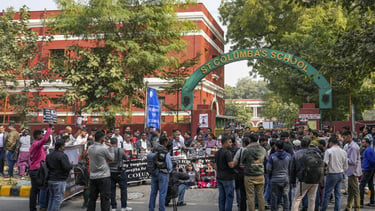

Delhi Police have summoned three additional teachers in connection with the tragic suicide of a Class 10 student, intensifying the investigation into allegations of academic pressure and harassment. According to officials, earlier testimonies and statements from classmates indicated possible misconduct from multiple staff members, prompting investigators to call more teachers for detailed questioning. The family of the deceased student continues to allege that persistent humiliation inside the classroom pushed the teenager towards the extreme step.
Sources close to the investigation say the police are examining school CCTV footage, classroom records, and internal communications to verify events leading up to the suicide. The Education Department has also initiated an internal inquiry and asked the school management to fully cooperate with authorities. The incident has reignited concerns over student mental health, with experts calling for stricter guidelines and accountability measures within schools to prevent such tragedies.
(NNI / Latest news / Latest news india / India latest news/UPSC Preparation)
Aligarh Madrasas Go Digital as Govt Mandates Biometric Tracking
Latest News: 22nd November 2025


The Uttar Pradesh administration has made biometric attendance compulsory for teachers across all madrasas in Aligarh, aiming to increase transparency and curb irregularities. According to education department officials, the decision follows multiple complaints of absenteeism and salary withdrawals by teachers who were allegedly not attending classes regularly. The digital attendance system will be linked to Aadhaar verification, ensuring that only present staff members are marked for the day.
Madarsa operators have been directed to install biometric devices within a specified time frame, failing which they may face administrative action. While some madrasa associations have welcomed the step as a move toward modernization and improved accountability, others argue that the decision was taken without adequate consultation. The district administration maintains that the reform will help improve the quality of education and streamline government-funded operations in religious schools.
(NNI / Latest news / Latest news india / India latest news/UPSC Preparation)
A First in India: IIM Sirmaur Introduces MBA Blending AI With Management Skills
Latest News: 21st November 2025
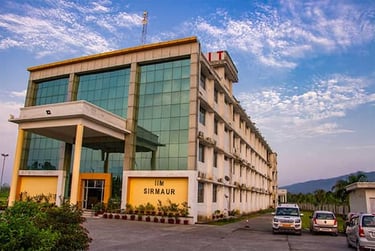

IIM Sirmaur has announced the launch of India’s first AI-integrated MBA programme for working professionals, marking a major shift in the evolution of management education in the country. The new curriculum blends traditional management subjects with artificial intelligence, data science, machine learning, and digital strategy, preparing professionals to lead in an era where business decisions are increasingly tech-driven. The institute stated that the programme aims to close the growing skill gap between industry demands and managerial readiness.
According to IIM Sirmaur, participants will learn to apply AI tools in business analytics, finance, operations, marketing, and strategic leadership. The hybrid format — combining online instruction with periodic on-campus immersion — is designed to accommodate working executives without disrupting their careers. Industry leaders have welcomed the programme, calling it a timely and future-ready intervention as companies across sectors adopt AI to enhance efficiency, innovation, and decision-making.
(NNI / Latest news / Latest news india / India latest news/UPSC Preparation)
Free AI Education: IIT Kharagpur Invites Students For January 19 Deep Learning Course
Latest News: 20th November 2025

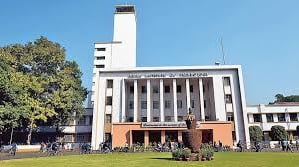
IIT Kharagpur has announced that applications are now open for its free Deep Learning and Artificial Intelligence course, scheduled to begin on January 19. The initiative aims to make advanced technology education accessible to a wider audience, especially students and professionals seeking to build AI skills without the burden of high fees. The course will be delivered by leading IIT faculty members and will cover key topics such as neural networks, computer vision, natural language processing, and modern AI frameworks.
According to the institute, the programme is designed to blend theoretical foundations with hands-on practice, ensuring learners gain real-world exposure to cutting-edge AI tools. Participants will also have the opportunity to work on guided projects and assessments throughout the course. IIT Kharagpur says the initiative reflects its commitment to democratising AI education and preparing India’s youth for rapidly expanding opportunities in the global tech sector. The course is expected to receive strong interest from learners across the country.
(NNI / Latest news / Latest news india / India latest news/UPSC Preparation)
CBSE Publishes 2025-26 Maths Sample Paper For Class 10, Boosting Exam Preparation
Latest News: 19th November 2025
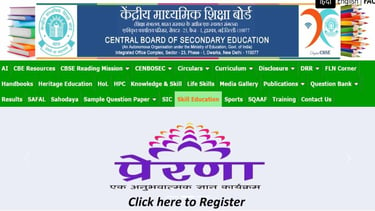

CBSE has officially released the Class 10 Mathematics Sample Paper for the 2025-26 academic year, giving students an early opportunity to understand the latest exam format and marking scheme. The board said the updated sample paper reflects this year’s slight shift towards application-based and competency-driven questions, a pattern CBSE has been steadily adopting across subjects. Along with the sample paper, the marking scheme has also been uploaded on the official website, helping students analyse solutions and evaluate their preparation.
Teachers and academic experts have welcomed the early release, noting that sample papers are one of the most reliable tools for scoring higher marks in board exams. With mathematics often considered a high-pressure subject, educators advise students to begin practicing chapter-wise numerical problems and full-length mock tests in line with the new pattern. Schools are expected to incorporate these papers into revision schedules, ensuring students gain confidence well before the pre-board and final examinations.
(NNI / Latest news / Latest news india / India latest news/UPSC Preparation)
IIT Kharagpur Expands Innovation Drive with Seventh Program for School Students
Latest News: 18th November 2025
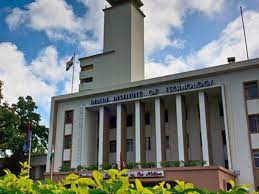

IIT Kharagpur has launched the seventh edition of its Young Innovators Program (YIP), an annual competition aimed at encouraging school students to explore science, technology, and real-world problem-solving. Designed for classes VIII to XII, the program offers young learners a platform to showcase innovation in emerging fields such as artificial intelligence, robotics, climate solutions, and healthcare technology. The institute announced that the initiative continues to receive overwhelming national and international participation, reflecting its growing reputation as one of India’s most impactful student innovation forums.
According to IIT Kharagpur, the program is structured to provide mentorship by faculty experts, hands-on exposure to advanced labs, and the chance to work on high-impact projects. Shortlisted teams will be invited to the campus for the grand finale, where they will present prototypes, interact with researchers, and receive guidance for future development. The institution hopes this year’s edition will further strengthen India’s pipeline of young innovators and inspire school students to take up STEM careers with a deeper understanding of real-world challenges.
(NNI / Latest news / Latest news india / India latest news/UPSC Preparation)
Student’s Death Shocks AIIMS Nagpur; Probe Suggests Non-Academic Reasons
Latest News: 14th November 2025

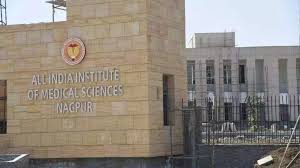
A first-year MBBS student at AIIMS Nagpur died by suicide in the hostel premises, sending shockwaves through the campus and prompting a detailed internal and police inquiry. The student, reportedly found unresponsive in their room, was rushed to the hospital but declared dead on arrival. Initial reports suggested the possibility of academic pressure, a common concern in medical institutions, but sources close to the investigation claim that early findings do not indicate study-related stress as a contributing factor.
According to officials familiar with the probe, the student showed no signs of struggling academically and had performed consistently in assessments. Investigators are now focusing on personal circumstances, digital evidence and interactions with peers to determine what may have led to the tragedy. Meanwhile, AIIMS Nagpur has expressed deep grief over the loss and assured full cooperation with authorities. The incident has reignited national conversations on the mental health challenges faced by students despite seemingly stable academic lives.
(NNI / Latest news / Latest news india / India latest news/UPSC Preparation)
International Conference on Bacteriophage Research Concludes at BHU
Latest News: 13th November 2025
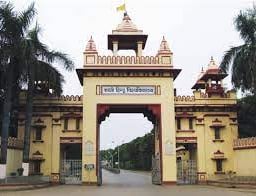

The Sixth International Conference on Bacteriophage Research and Antimicrobial Resistance concluded at Banaras Hindu University, reinforcing the global significance of phage-based solutions in combating drug-resistant infections. The two-day event gathered leading researchers, clinicians, and academicians to discuss sustainable scientific strategies.
Focus on Bacteriophage Science
The conference, known as ICBRAR-2025, offered a platform for deliberations on advancements in bacteriophage biology. Experts highlighted the therapeutic potential of phages as viable alternatives to conventional antibiotics, especially amid rising antimicrobial resistance worldwide.
Institutional Leadership and Participation
Senior academics and administrators from BHU emphasised the role of collaborative research in addressing antibiotic resistance. Key speakers acknowledged the increasing global focus on microbiology and the need to strengthen departments engaged in biomedical innovation through infrastructure and interdisciplinary partnerships.
Key Discussions and Scientific Themes
Delegates from India and abroad explored topics such as therapeutic phage applications, regulatory frameworks, translational microbiology, and emerging strategies to counter drug-resistant pathogens. The conference also highlighted the importance of integrating phage research with public health priorities.
Exam Oriented Facts
ICBRAR-2025 was held at Banaras Hindu University, Varanasi.
The event focused on bacteriophage research and antimicrobial resistance.
Over 250 delegates participated from India and abroad.
The conference emphasised phages as natural alternatives to antibiotics.
Strengthening Microbiology Research at BHU
Speakers reaffirmed the need to promote phage research as part of broader biomedical innovation efforts. The conference strengthened the university’s role as a hub for translational microbiology, encouraging further global collaborations and scientific contributions in the field.
(NNI / Latest news / Latest news india / India latest news/UPSC Preparation)
“Single-Platform ‘School Web App’ Unveiled by Delhi Govt to Streamline School Administration”
Latest News: 10th November 2025
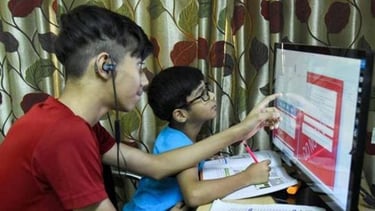

The Government of Delhi has formally launched the “School Web App”, a new digital initiative aimed at modernising the city’s school system by integrating academic, administrative and communication functions on a single platform. The platform will allow teachers, students and parents to access key information such as timetables, homework, notes, attendance and exam results digitally, thereby reducing paperwork and improving workflow efficiency in government schools.
According to Ashish Sood (Education Minister, Delhi), the app is aligned with the vision of National Education Policy 2020 and the broader goals of “Digital India” and “Viksit Bharat 2047”. He highlighted that by enabling real-time updates and better connectivity between schools and parents, the app seeks to make the education system more transparent and inclusive.
(NNI / Latest news / Latest news india / India latest news/UPSC Preparation)
JNU Students Cast Ballots in High-stakes Poll; Counting Begins This Evening
Latest News: 04th November 2025
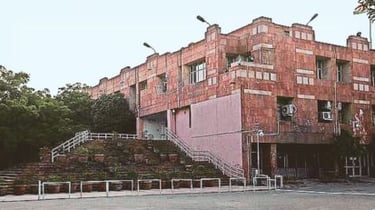

Polling concluded today at the campus of Jawaharlal Nehru University with students participating in the election for their Students’ Union (JNUSU) for the 2025-26 term. Voting commenced earlier in the morning and wrapped up in the evening after two sessions, amid an atmosphere of heightened interest and spirited engagement. The election pits major student groups including the Akhil Bharatiya Vidyarthi Parishad (ABVP) and the Left-aligned alliance of All India Students’ Association (AISA), Students’ Federation of India (SFI) and Democratic Students’ Federation (DSF) against each other, with around twenty candidates vying for four key central panel posts.
Counting of the ballots is scheduled to begin at 9 PM tonight, with the final result announcement expected on November 6. The election is being keenly watched not just for its outcome, but as a barometer of changing student politics at JNU—looking at issues such as infrastructure, gender representation and the campus atmosphere of debate and dissent. With increased female candidate participation and a campus teeming with campaign fervour, the results are likely to set the tone for the year ahead.
(NNI / Latest news / Latest news india / India latest news/UPSC Preparation)
President Murmu Meets Siddi Tribe, Urges Education
Latest News: 13th October 2025, UPSC Preparation
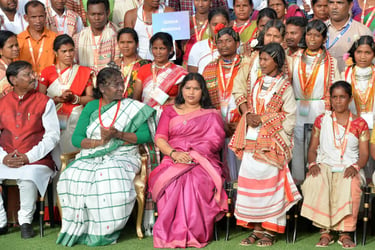

The President of India, Droupadi Murmu, recently engaged with the Siddi community in Junagadh district, Gujarat. The Siddis are a tribal group with African origins and classified as a Particularly Vulnerable Tribal Group (PVTG). The interaction focused on education, tribal welfare, and sustainable living.
Recent Interaction with Siddi Community
On 10 October 2025, President Murmu met members of the Siddi tribe. She praised their literacy rate of over 72 per cent, achievement for a PVTG. The President encouraged the community to continue pursuing education as a tool for empowerment and progress.
Government Initiatives for Tribal Welfare
President Murmu brought into light the Central government’s commitment to tribal development. She urged the community to stay informed about welfare schemes and actively use them. The President also called on the Siddis to assist others in their villages to access these benefits.
Promotion of Sustainable and Nature-Friendly Living
The President appreciated the tribal communities’ nature-friendly lifestyles. She described their way of life as an inspiration for sustainable development. This approach aligns with broader environmental goals and the preservation of traditional knowledge.
Role of Tribal Participation in National Development
Murmu stressed the importance of tribal participation in building an inclusive society. She emphasised respect for tribal culture and traditions as vital to social justice. Ensuring equality and protection of tribal rights is key to achieving India’s development goals by 2047.
Significance of President’s Visit to Gujarat
The visit included prayers at the Somnath temple and engagements with local communities. It reflects the ongoing focus on integrating tribal welfare with cultural and spiritual values. The three-day visit aimed to strengthen ties between the government and tribal populations.
(NNI / Latest news / Latest news india / India latest news/UPSC Preparation)
“Shutdown Chokes H-1B Pipeline: Indian Applicants Wait in Limbo”
Latest News: 07th October 2025


The U.S. government shutdown that began October 1, 2025, has brought H-1B visa processing to a standstill, particularly affecting Indian tech professionals who make up over 70% of H-1B beneficiaries. The Department of Labor (DOL), which is responsible for certifying Labor Condition Applications (LCAs)—a mandatory step before filing any H-1B petition—has suspended operations because it relies on appropriated funds and cannot function during appropriations lapses. Consequently, new H-1B petitions, transfers, or status changes that require fresh LCA approval cannot move forward until DOL funding is restored.
In contrast, the U.S. Citizenship and Immigration Services (USCIS) may continue processing filings that are fully fee-funded. But without certified LCAs, most new H-1B filings remain in limbo. Indian professionals awaiting visa stamps, extensions, or transfers face significant uncertainty. Job offers, renewals, or employer changes may have to be delayed until the funding impasse is resolved.
(NNI / Latest news / Latest news india / India latest news/UPSC Preparation)
“Modi’s Big Bet on Youth: Education, Skills & Monthly Aid for Bihar Graduates”
Latest News: 05th October 2025
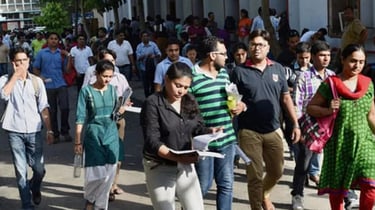

Prime Minister Narendra Modi has launched an expansive youth-oriented scheme worth over ₹62,000 crore, aimed at strengthening education, skilling, and employment prospects across India. At the Kaushal Deekshant Samaroh, he announced the PM-SETU (Skill Upgradation & Employability Transformation) programme, which will modernize and connect Industrial Training Institutes (ITIs) in a hub-and-spoke model, while inaugurating 1,200 vocational labs covering Navodaya Vidyalayas, Eklavya Schools, and more.The PM also flagged the revamped Bihar Student Credit Card Scheme, enabling interest-free education loans up to ₹4 lakh, and initiated academic and research infrastructure expansion in several university campuses across Bihar.
A notable element of the package is the revival of the Mukhyamantri Nishchay Swayam Sahayata Bhatta Yojana in Bihar, under which five lakh graduates will receive ₹1,000 per month for two years, along with free skill training opportunities. This stipend seeks to alleviate financial strain on unemployed graduates, encourage retention in the state, and better align skills with job market demands. The central government’s focus on combining financial re-inforcement with education and technical upskilling reflects its ambition to build a self-reliant and opportunity-rich future for India’s youth.
(NNI / Latest news / Latest news india / India latest news/UPSC Preparation)
"From Institutes to Innovators: IITs Envisioned as Drivers of Self-Reliance"
Latest News: 31 August 2025
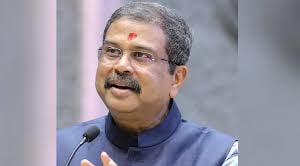

At the 56th IIT Council meeting, Education Minister Dharmendra Pradhan unveiled a comprehensive 25-year roadmap to transform Indian Institutes of Technology (IITs) into inclusive, research-driven, and future-focused institutions. Emphasizing that the IITs should act as “crowning jewels” of higher education, he aligned their trajectory with Prime Minister Modi’s vision of a “Samriddh, Viksit and Atmanirbhar Bharat” by 2047. The roadmap outlines strategic goals to enhance global partnerships, expand multidisciplinary collaborations, and foster entrepreneurship and innovation, positioning IITs as central to India’s scientific and societal progress.
Pradhan underscored that IITs must evolve beyond traditional academic excellence and spearhead innovation-led entrepreneurship and translational research. He highlighted the need to cultivate job creators, not just job seekers, and emphasized inclusivity by proposing the integration of regional languages in technical education. These institutions are being structured to address national challenges—from AI to clean energy—while remaining accessible to students from diverse backgrounds. As “instruments of transformation,” IITs are expected to drive economic growth, research commercialization, and inclusive empowerment across India.
(NNI / Latest news / Latest news india / India latest news/UPSC Preparation)
Unsafe Schools No More: Centre Directs Demolition or Repair Across States
Latest News: 19th August 2025
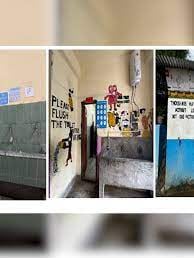

The Ministry of Education has directed all States and Union Territories to conduct urgent safety audits of school buildings and take immediate action on unsafe structures. The directive, issued on August 7, comes after recent tragedies such as the Rajasthan school roof collapse in July, which killed seven children. Under the new order, unsafe or dilapidated buildings must be repaired, retrofitted, or demolished, and cannot be used for classes until certified safe by engineers. States have also been instructed to arrange temporary safe spaces for students and convert vacated unsafe premises into playgrounds, nutrition gardens, or vocational training centres, ensuring children’s education continues without disruption.
Officials have been asked to ensure monthly monitoring and reporting of repair works through District Education Officers and disaster management authorities. Crucially, schools can only be re-occupied after receiving structural fitness certification. The directive also reinforces existing policies such as the 2016 NDMA School Safety Policy and the 2018 NCPCR Safety Manual, expanding them with stricter compliance. Education Minister Dharmendra Pradhan said the move shows “zero tolerance” towards unsafe learning environments. The Centre hopes the new accountability framework will not only prevent tragedies but also restore public trust by placing child safety and structural security at the heart of India’s education system.
(NNI / Latest news / Latest news india / India latest news/UPSC Preparation)
“Bihar Govt Cuts Exam Fees, Making Competitive Exams Affordable for All”
Latest News: 16th August 2025
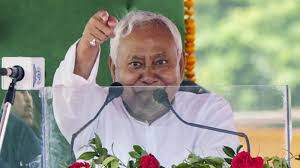

In a significant push to make government job exams more inclusive, Bihar Chief Minister Nitish Kumar announced a sweeping change in the fee structure for state-level competitive examinations.
Starting now, candidates need to pay just ₹100 for preliminary exams, while the mains exams will be entirely free. This applies across all state recruitment agencies—including the Bihar Public Service Commission (BPSC), Bihar Staff Selection Commission (BSSC), Bihar Technical Service Commission (BTSC), Bihar Police Subordinate Services Commission, and the Central Constable Selection Board.
This reform, revealed during the 79th Independence Day address, aims to eliminate financial hurdles for aspiring youth. “This will motivate and benefit lakhs of youth preparing for government jobs,” the Chief Minister said, highlighting a uniform fee model to ease the journey of exam takers.
The announcement arrives a few months before the state assembly elections, underscoring a push for equitable access to employment. It comes alongside measures like capital and interest subsidies, GST incentives, and free land provisions aimed at boosting industrial growth and generating more opportunities.
(NNI / Latest news / Latest news india / India latest news/UPSC Preparation)
Students to Learn Differently as NCERT Brings in NEP 2020 Textbooks
Latest News: 10th July 2025
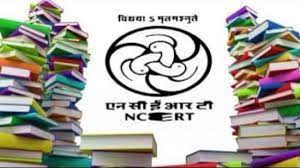

The National Council of Educational Research and Training (NCERT) has officially launched a new set of school textbooks designed in alignment with the National Education Policy (NEP) 2020. These revamped books mark a significant shift in India’s education system, focusing on experiential learning, critical thinking, flexibility, and multilingualism. The new textbooks are part of a broader initiative to reduce rote learning and promote conceptual understanding across subjects from the foundational to senior secondary levels.
The NEP 2020-based textbooks incorporate a modern, student-centric approach, with updated content, real-life applications, and activities that encourage curiosity and creativity. Digital integration is also a key feature, supporting hybrid learning methods and accessible education. The NCERT plans to roll out these books in phases, starting with key subjects and classes, aiming for full implementation across all grades in the coming academic years.
(NNI / Latest news / Latest news india / India latest news/UPSC Preparation)
Savitribai Phule National Institute of Women and Child Development Renamed
Latest News: 04th July 2025, UPSC Preparation
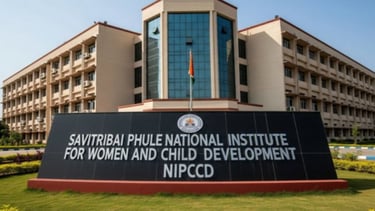

The National Institute of Public Cooperation and Child Development has been renamed the Savitribai Phule National Institute of Women and Child Development. This change reflects a commitment to enhancing the development of women and children in India. The Institute aims to provide mission-driven support tailored to regional needs.
New Regional Centre in Ranchi
A new Regional Centre will open in Ranchi, Jharkhand, on 4 July 2025. This Centre will cater specifically to the Eastern region, including Jharkhand, Bihar, Odisha, and West Bengal. It will focus on training and research for flagship programmes like Mission Shakti, Mission Vatsalya, and Mission Saksham Anganwadi and Poshan 2.0. Previously, these states relied on distant centres in Guwahati and Lucknow, which posed logistical challenges.
Capacity Building and Accessibility
The Ranchi Centre aims to enhance accessibility for over seven lakh functionaries across 115 districts. It will offer the Advance Diploma in Child Guidance and Counselling. This initiative is expected to empower frontline workers with better training access. It will also facilitate localised solutions and interventions for women’s empowerment and child welfare.
Tribute to Savitribai Phule
Renaming the Institute honours Savitribai Phule, a prominent social reformer in India. This act reaffirms the government’s commitment to women and child-centric development. The Institute’s focus on empowering women and children aligns with Phule’s legacy of social reform and education.
Strengthening Flagship Missions
The new Regional Centre will boost the implementation of flagship missions. It will provide tailored support to address local issues. The Centre will also promote better resource utilisation for enhanced outcomes in women’s empowerment and child welfare. This decentralised approach aims to ensure that no woman or child is left behind.
Commitment to Viksit Bharat 2047
Under the leadership of Prime Minister Shri Narendra Modi, the initiative aligns with the vision of a developed India by 2047. The Ranchi Centre will play a very important role in achieving these goals. It aims to create an inclusive and healthier society through targeted training and support for local functionaries.
Institute’s Role in Development
The Savitribai Phule National Institute serves as the apex body for training, research, and capacity building in women and child development. It operates regional centres in Bangalore, Guwahati, Lucknow, Indore, and Mohali. The Institute strengthens implementation mechanisms through both online and physical training programmes.
(NNI / Latest news / Latest news india / India latest news/UPSC Preparation)
NAVYA Initiative
Latest News: 25th June 2025, UPSC Preparation
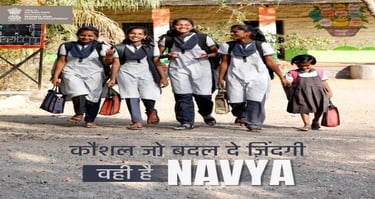

The NAVYA initiative is step towards empowering adolescent girls in India. Launched on 24th June 2025, this programme is a collaboration between the Ministry of Women and Child Development and the Ministry of Skill Development and Entrepreneurship. It aims to provide vocational training to girls aged 16 to 18 years, particularly in non-traditional job roles. The launch took place in Sonbhadra, Uttar Pradesh, denoting the government’s commitment to inclusive development.
Objective of NAVYA
NAVYA stands for Nurturing Aspirations through Vocational Training for Young Adolescent Girls. The programme is designed to equip girls with skills that enhance their employability. It targets those with a minimum qualification of Class 10. The initiative seeks to empower young women and encourage their independence.
Geographical Scope
The pilot initiative will be implemented in 27 districts across India. This includes aspirational districts and regions in the North-eastern states. The selection reflects a targeted approach to reach underserved populations. The government aims to ensure that girls in remote areas also benefit from this programme.
Collaboration and Institutionalisation
The NAVYA initiative formalises the collaboration between two ministries. This partnership aims to streamline skilling efforts for adolescent girls. By institutionalising this convergence, the government hopes to enhance the effectiveness of vocational training programmes.
Link to Existing Schemes
NAVYA draws from existing skill development schemes like the Pradhan Mantri Kaushal Vikas Yojana (PMKVY). This connection ensures that the initiative builds on proven frameworks. It also helps to maximise resources and reach a wider audience.
Empowerment through Skills
The initiative focuses on empowering girls with skills and confidence. By providing training in non-traditional job roles, NAVYA challenges gender stereotypes. It encourages young women to pursue careers in fields typically dominated by men.
Launch Event Highlights
The launch event featured interactions with adolescent girl trainees. Participants received certificates from PMKVY and PM Vishwakarma. These recognitions serve as motivation for the girls and validate their achievements.
Long-term Vision
NAVYA aligns with the Prime Minister’s vision of Viksit Bharat@2047. The initiative aims to create a self-reliant and inclusive future for young women in India. Through skill development, the government aspires to transform them into catalysts for change.
(NNI / Latest news / Latest news india / India latest news/UPSC Preparation)
Performance Grading Index (PGI) 2.0
Latest News: 21st June 2025, UPSC Preparation
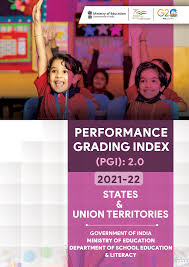

The Performance Grading Index (PGI) 2.0 report was released by the Union Ministry of Education on June 18, 2025. The PGI evaluates states based on various indicators that reflect the quality and accessibility of education. The report marks opportunity for improvement across all states.
Performance Grading Index Overview
The PGI assesses states on a scale of 1,000 points. It covers multiple factors such as learning outcomes, infrastructure, governance, and teacher training. None of the states achieved scores in the top range of 761-1,000. This indicates a collective need for enhancement in educational standards.
Chandigarh’s Achievement
Chandigarh scored 719 points, placing it in Grade Prachesta-1, which includes scores between 701 and 760. This achievement marks Chandigarh as a standout performer in the education sector.
Other States’ Performance
Ten states and Union Territories, including Punjab and Delhi, scored between 581 and 640, categorised as Grade Prachesta-3. In contrast, Meghalaya scored the lowest at 417, placing it in the Akanshi-3 category for scores between 401 and 460.
States Needing Improvement
Several states, such as Telangana and Assam, fall into the Akanshi-2 category with scores between 461 and 520. These states face challenges in enhancing their educational quality and performance.
Indicators of Access and Infrastructure
To evaluate educational access, indicators such as student enrolment, retention rates, and the transition of students to higher grades were analysed. Bihar and Telangana demonstrated the most improvements in this area.
Infrastructure Assessment
Infrastructure was assessed based on the availability of facilities like toilets, drinking water, libraries, and internet access. Delhi, Jammu & Kashmir, and Telangana showed the highest progress in infrastructure development from the previous year.
Scoring Mechanism
The scoring for each indicator is determined by multiplying the proportionate score by its weightage. For instance, if 50% of Grade 5 students achieve proficiency in Mathematics, the score for that indicator would be calculated as 20 times 0.5, resulting in a score of 10.
(NNI / Latest news / Latest news india / India latest news/UPSC Preparation)
"Andhra Pradesh's 'Talliki Vandanam' Scheme: Empowering Mothers with Financial Support for Education"
Latest News: 18th June 2025
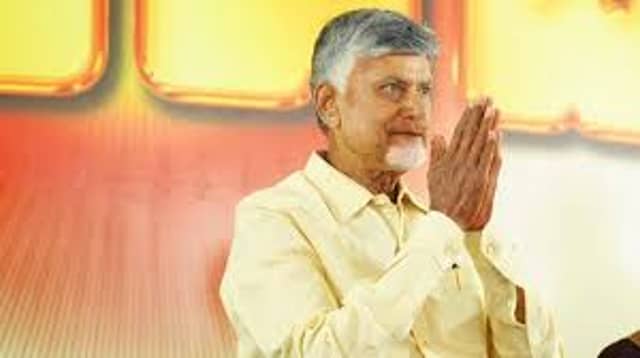

On June 12, 2025, the Andhra Pradesh government launched the "Talliki Vandanam" scheme, a significant welfare initiative aimed at supporting school-going children. Under this scheme, ₹15,000 will be provided annually to mothers or guardians of children enrolled in government and private schools from Class 1 to Class 12. The total allocation for the first year is ₹8,745 crore, benefiting approximately 67.27 lakh students across the state. The financial assistance is transferred directly to the mother's bank account, with ₹13,000 allocated for the mother's account and ₹2,000 earmarked for school development purposes.
This conversation underscores India's commitment to maintaining its sovereignty and handling bilateral issues independently. The rejection of external mediation aligns with India's long-standing position, as previously articulated in 2019 when Modi, alongside Trump, dismissed the need for third-party involvement in Kashmir. The recent ceasefire between India and Pakistan, which President Trump claimed to have mediated, has been a subject of domestic debate. While the ceasefire has been welcomed by some, opposition parties in India have questioned the extent of U.S. involvement and its implications on India's diplomatic autonomy. The government's firm stance in the recent phone call indicates a continued emphasis on resolving conflicts through direct dialogue without external interference.
(NNI / Latest news / Latest news india / India latest news/UPSC Preparation)
Education Emergency: Over 272 Million Children Denied Schooling Across the World
Latest News: 16th June 2025

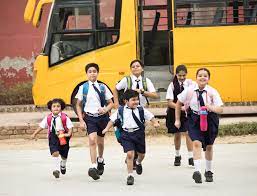
A recent global report has revealed a staggering figure: over 272 million children around the world are currently out of school, highlighting a worsening education crisis. This alarming number reflects children from various regions, including conflict zones, impoverished communities, and marginalized groups, who face barriers ranging from poverty and displacement to lack of infrastructure and social inequality. The report emphasizes how these children are being deprived of their basic right to education, impacting their future prospects and perpetuating cycles of poverty.
Experts warn that without immediate and coordinated efforts from governments, international organizations, and civil society, this education gap will only widen, especially in the wake of global challenges such as the COVID-19 pandemic and ongoing conflicts. The report calls for urgent policy reforms, increased funding, and targeted programs to reach the most vulnerable children and ensure inclusive, quality education for all. Addressing this crisis is critical not just for individual empowerment but also for achieving broader sustainable development goals worldwide.
(NNI / Latest news / Latest news india / India latest news/UPSC Preparation)
"NEET UG 2025 Sees Record-Breaking Participation, OBC Students Lead the Way"
Latest News: 15th June 2025

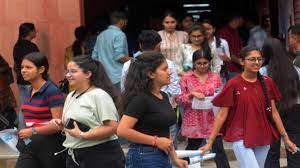
The National Testing Agency (NTA) has announced the results for NEET UG 2025, revealing a significant achievement for OBC students. Out of over 22 lakh candidates who appeared for the exam, more than 12.3 lakh have qualified, with a substantial number from the Other Backward Classes (OBC) category. This marks a notable increase in the success rate compared to previous years, highlighting the growing representation and success of OBC students in India's premier medical entrance examination.
The NEET UG 2025 results also indicate a decrease in the qualifying marks across various categories. For instance, the qualifying marks for OBC candidates have been reduced, reflecting a more inclusive approach in the examination process. This adjustment aims to provide greater opportunities for students from diverse backgrounds to pursue medical education, thereby fostering a more equitable academic environment.
(NNI / Latest news / Latest news india / India latest news/UPSC Preparation)
DU Expands Single Girl Child Quota to Postgraduate Programs
Latest News: 14th June 2025
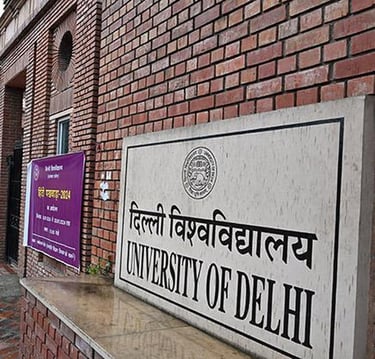

Delhi University (DU) has announced the extension of the Single Girl Child quota to all its postgraduate (PG) courses starting from the 2025-26 academic session. This move follows the successful implementation of the quota in undergraduate (UG) programs from the 2023-24 session, where 764 female students availed the reservation across 69 colleges. The university aims to promote inclusivity and provide more opportunities to girls who are the only child in their families. This quota grants an additional seat for single girl children in PG admissions, reinforcing DU’s commitment to gender equity and empowering women through higher education.
Admissions to the PG courses under this quota will follow the Common University Entrance Test (CUET-PG) and the Centralized Seat Allocation System (CSAS). The initiative complements DU’s existing reservation policies, which include provisions for sports quota, differently-abled candidates, war widows, and orphans. By expanding the Single Girl Child quota to postgraduate studies, DU is setting a precedent to encourage higher education among women and address gender disparities in advanced academic programs.
(NNI / Latest news / Latest news india / India latest news/UPSC Preparation)
"IIT Bombay's Eureka! 2023: School Students Now Eligible for Asia's Top Business Model Contest"
Latest News: 12th June 2025
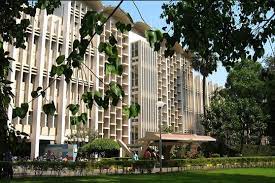

IIT Bombay's Entrepreneurship Cell has announced that school students are now eligible to participate in Eureka! 2023, Asia's largest business model competition. This marks a significant shift in the competition's inclusivity, traditionally open only to college students. The 26th edition of Eureka! aims to provide a platform for young minds to showcase their innovative business ideas and receive mentorship from industry experts. With prizes worth $120K, including AWS Credits, up for grabs, the competition offers an unparalleled opportunity for budding entrepreneurs to bring their ideas to life.
The five-month program will commence on October 15, 2023, and will consist of three intense training rounds designed to nurture robust business models. Participants will have access to networking opportunities with industry leaders, one-on-one mentorship, and a chance to secure funding from top venture capitalists. The program will culminate with a pitch day during IIT-B's E-Summit in February 2024, granting finalists an opportunity to present their ideas to industry experts. Standout entrepreneurs may even win a sponsored trip to Princeton University and entry to the global Tiger Launch competition.
(NNI / Latest news / Latest news india / India latest news/UPSC Preparation)
BTech in Design Now Offered at IIT Delhi: Check Course Highlights and Eligibility
Latest News: 11th June 2025
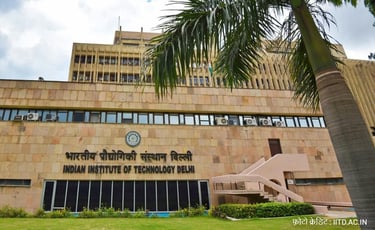

IIT Delhi has announced the launch of a new Bachelor of Technology (BTech) program specializing in Design, aimed at integrating technical education with creative and user-centered design principles. This innovative program is designed to equip students with skills that blend engineering, creativity, and problem-solving, preparing them for the evolving demands of industries such as product design, user experience, and innovation management. The curriculum focuses on a multidisciplinary approach, combining courses in design thinking, human-computer interaction, material science, and manufacturing technologies.
This new BTech in Design marks IIT Delhi’s commitment to fostering innovation at the intersection of technology and creativity. Prospective students interested in applying to this program should keep an eye on the upcoming admission notifications and eligibility criteria, which will be aligned with the institute’s rigorous academic standards. With this initiative, IIT Delhi aims to nurture a new generation of designers who can drive technological advancements while prioritizing user-centric solutions and aesthetics.
(NNI / Latest news / Latest news india / India latest news/UPSC Preparation)
"Delhi Govt Begins Teacher Recruitment Drive for 75 CM Shri Schools"
Latest News: 09th June 2025
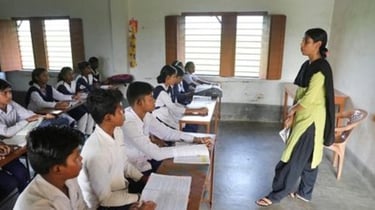

The Delhi government has initiated a recruitment drive to appoint teachers for 75 new CM Shri schools, set to become operational within a year. This initiative, announced in the Delhi Budget 2025–26, aims to enhance the quality of education by aligning with the National Education Policy (NEP) 2020 and the National Curriculum Framework (NCF) 2023. The recruitment process is open to current government school teachers, offering positions such as Primary Teachers (PRTs), Trained Graduate Teachers (TGTs), Postgraduate Teachers (PGTs), and miscellaneous subject teachers. Eligible candidates must have at least five years of service remaining until retirement and are required to submit their applications via email by June 9, 2025.
To facilitate the selection process, the Directorate of Education has scheduled interface sessions on June 11 and 12, 2025. These sessions aim to assess the suitability of applicants for the CM Shri schools' pedagogical model. The CM Shri schools are part of a ₹100 crore initiative, with 12 schools being fully reconstructed and 63 others being established in existing government buildings that will be refurbished to meet upgraded standards. The focus of these schools includes modern infrastructure, smart classrooms, AI-based learning tools, and courses in data science and robotics, reflecting the government's commitment to transforming education in Delhi.
(NNI / Latest news / Latest news india / India latest news/UPSC Preparation)
"Education Minister Meets Protesters, Assures to Discuss RAS Mains Postponement with CM"
Latest News: 08th June 2025
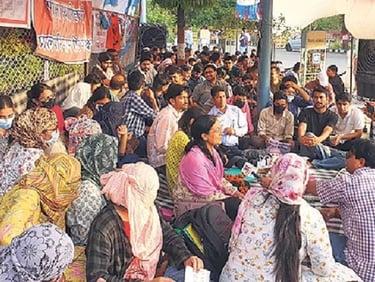

The demand to postpone the Rajasthan Administrative Services (RAS) Mains Examination has intensified, with candidates continuing their hunger strike in Jaipur. The examination is scheduled for June 17-18, but aspirants argue that the timeline is inadequate for preparation. Many candidates are still awaiting results from the RAS 2023 interview process, leading to concerns about overlapping recruitment cycles and fairness in the examination process. Despite support from political leaders and student organizations like the Akhil Bharatiya Vidyarthi Parishad (ABVP), the Rajasthan Public Service Commission (RPSC) has maintained that the exam will proceed as scheduled.
In response to the protests, Education Minister Madan Dilawar met with the demonstrators and assured them that their concerns would be conveyed to Chief Minister Ashok Gehlot. He acknowledged the validity of their demands and expressed support for a fair resolution. However, the RPSC has yet to announce any changes to the examination schedule. The situation remains tense, with candidates vowing to continue their protests until their demands are addressed.
(NNI / Latest news / Latest news india / India latest news/UPSC Preparation)
UP Police, NCERT Team Up to Nab 5 Lakh Fake Textbooks in Major Bust
Latest News: 06th June 2025


In a major crackdown against piracy, the National Council of Educational Research and Training (NCERT), in collaboration with the Uttar Pradesh Police, seized over 5 lakh pirated textbooks estimated to be worth Rs 20 crore. The operation targeted illegal printing presses and distributors involved in mass-producing counterfeit NCERT books, which are widely used by students across India for school education. This move is expected to curb the rampant piracy that not only causes huge revenue losses to the government but also compromises the quality of educational materials available to students.
The authorities have intensified efforts to dismantle such illegal networks to protect intellectual property rights and ensure students receive authentic, accurate textbooks. Pirated books often contain errors or outdated content, which can negatively impact the learning experience. The successful raid sends a strong message against copyright infringement and highlights the importance of collaboration between educational bodies and law enforcement to safeguard the education ecosystem.
(NNI / Latest news / Latest news india / India latest news/UPSC Preparation)
UPSC Civil Services Prelims 2025 Result Expected Soon: Check Official Release Date and How to Access Your Scorecard
Latest News: 05th June 2025, UPSC Preparation
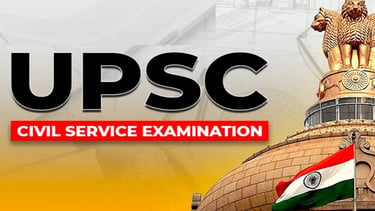

The Union Public Service Commission (UPSC) is anticipated to announce the results of the Civil Services Preliminary Examination 2025 by June 14, 2025. The examination was conducted on May 25, 2025, across the country in two shifts. Following the declaration of results, qualified candidates will be required to fill out the Detailed Application Form-I (DAF-I) to proceed to the Mains Examination. The DAF-I portal is expected to be made available shortly after the preliminary results are released.
Candidates can check their results by visiting the official UPSC website at upsc.gov.in and downloading the PDF result file. The result will list the roll numbers of those who have qualified for the next stage. Aspirants are encouraged to monitor the UPSC website and follow official notifications for further updates.
(NNI / Latest news / Latest news india / India latest news/UPSC Preparation)
Jan Aushadhi Kendra Experiential Learning Program 2025
Latest News: 04th June 2025, UPSC Preparation
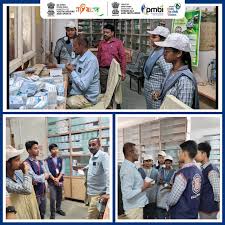

The Jan Aushadhi Kendra (JAK) Experiential Learning Program is a new initiative launched by the Government of India on 1st June 2025. This programme is part of the broader campaign ‘Seva Se Seekhen Learn by Doing’. It aims to enhance community engagement and youth skill development. The Ministry of Youth Affairs and Sports collaborates with the Department of Pharmaceuticals to implement this initiative.
Programme Overview
The JAK Experiential Learning Program places five youth volunteers in each district’s Jan Aushadhi Kendras. These Kendras provide affordable and quality generic medicines to citizens. The programme lasts for 15 days and focuses on hands-on learning experiences for participants.
Target Audience
The programme targets youth from various platforms. Participants include members from MY Bharat, National Service Scheme (NSS), MYB Kendra, pharmacy colleges, and other youth organisations. This diverse representation ensures a broad outreach across the country.
Key Responsibilities of Volunteers
Volunteers engage in several essential tasks. They assist with daily operations and customer interactions. They support inventory and medicine management. Additionally, they promote awareness about generic medicines and public health literacy. Observing backend logistics and supply chain processes is also part of their role.
Benefits to Participants
The initiative offers numerous benefits to youth. Participants gain practical exposure to the functioning of Jan Aushadhi Kendras. They learn inventory management and basic record-keeping skills. The programme also develops business discipline and customer handling abilities. Most importantly, it encourages an understanding of accessible healthcare.
Objectives of the Campaign
The ‘Seva Se Seekhen’ campaign has clear objectives. It aims to encourage experiential learning in service environments. The initiative enhances public health awareness and promotes generic medicine outreach. It also focuses on developing soft and technical skills related to inventory and logistics. Furthermore, the campaign encourages values like discipline, empathy, and grassroots engagement.
Nationwide Deployment
The programme is set for nationwide deployment. Each district will have five youth volunteers embedded in five Jan Aushadhi Kendras. The initiative expects to reach all state of Indias and Union Territories. This extensive outreach aims to maximise the impact on youth and public health.
Structured Internship
The programme offers a structured internship experience. Participants engage in guided tasks and observations throughout the 15-day period. This hands-on approach ensures that youth not only learn but also actively contribute to community service.
(NNI / Latest news / Latest news india / India latest news/UPSC Preparation)
Radical Students Union
Latest News: 28th May 2025, UPSC Preparation


The Radical Students Union (RSU) emerged in the 1970s as student organisation in India, particularly in the context of the socio-political upheaval following the killing of George Reddy. His assassination in 1972 ignited protests and student mobilisations, leading to the formation of the RSU in 1975. This organisation became a vital force in shaping the ideological landscape of Maoism in India. Although the RSU was banned in 1992, its legacy continues to influence contemporary Maoist movements.
Early Origins and Context
The RSU was born from the socio-political chaos of the late 1960s and early 1970s. The Naxalbari movement sparked widespread student uprisings across India. George Reddy’s death acted as a catalyst for these movements, particularly at Osmania University. Students rallied against issues like poverty and caste discrimination, leading to the formation of radical student groups.
Key Events and Mobilisation
The RSU’s influence peaked during the 1970s. It was closely associated with the People’s War Group, a Maoist faction. The RSU’s members actively participated in protests and uprisings, notably the Srikakulam Peasant Uprising. Their campaigns included “Go to the Villages,” where students engaged directly with rural communities to address local issues.
Structure and Ideology
The RSU was characterised by its radical ideology, viewing education as a means to achieve social revolution. It aimed to mobilise students around pressing social issues. The organisation was known for its commitment to social justice and community rights, which resonated with many students at the time.
Decline and Ban
The RSU faced government backlash and was banned in 1992. This ban led to a decline in its activities. However, many members continued to operate within other Maoist groups. The merger of the People’s War and Maoist Communist Centre in 2004 further integrated RSU members into the CPI (Maoist) structure.
Lasting Influence
Despite its ban, the RSU’s impact remains evident. Key figures in the CPI (Maoist) trace their roots to the RSU. The organisation’s legacy is commemorated annually, reflecting its historical significance. Events marking its 50th anniversary brought into light its contributions to social awareness and activism.
Contemporary Relevance
As the Government of India sets a deadline to end Naxalism by 2026, the RSU’s historical context provides insight into current Maoist dynamics. The ideological foundations laid by the RSU continue to influence contemporary student movements and Maoist strategies in India.
(NNI / Latest news / Latest news india / India latest news/UPSC Preparation)
Delhi Govt. Takes Step Forward with Pre-Vocational Education in Schools
Latest News: 26th May 2025
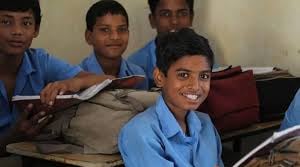

The Delhi government has announced a new initiative to introduce a Pre-Vocational Education Programme across its government schools, aiming to equip students with essential skills alongside traditional academics. This programme is designed to expose students to practical and vocational subjects early on, helping them gain hands-on experience and better prepare for future career opportunities. The curriculum will include a variety of skill-based modules tailored to meet the demands of the evolving job market, fostering a more holistic development approach.
Education officials highlighted that the initiative is part of a broader effort to bridge the gap between education and employability, especially for students from underserved communities. By integrating pre-vocational courses into the school system, the Delhi government hopes to create a more skilled youth population, ready to contribute effectively to the workforce. The programme is expected to be implemented in phases, starting with select schools, with plans for wider rollout based on initial feedback and outcomes.
(NNI / Latest news / Latest news india / India latest news/UPSC Preparation)
'Eco-Warrior' Campaign: Delhi Government's New Strategy to Engage Youth in Sustainability
Latest News: 25th May 2025
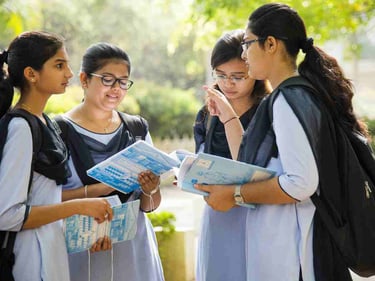

In a significant move towards environmental conservation, the Delhi government has launched a comprehensive campaign to nurture 'eco-warriors' among students across schools and colleges. The initiative, unveiled on International Biodiversity Day, aims to sensitize approximately 2 lakh students about climate change, ecosystem services, and sustainable lifestyles. A Memorandum of Understanding (MoU) was signed between the Delhi Environment Department and The Energy and Resources Institute (TERI), with an investment of Rs 40 lakh to support the programme's execution. The campaign will leverage 2,000 eco-clubs across educational institutions, engaging students in hands-on projects, interactive modules, and outreach efforts to empower them as climate ambassadors.
A core component of the programme involves the identification and capacity building of 80 'Paryavaran Sanrakshaks'—students and educators trained as eco-leaders. These individuals will help scale and sustain the campaign by training others within their institutions. Environment Minister Manjinder Singh Sirsa emphasized the importance of youth engagement in leading environmental change, stating that if young minds understand the value of clean air, green spaces, and balanced ecosystems, they will ... the planet desperately needs.
(NNI / Latest news / Latest news india / India latest news/UPSC Preparation)
"CBSE High Achievers Offered Full Scholarships at University of Hong Kong"
Latest News: 24th May 2025
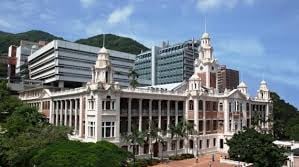

The University of Hong Kong (HKU) has announced a significant initiative to support outstanding CBSE students by offering full-ride scholarships for undergraduate programs. This move aims to encourage academic excellence and foster global talent. The scholarships will cover full tuition fees, accommodation, and general living expenses, providing a comprehensive support package for the recipients. Eligible students must have achieved exceptional scores in their CBSE examinations and meet specific academic criteria set by HKU.
This initiative is part of HKU's broader strategy to attract top-tier international students and enhance the diversity of its academic community. The university has a history of offering generous scholarships to international students, recognizing their potential to contribute to the global academic landscape. By providing these full-ride scholarships, HKU not only supports individual academic journeys but also strengthens its position as a leading institution in Asia and the world. Prospective applicants are encouraged to apply early and ensure they meet all eligibility requirements to take advantage of this opportunity.
(NNI / Latest news / Latest news india / India latest news/UPSC Preparation)
Mizoram Achieves Full Literacy Status in 2025
Latest News: 23rd May 2025, UPSC Preparation
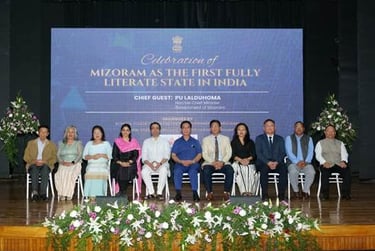

Mizoram has made history by becoming the first fully literate state in India. The announcement was made by Chief Minister Lalduhoma during a ceremony in Aizawl. This achievement follows years of dedicated efforts to improve literacy rates across the state. Mizoram’s literacy rate now stands at an impressive 98.20%, as confirmed by the PFLS survey for 2023–24.
Background
Mizoram has a rich history of high literacy rates. According to the 2011 Census, the state had a literacy rate of 91.33%. This placed it among the top states in India. The commitment to education has been a priority since Mizoram attained statehood in 1987.
ULLAS – Nav Bharat Saaksharta Karyakram
The ULLAS programme was launched to enhance adult literacy. It aims to educate individuals aged 15 and above who missed formal schooling. The initiative focuses on foundational literacy, critical life skills, vocational skills, and continuing education. It is aligned with the National Education Policy 2020 and runs from 2022 to 2027.
Survey and Identification of Non-Literates
In August and September 2023, a door-to-door survey identified 3,026 non-literate individuals. Of these, 1,692 participated in learning activities. This outreach was crucial for achieving full literacy status.
Role of Volunteer Teachers
The success of the literacy programme relied heavily on the commitment of 292 volunteer teachers. These individuals included students, educators, and local officials. Their dedication encourageed a spirit of Kartavya Bodh, or a sense of duty, contributing to the educational transformation of the state.
National Context and Comparisons
Mizoram’s achievement sets a new benchmark for educational success in India. Earlier, in June 2024, Ladakh became the first administrative unit to achieve full literacy. However, Mizoram’s status as a full state with this accomplishment marks the potential for universal education across India.
Impact of ULLAS on National Literacy
The ULLAS scheme has had national impact. Over 2.37 crore learners have registered, with more than 40.84 lakh volunteer teachers on the ULLAS mobile app. The programme has facilitated the participation of over 1.77 crore neo-literates in the Foundational Literacy and Numeracy Assessment Test (FLNAT).
(NNI / Latest news / Latest news india / India latest news/UPSC Preparation)
Dr M. R. Srinivasan, Pioneering Nuclear Scientist Passes Away
Latest News: 22nd May 2025, UPSC Preparation
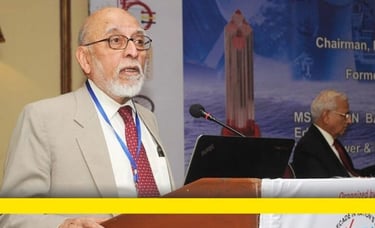

Dr M. R. Srinivasan, a pioneering Indian nuclear scientist and mechanical engineer, passed away on 20 May 2025 in Udhagamandalam, Tamil Nadu, at the age of 95. Renowned for his instrumental role in India’s nuclear energy programme, he served as the former Chairman of the Atomic Energy Commission and was the founding Chairman of the Nuclear Power Corporation of India Limited (NPCIL).
Early Life and Education
Born on 5 January 1930 in Bangalore, then part of Mysore State, Dr Srinivasan was the third of eight siblings. He pursued his early education in Mysore, choosing Sanskrit and English as his languages of study. Despite a keen interest in physics, he enrolled at the University Visvesvaraya College of Engineering (UVCE), founded by M. Visvesvaraya, where he earned a bachelor’s degree in Mechanical Engineering in 1950. He furthered his education at McGill University in Montreal, Canada, obtaining a master’s degree in 1952 and a PhD in 1954, specialising in gas turbine technology.
Career in Nuclear Science
Dr Srinivasan commenced his illustrious career in September 1955 by joining the Department of Atomic Energy (DAE), where he worked closely with Dr Homi Bhabha on constructing Apsara, India’s first nuclear research reactor, which achieved criticality in August 1956. In 1959, he was appointed Principal Project Engineer for India’s first atomic power station. By 1967, he became the Chief Project Engineer at the Madras Atomic Power Station, contributing significantly to India’s self-reliant nuclear power capabilities.
In 1974, Dr Srinivasan was appointed Director of the Power Projects Engineering Division at the DAE. A decade later, he became Chairman of the Nuclear Power Board. His leadership culminated in 1987 when he was appointed Chairman of the Atomic Energy Commission and Secretary of the Department of Atomic Energy. That same year, he became the founding Chairman of NPCIL. Under his stewardship, India developed 18 nuclear power units, with seven operational, seven under construction, and four in the planning stages.
Contributions Beyond Nuclear Energy
Dr Srinivasan’s expertise extended beyond nuclear science. From 1990 to 1992, he served as a senior advisor at the International Atomic Energy Agency (IAEA) in Vienna. He was a member of India’s Planning Commission from 1996 to 1998, overseeing Energy and Science & Technology portfolios. Additionally, he served on India’s National Security Advisory Board during 2002–2004 and 2006–2008 and chaired the Task Force on Higher Education in Karnataka from 2002 to 2004.
Awards and Recognitions
In recognition of his monumental contributions, Dr Srinivasan received several prestigious awards:
Padma Shri in 1984
Padma Bhushan in 1990
Padma Vibhushan in 2015
He was also a founder-member of the World Association of Nuclear Operators (WANO) and held fellowships with the Indian National Academy of Engineering and the Indian Nuclear Society.
Legacy
Dr M. R. Srinivasan’s passing marks the end of an era in India’s scientific and technological advancement. His visionary leadership and technical brilliance laid the foundation for India’s self-reliant nuclear energy programme, ensuring energy security and technological progress. His legacy continues to inspire future generations in the fields of science and engineering.
(NNI / Latest news / Latest news india / India latest news/UPSC Preparation)
Biodiversity Funding Gaps for Local Communities
Latest News: 21st May 2025, UPSC Preparation


Recent studies have brought into light disconnect between biodiversity funding and the local communities that manage these vital resources. Conducted by the International Institute for Environment and Development (IIED), the analysis focused on the Global Environment Facility (GEF). This institution aims to mobilise $200 billion annually for biodiversity under the Kunming-Montreal Global Biodiversity Framework. However, most funding fails to reach Indigenous Peoples and local communities (IPLC), who are crucial custodians of biodiversity.
Key Findings of the Study
The study examined GEF funding in five countries – Kenya, the Philippines, Malawi, Vanuatu, and Antigua. It revealed that while some funds were allocated to local actors, most were indirect beneficiaries. For instance, in Malawi, only one local organisation received a mere 0.3% of a project’s budget directly. This trend shows a systemic issue in funding distribution.
Challenges Faced by Local Communities
Many IPLC groups reported challenges in accessing GEF funds. In Bangladesh, no local recipients were identified as projects had not begun. In the Philippines, an indigenous group struggled since 2009 to obtain clear information on funding applications. These barriers highlight the lack of transparency and accessibility in the funding process.
Role of Intermediaries
The funding gap is exacerbated by GEF’s reliance on large international agencies and development banks as intermediaries. These agencies often make decisions without consulting local communities, leading to confusion and delays. Many indigenous organisations lack understanding of the funding process, resulting in missed opportunities.
Successful Initiatives – Small Grants Programme
The GEF Small Grants Programme (SGP) has shown promise in directly supporting local groups. Grants up to $50,000 have been effectively used for community-led projects, such as restoring a village reservoir in Antigua. However, the small funding amounts and approval delays remain obstacles, particularly for remote communities.
Gender Inequality in Funding
The study also brought into light gender gap in GEF funding. Although gender indicators exist, they are seldom applied effectively. Indigenous and local women, who play vital roles in resource management, are frequently excluded from decision-making processes and funding opportunities.
Recommendations for Improvement
As the next GEF funding discussions approach, experts suggest several changes. They advocate for expanding the successful SGP model to all funding streams, publishing clear data on fund allocation, and simplifying the application process for local groups. Emphasising long-term, flexible funding will enhance local organisations’ capacity to lead projects.
Need for Local-Led, Gender-Responsive Action
Experts stress the urgency for committing to principles that support local-led and gender-responsive biodiversity action. This approach is essential for ensuring that the communities most connected to nature receive the necessary resources to protect and restore biodiversity.
(NNI / Latest news / Latest news india / India latest news/UPSC Preparation)
Gender Disparity in STEM Education and Workforce
Latest News: 20th May 2025, UPSC Preparation
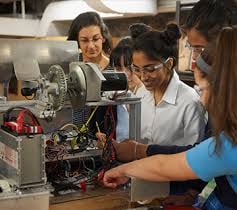

The issue of gender disparity in Science, Technology, Engineering, and Mathematics (STEM) fields remains concern globally. Despite various initiatives, only 35 per cent of STEM graduates are women. This statistic has not improved over the past decade. Research by UNESCO’s Global Education Monitoring (GEM) marks the barriers women face in pursuing STEM careers. Low confidence in mathematics and pervasive gender stereotypes are major contributors to this trend.
Current Statistics and Trends
Recent data shows that women constitute only 26 per cent of the workforce in data and Artificial Intelligence (AI). The representation is even lower in engineering and cloud computing. Only one in four women with an IT degree enter digital occupations, compared to over half of men. This gender gap in STEM not only limits opportunities for women but also hampers societal progress.
Barriers to Female Participation
Negative gender stereotypes impact girls’ confidence in mathematics. Even high-performing girls often doubt their abilities. This lack of confidence discourages them from pursuing STEM fields. Additionally, societal expectations and biased perceptions about gender-appropriate careers further restrict women’s participation in STEM.
Policies and Initiatives
While 68 per cent of countries have policies supporting STEM education, only half specifically target girls and women. Effective policies should include gender-responsive school counselling and career orientation. These initiatives can help nurture girls’ interests in STEM and Technical and Vocational Education and Training (TVET).
Recommendations for Improvement
GEM has proposed several actions to address gender imbalance. These include professional training for teachers in gender-responsive guidance and career counselling. Schools should create STEM clubs led by female students and teachers. Partnerships with local businesses can provide girls with opportunities to engage with female STEM professionals.
Role Models and Mentorship
Visible role models are crucial for inspiring girls in STEM. Mentorship can challenge stereotypes and encourage girls to pursue technical careers. Schools should invite female STEM professionals to speak to students, showcasing successful women in the field.
Teacher Training
Training teachers to address gender bias is essential. Educators should use gender-neutral language and provide opportunities for girls to explore STEM activities. Reviewing teaching materials for bias is also necessary to ensure all students feel included in STEM education.
Digital Competence Framework
A framework for digital competences should guide skill acquisition for all learners, regardless of gender. Enhancing girls’ digital literacy can help close the skills gap. Teachers should aim to make STEM relevant to girls’ interests and address their biases.
(NNI / Latest news / Latest news india / India latest news/UPSC Preparation)
CBSE 2025: Re-evaluation and Verification Process Details Released
Latest News: 19th May 2025


The Central Board of Secondary Education (CBSE) has announced that the re-evaluation and verification window for the 2025 board exams will open soon. This process allows students who are dissatisfied with their marks to request a re-evaluation or verification of their answer sheets. To initiate this process, students must first obtain a photocopy of their evaluated answer book. Once they have reviewed their answer sheets, they can proceed with the re-evaluation or verification request. This new procedure aims to enhance transparency and ensure that students have a clear understanding of their evaluated answers before seeking further action.
The CBSE has emphasized that all applications for re-evaluation or verification must be submitted online within the specified timeframe. No offline applications will be accepted, and late requests will not be entertained. The detailed guidelines, including timelines and application procedures, will be released after the declaration of the 2025 board exam results. Students are advised to regularly check the official CBSE website for updates and to ensure they do not miss the application window.
(NNI / Latest news / Latest news india / India latest news/UPSC Preparation)
Shingles Vaccine Linked To Reduced Dementia Risk
Latest News: 18th May 2025, UPSC Preparation
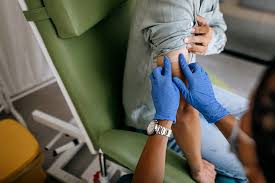

Recent studies have brought into light the potential benefits of the shingles vaccine beyond preventing the painful viral infection. Research from South Korea indicates that vaccinated individuals may experience a 23% lower risk of developing cardiovascular diseases. Moreover, a unique study from Wales suggests that the shingles vaccine could lower the risk of dementia, a serious neurodegenerative condition.
About Shingles
Shingles is a viral infection caused by the varicella-zoster virus, the same virus responsible for chickenpox. After recovering from chickenpox, the virus remains dormant in nerve cells. It can reactivate later, especially when the immune system is compromised. Shingles typically manifests as a painful rash, often appearing as a stripe of blisters on one side of the torso. Complications can include vision loss and facial paralysis.
The Shingles Vaccine
The shingles vaccine is primarily recommended for individuals over 50 years old. It helps prevent the reactivation of the varicella-zoster virus. There are two main vaccines – Zostavax, which uses a live, weakened virus, and Shingrix, which employs recombinant technology. The vaccines cost between Rs 6,000 to Rs 17,000 per dose in India.
The Welsh Study
The Welsh study created a natural experiment by rolling out the shingles vaccine to specific age groups. Individuals aged 79 to 80 were eligible for vaccination starting in September 2013. This design allowed researchers to compare health outcomes between vaccinated and unvaccinated individuals of similar age. The study found a 20% lower relative risk of dementia among those who received the vaccine over a seven-year period.
Implications of the Findings
The findings suggest a possible protective effect of the shingles vaccine against dementia. One theory posits that preventing the reactivation of the shingles-causing virus may mitigate long-term cognitive effects. Additionally, changes in the immune response due to the vaccine might also provide protective benefits against dementia.
Other Vaccines and Dementia Risk
Emerging evidence suggests that other vaccines may also lower the risk of dementia. A large study involving 130 million people indicated correlations between common vaccines, such as hepatitis A, typhoid, and diphtheria, and reduced dementia risk. Another study brought into light the diphtheria and pneumococcal vaccines, showing associations with lower dementia rates.
(NNI / Latest news / Latest news india / India latest news/UPSC Preparation)
Schools to Display 'Sugar Boards' as CBSE Targets Rising Child Diabetes Rates
Latest News: 17th May 2025
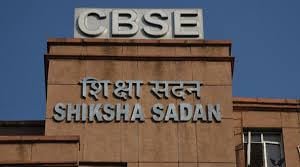

In an effort to address the growing health crisis of diabetes among students, the CBSE has ordered schools across India to install 'Sugar Boards' in key areas such as school entrances and cafeterias. These boards will highlight the dangers of excessive sugar consumption, particularly in packaged foods and beverages commonly consumed by students. With diabetes cases among children rising at an alarming rate, the initiative seeks to educate both students and their families about making healthier dietary choices.
The directive also includes recommendations for schools to integrate discussions about diabetes prevention into their health education curriculum. By providing clear, easily accessible information, CBSE hopes that these boards will prompt a shift in students’ attitudes towards sugary snacks and foster healthier habits. Moreover, the move is part of a larger national effort to address lifestyle-related diseases, with many experts applauding the Board’s proactive approach to tackling such a critical issue in school-age children.
(NNI / Latest news / Latest news india / India latest news/UPSC Preparation)
Jamia Millia Islamia Reports 96.29% Pass Percentage, with Girls Outperforming Boys
Latest News: 16th May 2025

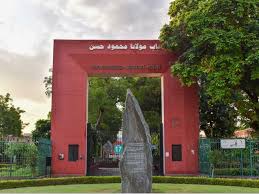
In a remarkable achievement, girls outshone boys in the Class 10 results of Jamia Millia Islamia, with the overall pass percentage standing at an impressive 96.29%. The results showcased not only the academic excellence of the students but also highlighted the growing success of female students in various educational fields. The pass percentage for girls surpassed that of boys, reflecting their consistent hard work and dedication throughout the academic year.
The 96.29% pass rate is a testament to the quality of education provided at Jamia Millia Islamia and the commitment of its students. The institution’s continued emphasis on academic rigor, along with a supportive environment for all students, has resulted in exceptional outcomes. Both faculty and students are celebrating this success, as it reinforces the institution’s reputation for fostering a culture of excellence and equity, where students, irrespective of gender, are encouraged to achieve their highest potential.
(NNI / Latest news / Latest news india / India latest news/UPSC Preparation)
"UPSC Welcomes New Leadership: Dr. Ajay Kumar Assumes Chairmanship"
Latest News: 14th May 2025
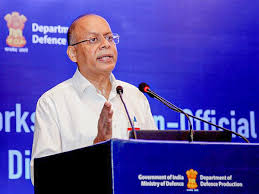

Dr. Ajay Kumar, a retired 1985-batch Indian Administrative Service (IAS) officer from the Kerala cadre, has been appointed as the new Chairman of the Union Public Service Commission (UPSC). The appointment was confirmed through an official order issued by the Union Ministry of Personnel on May 13, 2025, following the completion of Preeti Sudan's tenure on April 29, 2025 .
Dr. Kumar brings a wealth of experience to the role, having served as India's Defence Secretary from August 2019 to October 2022. During his tenure, he played a pivotal role in implementing significant defense reforms, including the Agniveer scheme and the corporatization of the Ordnance Factory Board. An alumnus of IIT Kanpur and the University of Minnesota, Dr. Kumar is also recognized for his contributions to the Digital India initiative and the establishment of the Innovations for Defence Excellence (iDEX) program .
(NNI / Latest news / Latest news india / India latest news/UPSC Preparation)
CBSE 12th Result 2025: 88.39% Pass Rate, Girls Outshine Boys Yet Again
Latest News: 13th May 2025
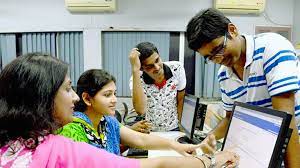

The CBSE Class 12 Board results for 2025 have been officially declared, with the overall pass percentage standing at 88.39%. As per the trends, girls have once again emerged as the frontrunners in academic excellence, with a pass percentage of 92.15%, significantly higher than the 84.67% achieved by boys. The consistent performance of female students in recent years underscores the shift towards greater gender equality in education.
In the wake of the pandemic, students faced an array of challenges, including shifts to online learning and an uncertain academic year. Despite these obstacles, the overall performance in the exams highlights the adaptability and determination of the students. Educational institutions are now gearing up for the next phase, with many students aiming for higher education or competitive exams.
(NNI / Latest news / Latest news india / India latest news/UPSC Preparation)
"Maharashtra SSC Result 2025: Expected Pass Percentage and Key Dates"
Latest News: 12th May 2025
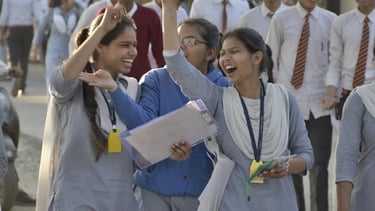

The Maharashtra State Board of Secondary and Higher Secondary Education (MSBSHSE) has officially announced that the Maharashtra SSC Result 2025 will be declared on May 13, 2025, at 1 PM. Students who appeared for the Class 10 board examinations can access their results through the official website at mahresult.nic.in. To check their results, students will need to enter their roll number and mother's first name. In case of high web traffic, students can also check their results via SMS by sending MHSSC [space] Seat Number to 57766. Additionally, results will be available on the DigiLocker platform, where students can download their marksheets and certificates.
This year, over 20 lakh students appeared for the Maharashtra SSC exams, which were conducted from February 21 to March 17, 2025. The board will also announce the overall pass percentage, district-wise performance, and details about supplementary examinations during the result declaration. Students are advised to keep their credentials handy and to collect their original mark sheets from their respective schools after the online results are declared.
(NNI / Latest news / Latest news india / India latest news/UPSC Preparation)
"Students to Start Day with Positivity: CBSE's New Initiative in Morning Assemblies"
Latest News: 10th May 2025


In a significant move to enhance students' mental and emotional well-being, the Central Board of Secondary Education (CBSE) has directed all affiliated schools to incorporate daily positive affirmations during their morning assemblies starting from the 2025–26 academic session. This initiative aims to promote holistic development by fostering a positive mindset among students, helping them build self-confidence, resilience, and a growth-oriented attitude.
The board emphasizes that these affirmations should be age-appropriate and inclusive, reflecting values such as empathy, courage, and self-worth. Schools are encouraged to customize affirmations to align with their core values, ensuring they resonate with the students' experiences and aspirations. By integrating this practice, CBSE seeks to create an environment where students begin their day with clarity, calmness, and confidence, setting a positive tone for their academic and personal growth.
(NNI / Latest news / Latest news india / India latest news/UPSC Preparation)
PRASHAST App
Latest News: 09th May 2025, UPSC Preparation
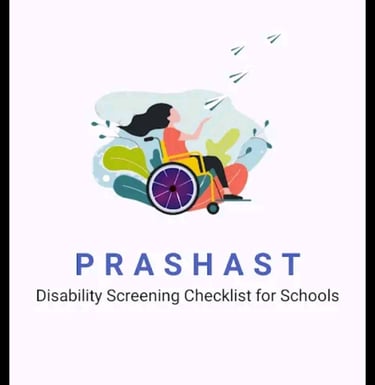

Delhi’s Directorate of Education introduced PRASHAST app for early identification of students with disabilities. This initiative aligns with the National Education Policy 2020 and the Right to Education Act 2009, aiming to create equitable learning environments.
About Neurodivergence
Neurodivergence refers to variations in the human brain regarding sociability, learning, attention, mood, and other mental functions. Conditions such as ADHD, autism, and dyslexia fall under this umbrella. Recognising neurodivergence is crucial for providing appropriate support. Bright students like Seemar may excel in areas like public speaking yet struggle in others, denoting the need for comprehensive evaluations beyond academic performance.
PRASHAST App Implementation
The PRASHAST app facilitates school-level screenings for 21 disabilities. Teachers receive training to observe both visible and non-visible disabilities. This proactive approach ensures that students needing support are identified early. Once flagged, students are directed to appropriate resources and accommodations under the Samagra Shiksha initiative.
Teacher Training and Observations
Teachers are essential in the identification process. They observe students using a structured checklist provided by the PRASHAST app. This checklist includes behavioural and social interactions. Teachers then forward their observations to special educators for further evaluation. The process aims to be discreet to avoid labelling or stigmatisation.
Challenges in Implementation
Despite the initiative, challenges persist. Large class sizes can hinder individual attention. Long waiting lists for therapy services pose additional barriers to timely support. Parents from economically weaker sections may resist intervention due to stigma or lack of understanding. Schools must navigate these complexities to ensure effective implementation.
Support Structures and Resources
Special educators play a critical role in supporting neurodivergent students. They develop tailored learning plans and set achievable goals. Access to clinical psychologists and therapy services is facilitated through government resource centres. However, the effectiveness of these services can be limited by bureaucratic delays.
Addressing Stigma and Parental Concerns
Stigma surrounding disabilities can deter parents from seeking help. Educators and special educators work to build trust with families. In-house counselling is offered to educate parents about neurodivergent conditions. Schools must ensure that they do not pressure parents to withdraw their children but instead provide necessary support.
Future Directions for Inclusivity
The initiative represents step towards inclusivity in education. Continuous investment in teacher training and resources is essential. Schools must also focus on creating supportive infrastructures that cater to the diverse needs of all students. Ensuring that every child receives the education they deserve is paramount for a truly inclusive system.
(NNI / Latest news / Latest news india / India latest news/UPSC Preparation)
Gujarat Board Set to Declare Class 12 Results at 10:30 AM: Step-by-Step Guide to Check
Latest News: 08th May 2025
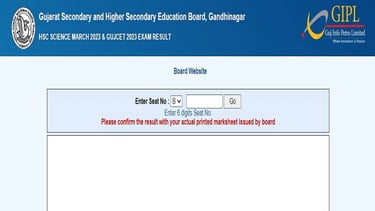

The Gujarat Secondary and Higher Secondary Education Board (GSHSEB) is set to declare the Class 12 results today at 10:30 AM. Students who appeared for the 12th-grade exams can check their results on the official GSHSEB website. The announcement will provide marks for various streams, including Science, Commerce, and Arts. Students are advised to stay updated with the exact time and be ready to access their results as soon as they are released.
To check the Gujarat Board Class 12 results, students need to visit the official GSHSEB website (www.gseb.org). Once on the homepage, students should look for the link titled “Class 12 Result” and click on it. They will be required to enter their roll number and other details to access their marks. Apart from the website, results may also be available via SMS or through third-party portals. Students are encouraged to download and take a printout of their result for future reference.
(NNI / Latest news / Latest news india / India latest news/UPSC Preparation)
NCERT slammed for faulty info on Indian rhino
Latest News: 30th April 2025
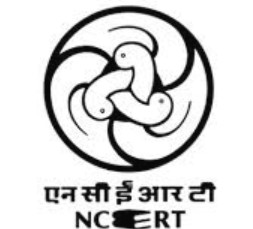

The National Council of Educational Research and Training (NCERT) has drawn flak for passing off an African rhino as the one-horned Indian rhinoceros in the Class 4 mathematics textbook.
Netizens, educationists, and wildlife experts in Assam said the NCERT used an erroneous text alongside the faulty illustration of the rhino in the “Did you know?” section of the “1,000s Around Us” chapter of the textbook. The section also features the ‘Thousand Pillars Temple’.
The text accompanying the illustration of a two-horned rhino reads, “The Indian rhinoceros is found in the foothills of the Himalayas in Northeast India. Floods and medicinal value of their horns have led to a reduction in their population. In the early 1900s, their population was driven to near extinction with as little as 200 rhinoceroses. But with recent conservation measures, there are now around 4,000 rhinoceroses.”
The faulty information – apart from the African rhinos, the Sumatran rhino is the only two-horned species in Asia — generated a range of reactions from ridicule to outrage.
“The name of the greater one-horned rhino should have made it clear that it has one horn,” said Bibhab Kumar Talukdar, the Assam-based chair of the Asian Rhino Specialist Group of IUCN’s Species Survival Commission.
Mr. Talukdar said the NCERT’s biggest folly was mentioning the medicinal value of the rhino horn, which could normalise poaching in the minds of children.
Assam Education Minister Ranoj Pegu said he has instructed the State Council of Educational Research and Training (SCERT) to examine the matter.
(NNI / Latest news / Latest news india / India latest news/UPSC Preparation)
JEE Main Result 2025 (OUT) Live Updates: What is the required percentile for JEE Advanced?
Latest News: 19th April 2025
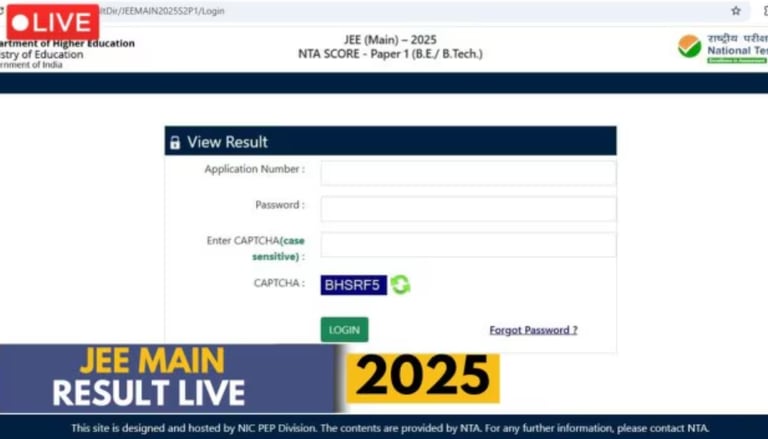

JEE Main Result 2025 Live Updates: The National Testing Agency (NTA) on April 19 announced the Joint Entrance Exam Main (JEE Main) session 2 result on the official website. The link to access the JEE Main 2025 April session result for paper 1 is now active at the official website – jeemain.nta.nic.in. This year, 24 students got 100 percentile.
NTA conducted the second session of JEE Main 2025 from April 2 to 9, 2025. The JEE Main 2025 result is announced along with the cut-off by the NTA. The JEE Main session 2 result includes the cut-off for JEE Advanced, all India rank holders and state-wise toppers.
(NNI / Latest news / Latest news india / India latest news/UPSC Preparation)
BPSC Protest Escalates: Khan Sir Confronted by Agitated Aspirants
Latest News: 27th December 2024, UPSC Preparation
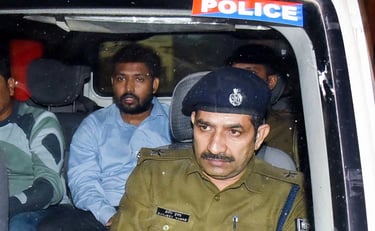

Popular educator Khan Sir, known for his engaging teaching style, faced intense backlash from Bihar Public Service Commission (BPSC) candidates during a protest in Patna. The incident occurred at a demonstration organized by aspirants seeking justice for alleged irregularities in the BPSC examination process.
Khan Sir, who initially joined the protest to show solidarity with the students, was met with resistance and criticism from a section of the crowd. Many candidates accused him of not adequately supporting their demands and questioned his motives for attending the protest. The situation escalated quickly, leading to heated exchanges. Eventually, Khan Sir was compelled to leave the protest site amidst growing tensions.
Key Issues Raised by Protesters
Alleged Irregularities: Candidates have alleged discrepancies in the BPSC exam results, including improper evaluation and lack of transparency.
Delayed Responses: Aspirants criticized authorities for not addressing their grievances in a timely manner, resulting in prolonged uncertainty.
Role of Influencers: Protesters voiced skepticism about the involvement of public figures like Khan Sir, accusing them of using the movement for personal gain rather than genuinely supporting their cause.
Reactions
Khan Sir’s Statement: Following the incident, Khan Sir expressed disappointment over the hostility and reiterated his commitment to student welfare. “I came to support the students, but the situation became unmanageable,” he stated.
Public Opinion: Social media has been divided over the incident, with some defending Khan Sir’s intentions and others siding with the protesting students.
Authorities’ Response: The BPSC has yet to issue an official statement addressing the students' allegations or the controversy surrounding the protest.
Implications
The incident highlights the growing frustration among job aspirants in Bihar and raises questions about the effectiveness of public demonstrations. It also sheds light on the risks faced by public figures when engaging in contentious issues.
(NNI / Latest news / Latest news india / India latest news/UPSC Preparation)
JIGYASA Program
Latest News: 26th December 2024, UPSC Preparation
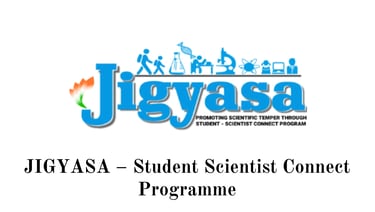

The CSIR conducted the Scientific Aptitude Assessment Exercise online, which marked a milestone as it involved students from 37 CSIR laboratories engaging in a simultaneous scientific demonstration.
Event Overview
The Scientific Aptitude Assessment Exercise is part of the CSIR’s JIGYASA program, which aims to enhance scientific understanding among students through practical experiments. The event was notable for its large-scale participation and innovative format.
Dr. Souvik Maiti, Director of CSIR-IGIB, inaugurated the event. He welcomed participants and stressed the importance of practical skills alongside theoretical knowledge. His remarks brought to light the need for education to extend beyond traditional learning.
Theme Explanation
Dr. Beena Pillai, Chief Scientist at IGIB, elaborated on the event’s theme. She discussed the relevance of DNA and genomics in various sectors, including agriculture and healthcare. Her insights drew attention to the contributions of Dr. Mitali Mukerji in the field of human genomics.
DNA Isolation Experiment
Participants received DNA isolation kits and guidance from Dr. Arya Sidharthan. The experiment involved isolating DNA from saliva, which approximately 550 students successfully accomplished. This hands-on experience provided valuable practical knowledge.
Dr. Geeta Vani Rayasam expressed gratitude to the organising team. She telld CSIR’s role in advancing scientific technologies and nurturing human resources in India. Her comments encouraged students to engage in critical thinking and extracurricular activities.
Student Participation
The event included students from Kendriya Vidyalaya, Gole Market, who gathered at the CSIR-NIScPR campus. Organisers, including Dr. Suman Ray and Ms. Pratibha, facilitated the DNA isolation process. The students’ enthusiasm was evident as they successfully completed the experiment.
After the experiments, students participated in a questionnaire to select the winner of the assessment exercise. Participation certificates were awarded by Shri C.B. Singh and Dr. Suman Ray, who commended the efforts of all involved in the event.
(NNI / Latest news / Latest news india / India latest news/UPSC Preparation)
IIT Graduate Proves Passion Over Trends by Securing Rs 55 Lakh Job Offer
Latest News: 25th December 2024
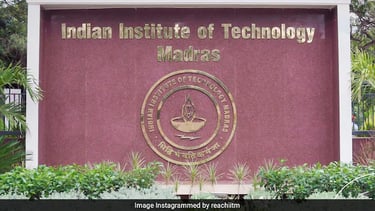

In a remarkable achievement, an IIT graduate has proven that choosing a so-called "non-cool" engineering branch can still lead to exceptional career opportunities. Despite societal perceptions favoring branches like Computer Science or Electronics, this graduate took an unconventional route by opting for Metallurgical and Materials Engineering and secured a whopping Rs 55 lakh per annum package.
The graduate, whose name is making headlines, recently completed their studies at one of the Indian Institutes of Technology (IITs), known globally for its rigorous curriculum and producing top talent. By leveraging their expertise in a specialized field, they gained a unique advantage in industries that value niche skills over generalized knowledge.
Recruiters from a renowned global firm noticed the graduate's exceptional academic performance, hands-on project experience, and internships. Their decision to focus on this less-celebrated branch has not only shattered stereotypes but also inspired other students to explore diverse engineering disciplines.
The story highlights the increasing demand for professionals in sectors like materials science, renewable energy, and advanced manufacturing. It also emphasizes the importance of following one's interests instead of chasing trends. As the job market evolves, specialized branches are gaining traction, proving that career success isn't limited to mainstream options.
This achievement underscores the idea that with determination, strategic decisions, and hard work, any engineering branch can lead to extraordinary outcomes.
(NNI / Latest news / Latest news india / India latest news/UPSC Preparation)
"Top Institutions Named in CBSE Show-Cause Notices Over Unauthorized Events"
Latest News: 16th December 2024


The Central Board of Secondary Education (CBSE) has issued show-cause notices to 34 schools across India for violating the board's Affiliation Bylaws, 2018. The schools, located in states such as Haryana, Maharashtra, Punjab, Tamil Nadu, and Uttar Pradesh, have been accused of associating with unauthorized organizations, specifically the "CBSE Board School Games Welfare Society (CBSE-WSO)," which falsely claims links to CBSE.
The board clarified that CBSE-WSO is not affiliated with CBSE in any way and warned schools against participating in events organized by such unauthorized bodies. Schools were also reminded to verify official CBSE activities only through the board's website. The schools must now provide explanations within 30 days or face severe penalties, which may include the suspension of their affiliations.
This action highlights CBSE's efforts to maintain high standards in the education system by ensuring schools comply with its rules and do not fall prey to unverified entities. Prominent institutions, including Amity International School (Noida), Shiv Nadar School, and Sanskriti School (Pune), are among the schools named.
(NNI / Latest news / Latest news india / India latest news/UPSC Preparation)
National Achievement Survey 2024 Overview
Latest News: 05th December 2024, UPSC Preparation
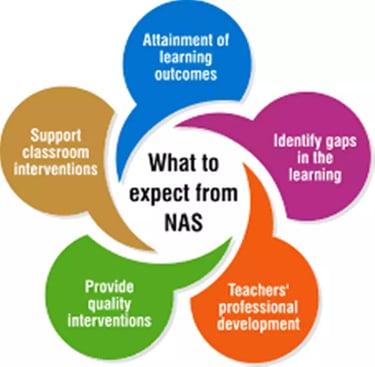

The Ministry of Education has announced the National Achievement Survey (NAS) 2024, which will be conducted on December 4, 2024. Approximately 23 lakh students will participate, coming from about 88,000 schools across 782 districts in 36 States and Union Territories.
Assessment Details
The survey will assess students in classes 3, 6, and 9. Subjects include language, mathematics, science, social science, and “The World Around Us.” The test will be conducted in 23 languages, such as Hindi, English, Tamil, Bengali, Assamese, and Kannada.
Purpose of the Survey
The primary aim is to evaluate students’ learning levels at foundational, preparatory, and middle stages. This assessment aligns with the National Education Policy (NEP) 2020. Results will help identify gaps in learning and suggest necessary improvements.
PARAKH, part of NCERT, developed the test materials. The Central Board of Secondary Education (CBSE) will administer the test. States and Union Territories will provide additional support.
Personnel Involved
To ensure a smooth survey process, nearly 95,000 field investigators have been assigned. Additionally, 76,000 observers and over 3,000 district officers will participate. There are also 180 State nodal officers and 38 national observers involved. All personnel have received training for their roles.
Oversight and Reporting
A National Steering Committee will oversee the survey. This committee is led by the Secretary of the Department of School Education and Literacy. After the survey, reports will be published at national, state, and district levels.
The last NAS occurred on November 12, 2021. It is part of a rolling program that assesses classes 3, 5, 8, and 10 every three years.
Important Facts for Exams:
PARAKH: PARAKH stands for Performance Assessment, Review, and Analysis of Knowledge for Holistic Development. It is a framework developed by NCERT for educational assessments in India.
NCERT: The National Council of Educational Research and Training (NCERT) is an autonomous organisation in India. It formulates educational policies and develops curricula for schools across the country.
NEP 2020: The National Education Policy 2020 aims to transform India’s education system. It focuses on holistic development, vocational training, and improving learning outcomes for students.
NAS: The National Achievement Survey (NAS) assesses student learning levels. It is conducted every three years and aims to identify educational gaps and suggest improvements in learning.
(NNI / Latest news / Latest news india / India latest news/UPSC Preparation)
"CBSE Supports Student Athletes with Special Exam Dates for 2025"
Latest News: 04th December 2024
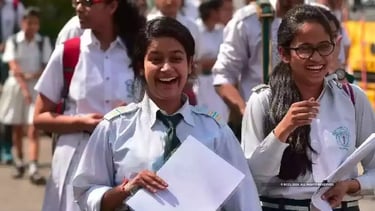

For the 2025 CBSE board exams, the Central Board of Secondary Education (CBSE) has introduced special examination provisions for students who participate in national or international sports events and recognized Olympiads. This initiative ensures that students involved in extracurricular activities do not face academic setbacks due to scheduling conflicts between their board exams and sports or Olympiad commitments.
The policy, which has been in effect since 2018, will provide alternative dates for the main theory examinations if they coincide with the dates of sanctioned events. Eligible students must submit a request through their schools, supported by certificates from recognized authorities like the Sports Authority of India (SAI), the Board of Control for Cricket in India (BCCI), or the Homi Bhabha Centre for Science Education (HBCSE). The request deadline for schools to submit applications is December 31, 2024, with the CBSE confirming approval by mid-January 2025
(NNI / Latest news / Latest news india / India latest news/UPSC Preparation)
"Government Announces Changes in JoSAA Structure for 2025 Admissions to CFTIs"
Latest News: 03rd December 2024


The Ministry of Education has announced the reconstitution of the Joint Seat Allocation Authority (JoSAA) for the 2025 academic session. This restructuring aims to improve the process of seat allocation for admissions into leading institutions such as IITs, NITs, IIITs, and other Centrally Funded Technical Institutions (CFTIs) across India. JoSAA will manage the allocation for various undergraduate programs, including those based on JEE Main and JEE Advanced results. The restructured body will also streamline the entire admission process, ensuring transparency and better coordination among participating institutes.
(NNI / Latest news / Latest news india / India latest news/UPSC Preparation)
Rain Disruptions: Schools and Colleges in Tamil Nadu, Puducherry Closed Due to Cyclone Fengal
Latest News: 02nd December 2024,


In response to the heavy rainfall caused by Cyclone Fengal, authorities in Kerala, Tamil Nadu, and Puducherry have closed schools and colleges as a precautionary measure. The cyclone, which made landfall near Puducherry, brought intense rains and strong winds, severely affecting daily life in these states. The Indian Meteorological Department (IMD) issued a red alert, warning of extremely heavy rainfall and possible flooding, prompting local governments to take swift action.
In Tamil Nadu, districts like Chennai, Thiruvallur, Kanchipuram, and Chengalpattu saw closures of educational institutions, while Puducherry followed suit with similar measures. The closure aims to ensure the safety of students and staff, given the forecasted weather conditions. Additionally, public transport services were suspended, and relief camps were set up in vulnerable areas.
Chennai's airport operations were temporarily halted, and local train services were disrupted. Authorities are working to provide necessary aid to those affected, including food distribution and evacuation in flood-prone areas.
(NNI / Latest news / Latest news india / India latest news/UPSC Preparation)
"198 Medical Colleges Face Penalties for Not Reporting Student Stipends, Says NMC"
Latest News: 01st December 2024


The National Medical Commission (NMC) has issued a show-cause notice to 198 medical colleges across India for not submitting details about the stipends they pay to medical students. This move aims to ensure transparency and compliance with educational and financial norms in medical education. The notice was sent to both government and private institutions, emphasizing the importance of maintaining accurate records of stipend payments for medical students, especially for those in the internship phase.
This action follows concerns that many medical colleges have failed to meet regulatory requirements related to the stipends, which are a critical aspect of student welfare. Colleges now face the potential of further scrutiny or even penalties if they do not respond to the notices appropriately.
(NNI / Latest news / Latest news india / India latest news/UPSC Preparation)
VISION Initiative for Student Innovation Launched
Latest News: 24th November 2024, UPSC Preparation
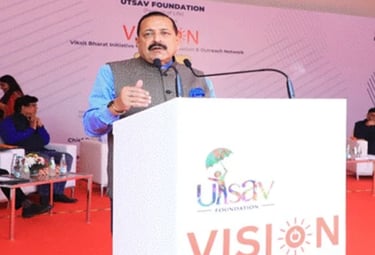

The “Viksit Bharat Initiative for Student Innovation and Outreach Network” (VISION) was recently launched by Union Minister Dr. Jitendra Singh. This initiative aims to empower underprivileged children through education, skills, and innovation, seeks to provide equal opportunities for youth across India and encourage startup skills.
Growth of India’s Startup Ecosystem
India’s startup ecosystem has seen remarkable growth. From 350–400 startups in 2014, the number has surged to over 1.67 lakh. This makes India the third-largest startup ecosystem globally. The growth is attributed to supportive policies under Prime Minister Narendra Modi’s leadership.
Success Stories Beyond IT
Innovative startups have emerged in various sectors. For instance, lavender farming in Jammu and Kashmir has created jobs and driven innovation. This illustrates that startups can thrive in agriculture, space, and biotechnology, not just in IT.
Biotechnology as an Industrial Revolution
Biotechnology is poised to shape India’s future. The new Bio-E3 policy aims to utilise biotechnology for economic growth, job creation, and environmental protection. Biotech startups have increased from 50 in 2014 to nearly 9,000 , with breakthroughs in DNA vaccines and research.
Bridging Urban-Rural Divide with Technology
Technology plays important role in bridging gaps between urban and rural areas. Students in remote regions have excelled in competitive exams using smartphones, despite limited resources. Initiatives like VISION aim to inspire similar success stories.
Importance of Public-Private Partnerships
Partnerships between public and private sectors are vital for sustainable startup growth. Early connections with industries can facilitate this development. An example includes India’s first private rocket manufacturing startup, which has established a unit in Hyderabad.
The National Education Policy (NEP) 2020 has introduced flexibility for students. It allows them to combine subjects and pursue unconventional career paths. This freedom encourages creativity and innovation among young people.
Vision India 2047
Dr. Singh expressed optimism about India’s future as a leader in innovation. Initiatives like VISION are crucial for achieving the goals of Vision India 2047. This vision aims to position India at the forefront of technology, education, and economic growth.
Important Facts for Exams:
VISION – The Viksit Bharat Initiative for Student Innovation and Outreach Network aims to empower underprivileged children through education and innovation. It promotes equal opportunities for youth across India.
Bio-E3 Policy: India’s Bio-E3 policy focuses on utilising biotechnology for economic growth and environmental protection. It aims to create jobs and enhance research, denoting biotechnology’s potential as an industrial revolution.
NEP 2020 – The National Education Policy 2020 introduces flexibility in education. Students can combine subjects and explore unconventional career paths, encouraging creativity and innovation among young learners.
(NNI / Latest news / Latest news india / India latest news/UPSC Preparation)
Symbiosis University First Overseas Campus at Dubai
Latest News: 18th November 2024, UPSC Preparation


India and the UAE have deepened their educational partnership with Symbiosis International University opening its first overseas campus at Dubai Knowledge Park. This event marks an important milestone in the relationship between the two nations.
Key Figures Present
Dr. S. Jaishankar, India’s External Affairs Minister, presided over the inauguration. Sheikh Nahyan bin Mubarak Al Nahyan, UAE’s Minister of Tolerance and Coexistence, also attended. Symbiosis University received full accreditation from the UAE’s Commission for Academic Accreditation. This recognition marks the university’s commitment to quality education.
Program Offerings
The campus will offer various programmes in management, technology, and media. It aims to develop essential 21st-century skills. The philosophy of Vasudhaiva Kutumbakam guides its educational approach, promoting global collaboration. The inauguration aligns with India’s National Education Policy 2020. This policy encourages internationalisation and the establishment of offshore campuses.
Impact on Students
Over 300,000 students from India benefit from educational frameworks in the UAE. The new campus will further enhance these opportunities. This development builds on the momentum from Prime Minister Narendra Modi’s 2015 visit. It follows the Comprehensive Economic Partnership Agreement (CEPA) between India and the UAE.
Focus on Human Capital
Dr. Jaishankar emphasised the importance of human capital for India’s progress. Innovations in AI, clean energy, and sustainable development are crucial areas of focus.
Sheikh Nahyan’s Address
Sheikh Nahyan brought into light the deep ties between India and the UAE. He noted the UAE’s commitment to a knowledge-based economy. Education is vital for encouraging understanding and stability. Symbiosis University chose Dubai for its diverse expatriate community. Approximately 85% of Dubai’s 3.5 million residents are expatriates.
Alignment with Economic Agenda 33
The establishment supports Dubai’s Economic Agenda 33. This agenda aims to transform the emirate’s economy through human capital development. The initiative aligns with both India’s NEP and the UAE’s vision for an internationalised education system. Both nations aspire to enhance their global educational competitiveness.
Important Facts for Exams:
Vasudhaiva Kutumbakam – This ancient Indian philosophy translates to the world is one family. It promotes global unity and cooperation across cultures and nations in education and beyond.
Dubai Knowledge Park: Established as a hub for education and research. It encourages innovation and collaboration among educational institutions. The park supports Dubai’s ambition to be a global knowledge economy.
Comprehensive Economic Partnership Agreement (CEPA): This agreement between India and the UAE aims to enhance bilateral trade and investment. It facilitates economic cooperation in various sectors including education and technology.
Economic Agenda 33: Dubai’s strategic plan focuses on economic transformation over the next decade. It prioritises human capital development and aims to enhance the education sector .
(NNI / Latest news / Latest news india / India latest news/UPSC Preparation)
Delhi Schools Go Online as Pollution Levels Reach 'Severe+'
Latest News: 17th November 2024
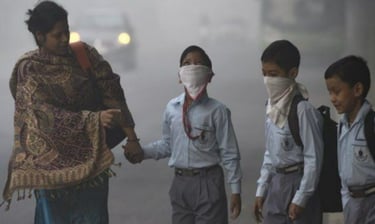

New Delhi, November 17, 2024: In a bid to protect children from the hazardous effects of the city’s worsening air quality, the Delhi government has announced that all primary schools in the capital will transition to online classes starting tomorrow. The decision comes as air pollution levels in the city have escalated to ‘Severe+’ status, with particulate matter (PM2.5) concentrations soaring well beyond safe limits.
Delhi's air quality has been consistently poor over the past several weeks, reaching dangerously high levels in recent days. With reports indicating a sharp increase in respiratory problems, especially among children, the state government has decided that students up to class 5 will no longer attend in-person classes until the situation improves.
The move to online learning, though temporary, marks a significant shift in the education system in Delhi. “Our top priority is the health and safety of our children. Given the severe pollution, we believe this is the only responsible course of action. We are working closely with schools to ensure that the transition to online classes is smooth, and that students can continue their learning remotely,” Delhi Education Minister Atishi Marlena said in a statement.
The decision follows the implementation of similar measures for older students in recent years during periods of high pollution. However, this is the first time that primary schools, which cater to younger children, have been asked to shift entirely to virtual classes.
School authorities have been instructed to ensure that all students have access to online learning platforms, and provisions are being made for those who may face technological barriers. Teachers will be conducting live lessons via video conferencing platforms, and students will also be given assignments and resources to support their learning during this period.
Parents have expressed mixed reactions to the decision. While many support the move for the sake of children’s health, others have raised concerns about the challenges of online learning, especially for younger students who may require more supervision and assistance. “I’m relieved that my child won’t be exposed to harmful air quality, but managing online classes for a 6-year-old will be difficult,” said a parent from South Delhi.
The Delhi government has also appealed to neighboring states and the central government to take swift action to address the sources of pollution, particularly stubble burning, which has been a major contributor to the city's pollution crisis. Authorities have promised to reassess the situation and make necessary adjustments as the air quality improves or deteriorates further.
Experts have long warned about the detrimental effects of air pollution on children’s health, with studies linking exposure to poor air quality with respiratory issues, decreased lung development, and increased vulnerability to chronic diseases in later life. With the ongoing crisis, medical professionals have also advised that residents, particularly children, should limit outdoor activities and wear appropriate masks when stepping out.
(NNI / Latest news / Latest news india / India latest news/UPSC Preparation)
"JEE Aspirants Rejoice: 3 Attempts Now Allowed for JEE Advanced 2025"
Latest News: 05th November 2024


In a significant move aimed at providing more opportunities to aspirants, the National Testing Agency (NTA) has announced an increase in the number of attempts for the Joint Entrance Examination (JEE) Advanced 2025. The maximum number of attempts allowed for candidates has been increased from two to three. This decision is expected to benefit a large number of students, giving them an additional chance to improve their performance in one of the most competitive engineering entrance exams in India.
The decision comes as part of the NTA’s ongoing efforts to make JEE more accessible while ensuring a fair opportunity for students from various backgrounds. The change in the number of attempts was confirmed in the official notification issued by the agency.
Eligibility Criteria for JEE Advanced 2025:
While the increase in attempts is a welcomed change, students must still meet several other eligibility criteria to appear for JEE Advanced 2025:
Qualification for JEE Main 2025: Only those candidates who have successfully qualified JEE Main 2025 are eligible to appear for JEE Advanced. The JEE Main results must meet the cutoff prescribed by the authorities.
Age Limit: Candidates should be born on or after October 1, 2000, and for SC, ST, and PwD candidates, the age limit is relaxed to October 1, 1995.
Educational Qualifications: Applicants must have passed the class 12th (or equivalent) exam in the year 2023 or 2024. Additionally, candidates who appeared for the class 12 exam before 2023 and have not taken the exam in the same year as the JEE Advanced exam will not be eligible.
Number of Attempts: Candidates can now appear for JEE Advanced up to a maximum of three times, as per the new rules.
Other Requirements: Students must also fulfill other specific criteria as outlined in the official JEE Advanced 2025 brochure.
This revision will likely bring relief to many aspirants who missed out on the chance to improve their score in their previous attempts. With the additional attempt, students now have more flexibility in preparing for and performing well in this challenging exam.
Students' Reactions:
The decision to increase the number of attempts was received positively by the student community. Many expressed their relief over having one more opportunity to appear for the exam, especially in light of the intense competition and pressure to secure a seat in top engineering institutes such as IITs.
“I am extremely happy with this change,” said Arjun Patel, a JEE aspirant from Delhi. “It gives us another chance to improve and secure a better rank. The pressure to perform well in just two attempts was too much, and this decision comes as a major relief.”
Expert Opinions:
Experts also applauded the decision, noting that it will give students more time to build their understanding and improve their overall performance. "The increased attempts will reduce anxiety and allow students to learn from their past experiences, which is essential for such a high-stakes examination," said Dr. Sanjeev Kumar, an education consultant.
As the exam dates for JEE Advanced 2025 approach, students are advised to stay updated with official notifications and ensure they meet all the eligibility criteria. The extra attempt could very well be the game-changer many candidates need to fulfill their dreams of studying at India's prestigious IITs.
(NNI / Latest news / Latest news india / India latest news/UPSC Preparation)
"Transforming Education: 98% of Schools in India Equipped with Separate Girls' Toilets"
Latest News: 04th November 2024
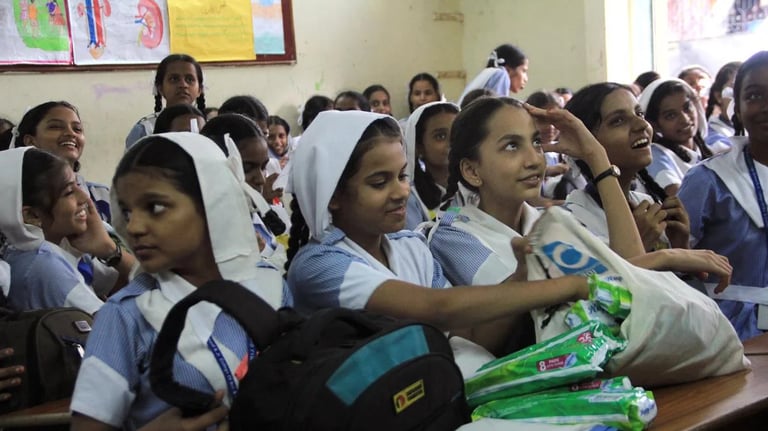

In a significant development regarding the state of school infrastructure in India, the central government has informed the Supreme Court that approximately 98% of schools in the country now provide separate toilet facilities for girl students. This update comes as part of ongoing discussions about improving educational environments and ensuring gender-sensitive amenities in schools.
The government’s assertion highlights its commitment to addressing the critical issue of sanitation and hygiene in educational institutions, particularly for female students. Access to proper sanitation facilities has been recognized as vital for encouraging girls to attend school, especially in rural and semi-urban areas, where such facilities were previously lacking.
The Supreme Court has been actively engaged in discussions surrounding the Right to Education and has emphasized the importance of safe and dignified facilities for all students. The Centre’s report serves as a benchmark for assessing progress in educational infrastructure and addressing gender disparities.
Education advocates have welcomed the news, recognizing that improved toilet facilities can significantly reduce dropout rates among girls and foster a more inclusive learning environment. While the reported statistics are promising, experts stress the need for continuous monitoring and maintenance of these facilities to ensure they remain functional and accessible.
As India strives to enhance its educational landscape, this development underscores the importance of comprehensive strategies that address not only infrastructure but also cultural and societal barriers to girls’ education.
(NNI / Latest news / Latest news india / India latest news/UPSC Preparation)
"MES Vidya Mandir Celebrates Diwali with Heartwarming 'Sharing is Caring'Initiative"
Latest News: 27th October 2024,
Navi-Mumbai, Maharashtra
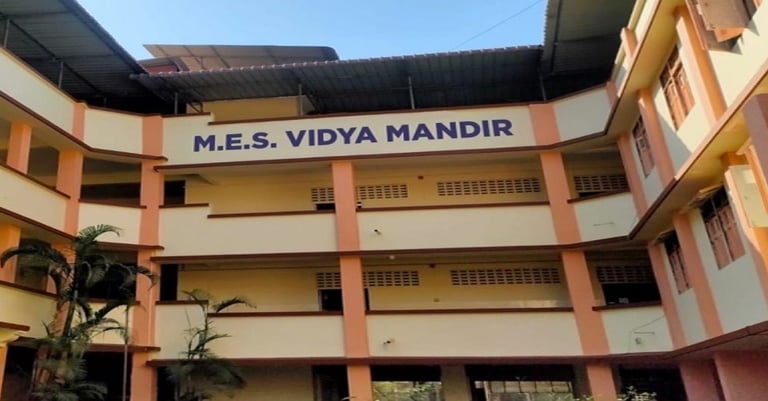

In a heartwarming display of community spirit and generosity, MES Vidya Mandir (Belapur) celebrated Diwali by engaging in a meaningful initiative focused on "Sharing is Caring." The school organized a visit to the Children of the World(India)Trust, an organization dedicated to supporting underprivileged children in their educational and social pursuits.
This collaboration aimed to instill the values of empathy and social responsibility among students while brightening the lives of those less fortunate. Students from MES Vidya Mandir actively participated in preparing Diwali gift packets, which included essential supplies and festive treats, through generous contributions from their parents, teachers, and the school community.
During the visit, the students not only distributed these thoughtfully prepared packets but also interacted with the children of the Trust, sharing stories and creating lasting bonds. The initiative served as a practical lesson in kindness, reinforcing the importance of giving back to society.
The Principal "Shubhangi Rajendra Shinde" of MES Vidya Mandir expressed pride in the students’ efforts, stating, "This initiative embodies the spirit of Diwali—light, joy, and the joy of sharing. It’s essential for our students to understand the value of helping others, and what better occasion than this festival of lights?"
The event was met with enthusiasm from both the students of MES Vidya Mandir and the children of the Trust, highlighting a shared commitment to learning, growth, and community support. By bridging the gap between privileged and underprivileged, MES Vidya Mandir is paving the way for a brighter future and fostering a sense of responsibility among its students.
(NNI / Latest news / Latest news india / India latest news/UPSC Preparation)


"Sanskrit Education Gets a Boost: Adityanath Announces Student Scholarships"
Latest News: 27th October 2024
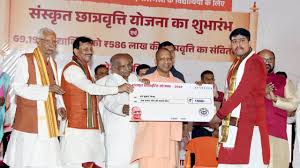

In a significant move to promote Sanskrit education, Uttar Pradesh Chief Minister Yogi Adityanath announced a new scholarship scheme aimed at benefiting students pursuing studies in the ancient language. The initiative, launched during a special ceremony in Lucknow, aims to encourage more students to engage with Sanskrit, which is considered an important cultural and linguistic heritage of India.
Under the scheme, students enrolled in recognized institutions offering Sanskrit courses will be eligible for financial assistance. The government hopes this initiative will not only enhance the academic prospects of students but also revive interest in Sanskrit studies, which have been declining in recent years.
During the launch, Adityanath emphasized the importance of preserving ancient languages and cultures, stating, “Sanskrit is the backbone of our rich heritage. This scholarship will empower our youth and ensure that the wisdom of our ancestors continues to thrive.” The government plans to allocate a substantial budget for the scheme, which will cover tuition fees, study materials, and other educational expenses.
Students and educational institutions have welcomed the initiative, seeing it as a vital step towards promoting traditional studies. As the scheme rolls out, the state government aims to reach thousands of students, reinforcing the significance of Sanskrit in modern education.
(NNI / Latest news / Latest news india / India latest news/UPSC Preparation)
“Study Finds 80% of Students Gain Clarity Through Career Counseling; 40% Lack Resources”
Latest News: 24th October 2024


A recent study has revealed that more than 80% of students who receive career counseling report significant benefits in terms of clarity regarding their future career paths. However, the report also highlights a concerning statistic: approximately 40% of students still lack access to these essential services, raising questions about equity in educational support.
Key Highlights
Positive Impact of Career Counseling: The study indicates that students who have engaged in career counseling are better equipped to make informed decisions about their education and career choices. Many reported increased confidence and a clearer understanding of their strengths and interests.
Equity Issues: Despite the positive outcomes associated with career counseling, a significant portion of the student population remains without access. This gap primarily affects students from low-income backgrounds and rural areas, where such resources are often scarce.
Need for Policy Action: Educational experts are calling for targeted policies to expand access to career counseling services. They emphasize that ensuring equitable access is crucial for helping all students, regardless of their background, navigate their career options effectively.
Role of Technology: The integration of technology in career counseling has shown promise in reaching a wider audience. Online platforms and virtual counseling sessions can help bridge the gap for those who cannot access traditional counseling services.
Future Recommendations: The study advocates for increased funding and resources to enhance career counseling programs in schools, particularly in underserved areas. Training for educators to provide basic counseling services is also recommended to support students in making informed decisions.
Conclusion
The findings underscore the importance of career counseling in shaping students' futures, while also highlighting significant disparities in access. Addressing these inequities will be essential for fostering a more inclusive educational environment that supports all students in their career aspirations.
(NNI / Latest news / Latest news india / India latest news/UPSC Preparation)
“Yuva Sangam Registration Deadline Extended to Boost Youth Participation”
Latest News: 23rd October 2024
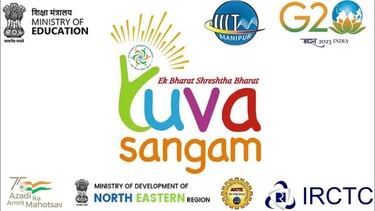

The Ministry of Education has announced an extension for registrations for the fifth edition of the Yuva Sangam, aimed at empowering the youth of India through various educational and cultural initiatives. This extension allows more young individuals to participate in the event, which focuses on fostering leadership skills, cultural exchange, and community engagement among the youth.
Key Highlights
Registration Details: The registration period has been extended by an additional week to accommodate a larger number of participants. Young individuals between the ages of 15 and 35 are encouraged to register for the event, which aims to engage them in meaningful discussions and activities.
Objectives of Yuva Sangam: The Yuva Sangam serves as a platform to promote national integration and unity among the youth. It provides an opportunity for participants to learn from each other, share experiences, and discuss various socio-economic issues affecting the country.
Event Activities: This year's Yuva Sangam will feature workshops, panel discussions, cultural performances, and interactive sessions with prominent leaders and mentors. Participants will also have the chance to engage in community service projects, enhancing their sense of social responsibility.
Government's Commitment: The Ministry of Education emphasized its commitment to nurturing the potential of the youth, recognizing them as key stakeholders in the nation’s development. The extension of registrations reflects the government’s dedication to inclusivity and participation.
Impact on Youth: By fostering dialogue and collaboration among young people from diverse backgrounds, the Yuva Sangam aims to empower participants with the skills and knowledge necessary to become effective leaders in their communities.
Conclusion
The extension of registrations for the fifth Yuva Sangam highlights the government's commitment to engaging the youth in national development and social initiatives. With a focus on leadership, cultural exchange, and community service, the event promises to inspire and empower the next generation of leaders in India.
(NNI / Latest news / Latest news india / India latest news/UPSC Preparation)
“Don’t Throttle Students’: SC Restraints Karnataka on Exam Results Amid Concerns Over Academic Pressure”
Latest News: 22nd October 2024
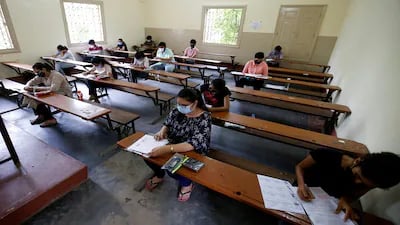

In a significant ruling, the Supreme Court of India has ordered the Karnataka government to refrain from declaring the half-yearly examination results for students in Classes 8 to 10. This decision comes in response to concerns raised about the academic pressure placed on students amid ongoing legal disputes regarding the examination process.
Background of the Case
The issue arose after multiple petitions were filed by parents and educational advocates, highlighting the adverse impact of academic stress on students. They argued that the current examination system fails to adequately support student well-being, leading to anxiety and mental health challenges.
During the proceedings, the Supreme Court emphasized the importance of prioritizing students’ mental health and educational experience. “Do not throttle students with undue pressure. Their well-being must come first,” stated Chief Justice D.Y. Chandrachud.
Implications of the Ruling
This ruling has significant implications for students, parents, and educators in Karnataka. With half-yearly exams being a crucial part of the academic calendar, the suspension of results will require schools to reevaluate their assessment strategies and provide additional support to students during this period.
The court has instructed the Karnataka government to engage in a comprehensive review of the examination process and consider implementing reforms that prioritize student welfare. This includes exploring alternative assessment methods that reduce stress and promote holistic learning.
Response from Stakeholders
Reactions to the ruling have been mixed. Parents have welcomed the decision, expressing relief at the court’s focus on student mental health. “This is a much-needed intervention. Our children should not be subjected to unnecessary stress,” said Parent's, a representative of a local parents’ association.
On the other hand, educators are concerned about the potential disruption to the academic calendar. They stress the importance of maintaining assessment standards while also ensuring that student well-being is prioritized.
Conclusion
The Supreme Court’s decision serves as a pivotal moment in the ongoing dialogue about educational reform in India. As Karnataka navigates the implications of this ruling, it will be essential for all stakeholders to collaborate in creating a more supportive and balanced educational environment for students.
(NNI / Latest news / Latest news india / India latest news/UPSC Preparation)
“Sanskrit Education Initiative Announced by Uttarakhand Madrasa Board”
Latest News: 20th October 2024
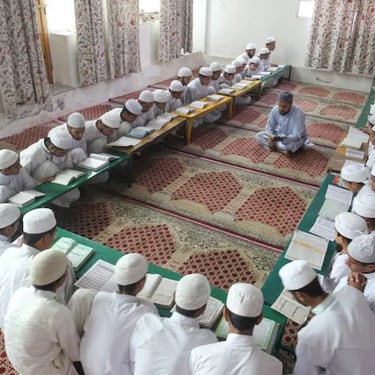

The Uttarakhand Madrasa Board aims to provide students with a comprehensive education that includes not only religious studies but also languages and subjects that enrich their understanding of Indian culture. The introduction of Sanskrit, a classical language with deep historical significance in India, is seen as a step toward bridging cultural gaps and fostering respect for diverse traditions.
Board officials have stated that the curriculum will be designed to ensure that students gain a foundational understanding of Sanskrit, its grammar, and its literature. “Sanskrit is not just a language; it is a treasure trove of knowledge. Our goal is to empower students with a broader perspective,” said Board Official’s, the chairperson of the Uttarakhand Madrasa Board.
Response from the Community
The announcement has been met with mixed reactions from various stakeholders. While many educators and community leaders support the initiative as a positive step towards cultural integration, some express concerns about the potential implications for the madrassa system.
“I believe that incorporating Sanskrit into the curriculum will help students connect with their roots and understand the rich tapestry of Indian heritage,” stated Local Educator’s, an advocate for the initiative.
However, some critics argue that the focus should remain on improving the core educational subjects such as mathematics and science. “While Sanskrit is important, we must not lose sight of the fundamental subjects that prepare students for modern challenges,” remarked Critic’s, a local education activist.
Implementation Plan
The Uttarakhand Madrasa Board is in the process of developing a detailed implementation plan, which will include training programs for madrassa teachers to effectively deliver Sanskrit education. The initiative is expected to roll out in phases, beginning with select madrassas in urban areas before expanding to rural institutions.
“We are committed to ensuring that our teachers are well-equipped to teach Sanskrit. Training sessions will begin shortly,” added [Board Official’s Name].
Conclusion
The introduction of Sanskrit education in Uttarakhand madrassas marks a significant step towards fostering cultural awareness and integration. As the state prepares to implement this initiative, all eyes will be on its impact on students and the broader community. With support and constructive dialogue, this move could pave the way for a more inclusive educational framework.
(NNI / Latest news / Latest news india / India latest news/UPSC Preparation)
"Belapur's MES Vidya Mandir: A Model of Academic Excellence and Social Responsibility"
Latest News: 18th October 2024
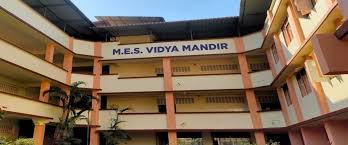

MES Vidya Mandir in Belapur, Navi Mumbai, stands out as a significant educational institution that is not only dedicated to academic excellence but also committed to uplifting the community through various initiatives. Established in 2000, the school has developed a reputation for fostering holistic development among its students, emphasizing not just education but also social responsibility.
Under the leadership of its principal, Shubhangi Rajendra Shinde, MES Vidya Mandir has implemented several programs aimed at integrating community service into the educational curriculum. One of the most notable initiatives is the school's “Community Outreach Program,” which encourages students to engage with local organizations and contribute to societal well-being. Activities include tree planting drives, cleanliness campaigns, and support for underprivileged children in nearby areas.
The school has also partnered with NGOs to provide educational resources and support to marginalized communities. Through these collaborations, students participate in workshops that focus on life skills, health education, and environmental awareness. This hands-on approach not only enhances their learning experience but also instills a sense of empathy and responsibility toward society.
In addition to community outreach, MES Vidya Mandir places a strong emphasis on academic excellence. The school boasts a comprehensive curriculum that includes innovative teaching methods, extracurricular activities, and advanced facilities.
Parents and community members have praised the school for its proactive approach to education and its commitment to societal development. "MES Vidya Mandir is not just a school; it is a community hub that nurtures future leaders who understand the importance of giving back," said a parent of a student.
As part of its commitment to continuous improvement, the school organizes annual events that showcase student projects focused on societal issues, allowing students to apply their learning in real-world contexts. These initiatives not only enhance students' academic skills but also empower them to become socially conscious citizens.
Overall, MES Vidya Mandir in Belapur exemplifies how educational institutions can play a vital role in fostering community development while equipping students with the necessary skills and values to thrive in society.
(NNI / Latest news / Latest news india / India latest news/UPSC Preparation)


"Milestone for Indian Medicine: Doctor Appointed to Lead WMA Publications"
Latest News: 18th October 2024


In a significant achievement for Indian medicine, Dr.Venkatesh Karthikeyan, a prominent physician and researcher, has been elected as the Publications Director of the World Medical Association (WMA). This prestigious position was announced during the WMA's recent general assembly held in Helsinki, Finland.
Dr.Venkatesh Karthikeyan is known for their extensive contributions to medical research and public health. With a career spanning over years, they have been instrumental in shaping medical guidelines and promoting best practices in healthcare not only in India but globally.
In their new role as Publications Director, Dr.Venkatesh Karthikeyan will oversee the WMA’s various publications, including journals, reports, and educational materials that guide medical professionals worldwide. This position is crucial for ensuring the dissemination of accurate and up-to-date medical information, which is essential for improving healthcare outcomes globally.
"Being elected to such a prominent role is an immense honor and responsibility. I am committed to enhancing the quality of medical literature and ensuring that our publications reflect the highest standards of scientific rigor and ethical considerations," said Dr. [Doctor's Name] in a statement following their election.
The WMA, which represents physicians worldwide, plays a critical role in advocating for global health, ethical medical practices, and the welfare of patients. Dr. Karthikeyan’s election comes at a time when the organization is focused on addressing pressing health issues such as the ongoing impacts of the COVID-19 pandemic, mental health awareness, and equitable access to healthcare services.
Health professionals and organizations in India have expressed their pride in Dr.Karthikeyan’s accomplishment, seeing it as a testament to the country’s growing influence in global health matters. "This election marks a significant milestone for Indian medicine and reflects our commitment to global health leadership," remarked Colleague’s, a fellow physician and collaborator.
As Publications Director, Dr.Karthikeyan aims to foster collaboration among healthcare professionals across various disciplines, ensuring that the WMA's publications address the diverse needs of the global medical community. Their vision includes enhancing access to medical knowledge and promoting evidence-based practices that can be implemented in diverse healthcare settings. Dr.Karthikeyan will officially assume their role on [start date], and their term is expected to bring new insights and innovations to the WMA’s publishing efforts.
(NNI / Latest news / Latest news india / India latest news/UPSC Preparation)
"IIT Madras and French University Collaborate to Foster Innovation in Sustainability"
Latest News: 17th October 2024
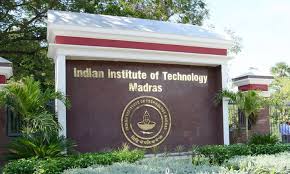

The Indian Institute of Technology (IIT) Madras has announced a groundbreaking partnership with a leading French university to offer a new course on Sustainable Biomanufacturing, aimed at equipping students with the skills necessary to address pressing environmental challenges through innovative manufacturing processes.
This initiative, which marks a significant collaboration between Indian and French educational institutions, is set to launch in [specific start date or semester]. The course will focus on sustainable practices in biomanufacturing, including the use of renewable resources, waste minimization, and the development of eco-friendly bioproducts. It aims to blend theoretical knowledge with practical applications, preparing students for careers in an increasingly important field that intersects biology, engineering, and sustainability.
Professor [Name], the course coordinator at IIT Madras, emphasized the importance of this collaboration. “Biomanufacturing is at the forefront of sustainable development. By combining our expertise with that of [French University Name], we can offer a comprehensive curriculum that not only addresses current environmental issues but also prepares students to be leaders in this vital field,” he stated.
The course will include modules on bioprocessing, industrial microbiology, and sustainability metrics, along with hands-on projects and case studies. Students will also benefit from access to advanced laboratory facilities and research opportunities at both institutions. Additionally, the program may facilitate student exchanges, allowing participants to gain international exposure and experience.
This partnership is part of a broader trend among educational institutions to foster global collaborations that enhance academic offerings and address global challenges. With sustainability becoming a critical focus for industries worldwide, the introduction of this course is timely and aligns with global efforts to create a greener economy.
Officials from the French university expressed enthusiasm for the partnership, highlighting the shared commitment to innovation and sustainability. “We are excited to work with IIT Madras to develop a curriculum that not only educates but also inspires future generations of scientists and engineers to tackle environmental issues through biomanufacturing,” said [French University Official's Name].
As the demand for sustainable solutions continues to grow, programs like this are essential for preparing the next generation of professionals equipped to drive change in the biomanufacturing sector.
(NNI / Latest news / Latest news india / India latest news/UPSC Preparation)
"Maharashtra to Implement Monitoring Framework for Private Educational Institutions"
Latest News: 16th October 2024
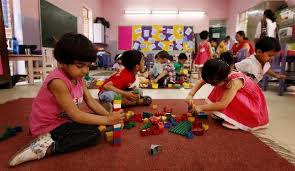

In a significant move to enhance the quality of early childhood education, the Maharashtra Education Department has announced plans to frame a comprehensive policy aimed at monitoring private pre-schools and kindergartens across the state. This initiative comes in response to growing concerns about the unregulated expansion of private educational institutions and the varying standards of education being offered.
The proposed policy aims to establish a regulatory framework that will ensure that private pre-schools adhere to set guidelines regarding curriculum, teacher qualifications, infrastructure, and student safety. Education officials have noted that while many private institutions provide quality education, there are also numerous cases of substandard practices that can negatively impact the development of young children.
"The early years of a child's education are crucial for their overall growth and development. It is imperative that we have a system in place to monitor and regulate these institutions to ensure they meet the necessary standards," stated [Name of the Education Minister], the Maharashtra Education Minister. "Our goal is to create a safe and enriching environment for our children."
As part of this initiative, the education department plans to conduct assessments of existing pre-schools and kindergartens to evaluate their compliance with proposed regulations. The policy will also include mechanisms for parents to report concerns and grievances regarding the institutions their children attend.
In addition to monitoring, the education department is expected to introduce training programs for teachers in private pre-schools, focusing on effective teaching methodologies and child development practices. This will help improve the overall quality of education provided in these institutions.
Parents and educators have welcomed the initiative, expressing the need for greater accountability in the private education sector. "This policy is long overdue. Parents should have the assurance that their children are receiving quality education in a safe environment," said [Name], a parent and member of the local education council.
As the education department works on finalizing the policy, it aims to involve stakeholders, including educators, parents, and child development experts, in the consultation process. The new framework is expected to be introduced in the upcoming academic year, marking a significant step toward ensuring quality early childhood education in Maharashtra.
(NNI / Latest news / Latest news india / India latest news/UPSC Preparation)
"New CBSE Policy: 75% Attendance Required for Board Exam Eligibility
in 2025"
Latest News: 14th October 2024
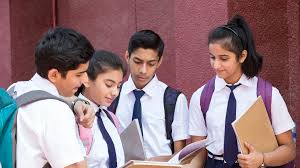

The Central Board of Secondary Education (CBSE) has announced that a minimum attendance of 75% will be mandatory for students in Classes 10 and 12 to be eligible for the Board exams in 2025. This decision aims to encourage regular attendance and enhance students' learning experiences. CBSE officials emphasized that consistent classroom participation is crucial for academic success and that this policy will help improve overall performance. Schools are advised to monitor attendance closely and provide support to students who may be struggling to meet this requirement. The announcement has sparked discussions among educators and parents about the importance of attendance in the learning process.
(NNI / Latest news / Latest news india / India latest news/UPSC Preparation)
"NEET PG Aspirants Await Clarity as Supreme Court Declines to Hear Case Today"
Latest News: 05th October 2024
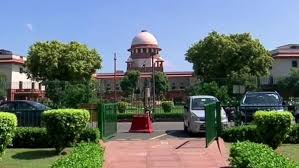

The Supreme Court of India has announced that it will not hear the NEET PG (National Eligibility cum Entrance Test for Postgraduate) case today, leaving thousands of medical students awaiting clarity on the contentious issue. The decision to postpone the hearing comes amid ongoing debates regarding the eligibility criteria and the implications of recent changes to the exam structure.
The NEET PG case has been a point of contention, with students and various stakeholders expressing concerns about the fairness of the exam process and the impact of last-minute rule changes on their preparation. Many candidates had hoped that today's hearing would provide much-needed resolution to the ongoing uncertainty surrounding the examination and its subsequent admissions process.
In recent weeks, the Supreme Court has received numerous petitions related to the NEET PG exam, including appeals from students who are seeking relief from the changes imposed by the National Board of Examinations. These changes have been criticized for potentially disadvantaging candidates who have been preparing under the previous guidelines.
Legal experts suggest that the postponement may be a strategic move by the Court to allow for further examination of the complexities involved in the case. With the NEET PG exam dates approaching, students are increasingly anxious about how the delays may affect their academic futures.
The Supreme Court is expected to schedule a new date for the hearing soon, and students are urged to stay informed for updates regarding the case. As the medical community watches closely, the decision holds significant implications for medical education in India.
(NNI / Latest news / Latest news india / India latest news/UPSC Preparation)
"CBSE Deadline Approaches: Schools Must Submit Candidate Lists Soon for Board Exams"
Latest News: 03rd October 2024
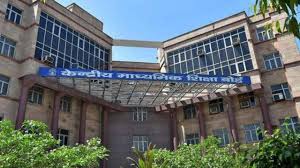

The Central Board of Secondary Education (CBSE) has announced that the deadline for schools to submit their list of candidates for the upcoming board examinations is fast approaching. Educational institutions across the country are urged to finalize and submit their entries before the cutoff date to ensure their students are eligible for the exams.
The CBSE has specified that the submission process is crucial for compiling accurate examination rolls and facilitating smooth conduct of the tests. Schools are advised to double-check all entries for accuracy, including personal details and subjects, to avoid any last-minute discrepancies that could affect students' examination eligibility.
With the examination schedule approaching, many schools are working diligently to gather the required information. The board has emphasized the importance of timely submissions, stating that late entries may not be accommodated. Schools have also been reminded to follow all guidelines issued by the CBSE during the submission process.
Students and parents are encouraged to stay informed about their school’s progress regarding the submission, as this will directly impact their examination preparations. The CBSE is expected to release further information on the examination schedule and related procedures in the coming weeks.
As the deadline nears, schools are on high alert to ensure compliance and support their students in successfully navigating the board examination process.
(NNI / Latest news / Latest news india / India latest news/UPSC Preparation)
IIT Kanpur Partners with UP Government to Launch Comprehensive Digital Health Stack
Latest News: 18th September 2024
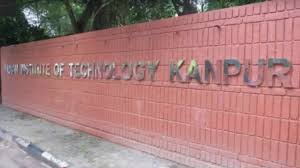

In a pioneering initiative aimed at transforming healthcare delivery in Uttar Pradesh, the Indian Institute of Technology (IIT) Kanpur has launched a project focused on developing a comprehensive Digital Health Stack for the state. This ambitious project seeks to integrate various healthcare services and improve accessibility, efficiency, and data management across the region.
The UP Digital Health Stack will leverage cutting-edge technologies such as artificial intelligence, big data analytics, and cloud computing to create a robust digital infrastructure. This will enable seamless sharing of health information among hospitals, clinics, and patients, facilitating better diagnosis and treatment outcomes.
IIT Kanpur's team of researchers and engineers will collaborate with the Uttar Pradesh government and healthcare stakeholders to design and implement the system. The project aims to address key challenges in the healthcare sector, including inadequate access to medical services, lack of data interoperability, and the need for real-time health monitoring.
During the launch event, a spokesperson from IIT Kanpur emphasized the importance of this initiative. "The Digital Health Stack will empower healthcare providers and patients alike, making health services more accessible and efficient. We are committed to using technology to enhance the quality of life for the people of Uttar Pradesh."
As part of the project, training programs will also be established for healthcare professionals to ensure effective use of the new digital tools. With the support of the state government, the initiative is expected to make significant strides in improving healthcare outcomes and overall public health in Uttar Pradesh.
(NNI / Latest news / Latest news india / India latest news/UPSC Preparation)
"IIT Mandi’s Cutting-Edge Technique Tracks Bridge Ageing in Real-Time Through Traffic Data"
Latest News: 17th September 2024
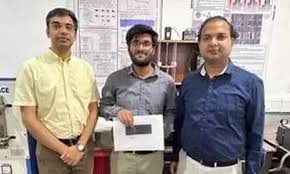

The Indian Institute of Technology (IIT) Mandi has made a significant advancement in infrastructure safety with the development of a pioneering method to monitor the ageing of bridges in real-time using traffic data. This innovative approach is set to transform how bridge health is assessed and maintained, potentially improving safety and extending the lifespan of critical transportation infrastructure.
The new technique, created by researchers at IIT Mandi, leverages real-time traffic data to assess the wear and tear on bridges. By analyzing data such as vehicle loads, traffic volume, and dynamic responses, the system can provide continuous monitoring and early warning signs of structural issues that may arise due to ageing.
Traditional methods of bridge inspection often involve periodic checks and physical examinations, which can be time-consuming and may not always detect problems until they become severe. In contrast, IIT Mandi’s method offers a more proactive approach by using data collected from traffic sensors and other monitoring tools to evaluate the condition of bridges on an ongoing basis.
This real-time monitoring system works by integrating data from various sources, including traffic cameras, sensors embedded in the bridge, and historical traffic patterns. The system processes this information to create a dynamic model of the bridge’s condition, which helps in detecting anomalies and potential deterioration earlier than conventional methods.
The development of this technology is particularly timely, given the increasing focus on infrastructure maintenance and safety in India. With many bridges across the country showing signs of ageing, the ability to continuously monitor their condition can play a crucial role in preventing accidents and ensuring the structural integrity of these vital assets.
Researchers at IIT Mandi have emphasized that the system’s ability to provide real-time insights into bridge health can aid in making informed decisions about maintenance and repairs. This can lead to more efficient allocation of resources and potentially save costs associated with unexpected repairs and bridge failures.
The method also has the potential to be adapted and applied to other types of infrastructure, such as highways and tunnels, where real-time monitoring could similarly enhance safety and maintenance practices. The technology could serve as a model for future innovations in infrastructure management and monitoring.
The IIT Mandi team is now working on pilot projects to test and refine the system further. They are also exploring partnerships with government agencies and engineering firms to implement the technology on a larger scale. The success of this project could mark a significant step forward in the field of infrastructure management and safety, setting new standards for how bridges and other critical structures are monitored and maintained.
(NNI / Latest news / Latest news india / India latest news/UPSC Preparation)
OpenAI Unveils New Reasoning AI Model O1 in Project Strawberry
Latest News: 15th September 2024, UPSC Preparation


OpenAI has launched a new AI model called o1 under a secret initiative called ‘Project Strawberry.’ This model is designed to handle more complex reasoning in areas like science, coding, and mathematics. It’s part of a series of models aimed at making AI think more deeply and tackle tougher problems.
Model Development
The o1 model is built to process questions in a way that mimics how humans think. It can:
Look at problems from different angles.
Learn from its mistakes by reviewing its answers and improving.
In early tests, the o1 model showed impressive results. It can solve complex problems in physics, chemistry, and biology at a level similar to a PhD student. It performed especially well in math and coding, successfully solving 83% of questions in a tough math competition—far better than older AI models.
Cost-Effective Options
OpenAI also introduced a cheaper and faster version called o1-Mini, which is 80% less expensive than the full o1 model. Even though it costs less, o1-Mini still provides strong reasoning skills, making it a good option for tasks like coding without breaking the bank.
Safety Measures
To ensure user safety, OpenAI has developed a new training method for the o1 model. This includes:
Making sure the model follows safety guidelines better than before, improving its safety score from 22 to 84.
Working with the UK and US governments to test the model’s safety thoroughly.
Giving safety experts early access to review and improve the model.
Implications for Jobs and Research
The o1 model could shake up industries, especially in fields like software development and data analysis. Some jobs might be affected, pushing people to focus more on creative thinking and problem-solving skills. On the other hand, the rise of AI like o1 could create new job opportunities in areas like AI safety and ethics.
For researchers, o1 can be a valuable tool, helping them solve complicated problems faster, particularly in fields like healthcare and other scientific areas. It can also process large amounts of data quickly, making research more efficient.
How to Access OpenAI o1?
The o1 model is available to ChatGPT Plus and Team users, with a feature called the model picker to choose between versions. For now, users can send up to 30 messages to the o1-preview and 50 messages to o1-mini each day. In the future, OpenAI plans to increase these limits and automatically choose the best model based on user needs. ChatGPT Enterprise and Edu users will also get access next week.
(NNI / Latest news / Latest news india / India latest news/UPSC Preparation)
Ecological Degradation in Veli-Akkulam Lake
Latest News: 15th September 2024, UPSC Preparation


A recent study presented by researchers from the University of Kerala at the ECSA 60 conference in Hangzhou has uncovered a significant ecological decline in Veli-Akkulam Lake. Over the past 30 years, the lake’s ecosystem has been deeply affected by the invasion of non-native species, which has changed its trophic status (how nutrients move through the food chain) and disrupted the natural food web.
Study Overview
The researchers used the Ecopath Model to analyze how efficiently the lake’s ecosystem functions and to map the structure of its food web. The study found a major decline in native species, while invasive species (species not originally from the lake) have increased dramatically.
Historical Background
In the 1990s, a scientist named C.M. Aravindan first studied the Veli-Akkulam ecosystem. At that time, the lake was home to a rich variety of native species like prawns, cichlids, barbs, and catfish. These species helped maintain a healthy ecosystem. However, recent studies show that many of these native species have drastically declined.
Species Decline
Prawns: In the past, there were about 57.60 tonnes per square kilometer of prawns. Now, that number has dropped to just 0.110 tonnes per square kilometer.
Indigenous Cichlids: The population of native cichlids fell from 41.6 tonnes per square kilometer to 0.350 tonnes per square kilometer.
Rise of Invasive Species
By the 2000s, many native species were replaced by invasive species, which are species introduced from other regions that compete with local wildlife. Some of the main invasive species in the lake are:
Nile Tilapia (Oreochromis niloticus)
Mozambique Tilapia (Oreochromis mossambicus)
Other invasive species include the Amazon African catfish (Clarias gariepinus) and the Amazon sailfin catfish (Pterygoplichthys pardalis). These species have spread rapidly, taking over the lake and disrupting the natural balance.
Invasion Meltdown
Professor Biju Kumar described this situation as an “invasion meltdown.” This term refers to the worsening effects that happen when multiple non-native species invade an ecosystem, further damaging the local environment.
The changes in the lake’s ecosystem have had a direct impact on the people who depend on it for their livelihood. In the 1990s, over 100 local fishers relied on the lake for their income. Today, fewer than 20 remain, as the collapse of native fish populations has made it difficult for them to continue fishing.
About Veli-Akkulam Lake
Veli-Akkulam Lake is a beautiful freshwater lake in Kerala, India. It covers about 20 acres and is fed by the Veli River. The lake is known for its scenic views and is a popular spot for boating and kayaking, drawing tourists and locals alike. It connects to the Arabian Sea through a narrow channel and is home to various species, including migratory birds.
(NNI / Latest news / Latest news india / India latest news/UPSC Preparation)
"NMC Rescinds Permission for Medical College in Andhra Pradesh"
Latest News: 13th September 2024
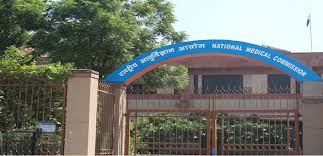

The National Medical Commission (NMC) has withdrawn its letter of permission granted to a medical college in Andhra Pradesh, stirring considerable controversy. The decision comes after a review revealed that the institution failed to meet essential regulatory standards required for medical education. This move halts the college's plans to admit students and raises concerns about the future of medical training in the region.
The NMC's action underscores the rigorous oversight involved in maintaining educational quality and compliance within medical institutions. The college's management has expressed disappointment and plans to address the issues identified by the commission. This development highlights ongoing challenges in the regulatory landscape for medical education in India and may have broader implications for similar institutions across the country.
(NNI / Latest news / Latest news india / India latest news/UPSC Preparation)
SBI Foundation Launches 3rd Asha Scholarship Program For Students
Latest News: 12th September 2024


The SBI Foundation has launched the 3rd edition of its Asha Scholarship Program, which aims to help 10,000 deserving students from underprivileged backgrounds across India. This scholarship provides financial support to students who need assistance with their education costs, ensuring they can continue their studies.
What is the Asha Scholarship Program?
The Asha Scholarship Program was started in 2022 and offers scholarships to students from Class 6 up to the postgraduate level. The scholarships range from ₹15,000 to ₹20,00,000 per year, depending on the student’s needs and level of education.
Who can apply for the Scholarship?
The program has different categories for students based on their education level:
School students
Undergraduate students
Postgraduate students
Students at IITs (Indian Institutes of Technology) and IIMs (Indian Institutes of Management)
Additionally, there is a special ‘Study Abroad’ scheme for Scheduled Caste (SC) and Scheduled Tribe (ST) students who want to pursue higher education overseas.
How can students apply?
Applications for the scholarship opened on August 16, 2024, and will remain open until October 1, 2024. Interested students can find more details about eligibility and apply through the official website: www.sbifashascholarship.org.
How has the Program Helped So Far?
Since the Asha Scholarship Program began, it has provided ₹3.91 crore in financial aid, helping 3,198 students across India. This has had a positive impact on making education more accessible to students who face financial barriers.
Challa Sreenivasulu Setty, the Chairman of SBI, emphasized that the Asha Scholarship Program aligns with the bank’s broader mission of offering services that go beyond banking. He also highlighted how the Asha Scholars will play a key role in contributing to India’s vision of becoming a developed nation by 2047 (Viksit Bharat).
(NNI / Latest news / Latest news india / India latest news/UPSC Preparation)
New Mumbai Municipal Corporation Receives National Medical Commission Approval to Launch Post Graduate Medical College
Latest News: 11th September 2024
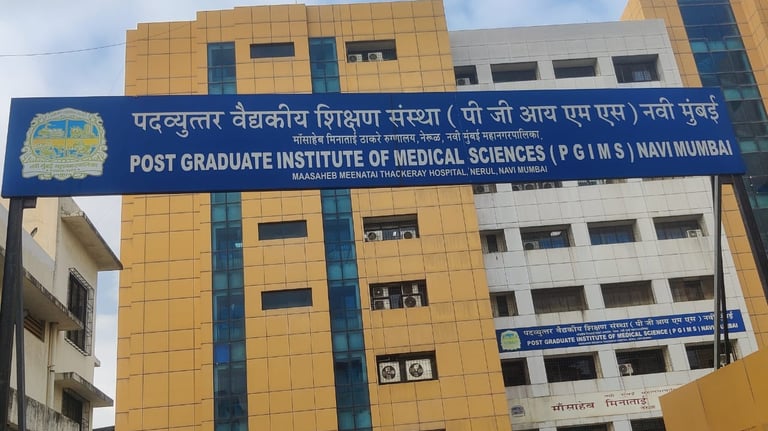

The New Mumbai Municipal Corporation (NMMC) has received approval from the National Medical Commission (NMC) to establish its own Post Graduate Institute of Medical Science. This development is expected to significantly enhance the quality of healthcare services available to citizens and strengthen the municipal health services.
Under the guidance of Municipal Commissioner Dr. Kailas Shinde, the initiative aims to offer higher quality medical education and services. The state and central governments were actively pursued for the necessary approvals. Maharashtra Chief Minister Eknath Shinde, Deputy Chief Ministers Devendra Fadnavis and Ajit Pawar, and Member of Parliament Naresh Mhaske all played key roles in expediting the process.
The new institute will start with four departments: Medicine (3 seats), Orthopedics (2 seats), Gynecology (8 seats), and Pediatrics (4 seats), with plans to add a Surgery department soon. Facilities have been set up at the Vashi and Nerul public hospitals to support the institute, and staff including deans and professors have been appointed.
The institute will provide advanced training for MBBS graduates and offer specialized care including Medical Intensive Care, Pediatric Intensive Care, Emergency, and Trauma Services. This initiative is poised to enhance the overall healthcare infrastructure and offer improved medical facilities to the residents of New Mumbai.
(NNI / Latest news / Latest news india / India latest news/UPSC Preparation)
"New Educational Scholarship Program Launched for Students from Primary to College Levels in Navi Mumbai"
Latest News: 11th September 2024


The Navi Mumbai Municipal Corporation has announced a new educational scholarship program for students from primary to college levels, targeting those from economically weaker backgrounds. The scheme, overseen by Municipal Commissioner Dr. Kailas Shinde, includes scholarships for children of widows, divorced women, economically disadvantaged students, and those from local project-affected families. Applications are being accepted online from September 7, 2024, to October 20, 2024. Applicants must provide specific documentation, including proof of income and residency, and meet academic performance criteria. The initiative aims to support and uplift deserving students in the Navi Mumbai region.
(NNI / Latest news / Latest news india / India latest news/UPSC Preparation)
Karnataka Government Launches Four New Skilling Courses For Students
Latest News: 11th September 2024
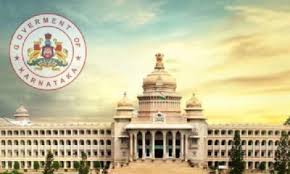

The Karnataka government has launched four new skilling courses aimed at enhancing students' vocational and technical skills. The initiative is designed to improve job readiness and provide practical training in various fields, reflecting the state's commitment to boosting employability and supporting educational advancement.
(NNI / Latest news / Latest news india / India latest news/UPSC Preparation)
New High-End Research Centre Inaugurated at IIT Hyderabad
Latest News: 10th September 2024
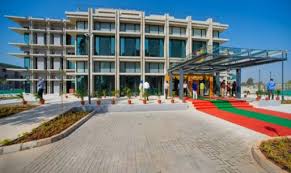

India is making significant strides in improving its research infrastructure, as highlighted by Abhay Karandikar, Secretary of the Department of
Science and Technology (DoST). One important example is the opening of the Centre for in-situ and Correlative Microscopy (CISCoM) at the Indian Institute of Technology Hyderabad (IIT-H). This new center is expected to boost collaboration in scientific research.
Importance of Research Infrastructure
Creating advanced research facilities is essential for promoting teamwork among researchers from different fields. When researchers from various disciplines work together, it helps improve the overall research and development environment in India. This collaborative culture encourages innovation and drives scientific progress across the country.
What CISCoM Offers?
CISCoM is equipped with technology for real-time analysis at different levels of detail. This technology is valuable not just for basic scientific research but also for practical industrial uses. The centre uses advanced microscopy techniques to help solve complex scientific problems, making it a key resource for researchers and industries alike.
Funding and Collaboration
The CISCoM project was funded with ₹60 crore from DoST, along with an additional ₹20 crore from 17 academic and industrial partners. This cooperation shows how important it is for different groups, such as government, universities, and businesses, to invest in research facilities together.
CISCoM aims to bring together experts from fields such as physical sciences, chemistry, biology, and pharmaceuticals. This multidisciplinary approach is essential because many modern scientific challenges require expertise from different areas. The centre will allow researchers to use advanced technology to work on shared goals.
More About IIT Hyderabad
Established in 2008, IIT Hyderabad is one of India’s top engineering institutes. It offers unique programs like a B.Tech in Design and was the first IIT to start a BS program in Artificial Intelligence. The institute is known for its focus on research and innovation, and it collaborates with global institutions to enhance its academic environment.
(NNI / Latest news / Latest news india / India latest news/UPSC Preparation)
‘From taking leadership roles at IIT Hyderabad to getting inspired to start own venture’
Latest News: 09th September 2024
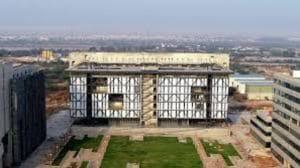

Students from IIT Hyderabad are transitioning from leadership roles to launching their own ventures. Their experiences in leading initiatives at the institute have fueled their drive to innovate and start businesses. This shift highlights the growing trend of young entrepreneurs leveraging academic leadership to spearhead new ventures and contribute to the startup ecosystem.
(NNI / Latest news / Latest news india / India latest news/UPSC Preparation)
Class 12 Student Educates Rural Women To Become Financial Literate
Latest News: 08th September 2024
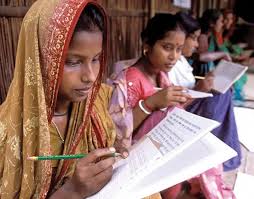

A Class 12 student has launched an initiative to educate rural women on financial literacy. The program focuses on teaching basic financial skills, budgeting, and savings strategies to help women manage their finances effectively. This effort aims to enhance economic independence and empower women in rural areas, contributing to their overall well-being and community development.
(NNI / Latest news / Latest news india / India latest news/UPSC Preparation)
IIT-Hyderabad Launches Sanskrit Courses In Collaboration With Central University
Latest News: 07th September 2024
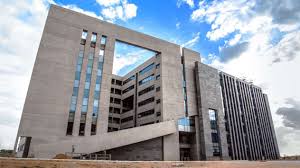

IIT-Hyderabad has introduced new Sanskrit courses in collaboration with a Central University. The initiative aims to promote the study and preservation of the ancient language, offering students a unique opportunity to explore Sanskrit alongside their technical education. This partnership highlights a commitment to integrating traditional knowledge with modern academic programs.
(NNI / Latest news / Latest news india / India latest news/UPSC Preparation)
IIT Delhi Campus Inaugurated in Abu Dhabi
Latest News: 06th September 2024, UPSC Preparation
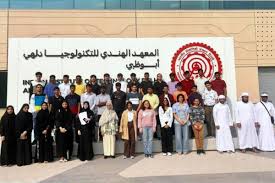

In a historic moment, Sheikh Khaled bin Mohamed bin Zayed Al Nahyan, the Crown Prince of Abu Dhabi, opened the Indian Institute of Technology (IIT) Delhi Abu Dhabi campus. This is a big deal because it’s the first-ever full IIT campus outside India. This event marks a huge step forward in international academic collaboration between India and the UAE.
Significance of IIT Delhi-Abu Dhabi
The opening of this campus is part of a larger vision, known as the Vision Document, which was launched in February 2022 by Indian Prime Minister Narendra Modi and UAE President Sheikh Mohamed bin Zayed Al Nahyan. This document highlights education as a key area for stronger cooperation between India and the UAE.
What Courses are Offered?
The campus began its journey with an initial group of 52 students. They are enrolled in two important undergraduate programs:
Computer Science and Engineering
Energy Engineering
These programs have been designed to align with global technological trends and meet the needs of the region.
Admissions Process
Students were selected for these courses through two different methods:
JEE Advanced Exam: This is the regular method used in India to get into IITs.
Combined Admission Entrance Test (CAET): This is a new exam specifically for international students.
This dual method ensures that the campus attracts a diverse range of students while maintaining the high standards that IIT is known for.
Postgraduate Programs
The campus introduced its first Master of Technology (M.Tech) program, focusing on Energy Transition and Sustainability. This course reflects the global priority of sustainable development, which is also a key focus for the UAE.
Globalisation of Indian Education
The establishment of IIT Delhi Abu Dhabi is a significant step in spreading Indian higher education across the world. It shows India’s ability to share its academic expertise internationally. This partnership between India and the UAE strengthens educational and knowledge exchanges, helping to develop skilled human resources.
Future Prospects
More Courses: The campus is expected to expand and offer more specialised programs that meet both regional and global demands.
Research Collaborations: Indian and UAE institutions will likely work together on research projects, combining their strengths.
Industry Partnerships: The campus plans to build strong relationships with industries, both locally and internationally, to support research and development.
Cultural Exchange: With students from both India and the UAE, the campus will promote a better understanding of each other’s cultures.
Economic Impact: IIT’s presence in the UAE is expected to boost the country’s knowledge economy and help with its goals of economic diversification.
IIT Delhi Abu Dhabi is not just an educational institution—it’s a platform for innovation, cultural exchange, and economic growth, improving deeper ties between India and the UAE.
(NNI / Latest news / Latest news india / India latest news/UPSC Preparation)
This JNU PhD student developed pedagogy inspired from ancient teaching method to educate nursery students
Latest News: 05th September 2024


As she started working as a nursery teacher/ facilitator, she realised that she could use the skills she had gained during her PhD study in teaching nursery students.
(NNI / Latest news / Latest news india / India latest news/UPSC Preparation)
CBSE To Develop Framework For Assessing Internal Assessments For Classes 6-12
Latest News: 04th September 2024
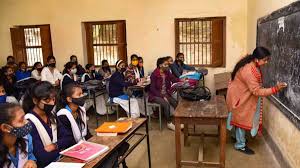

The Central Board of Secondary Education (CBSE) has announced plans to develop a new framework for assessing internal evaluations for students in classes 6 through 12. This initiative aims to standardize and improve the assessment process, ensuring consistency and fairness in evaluating students' performance throughout the academic year. The framework will focus on enhancing the quality of internal assessments and supporting effective student evaluation practices.
(NNI / Latest news / Latest news india / India latest news/UPSC Preparation)
New US Guidelines For International STEM Students
Latest News: 03rd September 2024


The U.S. Citizenship and Immigration Services (USCIS) has updated its policy guidelines for international students, particularly those studying in Science, Technology, Engineering, and Mathematics (STEM) fields. These changes, effective from August 27, affect both current and future applications for Optional Practical Training (OPT).
What is OPT?
OPT allows international students to work in the U.S. related to their field of study. STEM students can now benefit from up to three years of OPT, giving them more time to gain work experience. This is much longer than the one-year OPT available to non-STEM students.
How does the New Policy Address Online Studies?
The updated guidelines allow international students to include one online class or up to three distance learning credits per academic session as part of their full course load. This is in line with F1 visa regulations, ensuring students remain eligible while taking some classes online.
Can students transfer between Schools more easily?
Yes, the new policy makes it easier for international students to transfer between schools. Students can now move between different educational institutions that are certified by the Student and Exchange Visitor Program (SEVP). This applies even if the schools are at different educational levels, providing more flexibility in their studies.
What are the new rules for Post-Completion OPT?
After completing their degree (whether it’s an associate, bachelor’s, master’s, or doctoral degree), international students can apply for post-completion OPT. This means they can continue working in the U.S. after finishing their studies, expanding their options for gaining work experience.
How can students extend their OPT?
Students in STEM fields can apply for a 24-month extension of their OPT, which gives them a total of three years of work authorization. They need to apply for this extension up to 90 days before their current work authorization expires. To qualify, they must have a valid post-completion OPT, a degree in a STEM field, and a job with an employer who is enrolled in the E-Verify program (a system that verifies employment eligibility).
What is the 60-Day Grace Period?
After completing their OPT, students have a 60-day grace period. During this time, they can either move to a higher level of education, transfer to another SEVP-certified school, or apply for a different immigration status. This period also allows employers to sponsor the student for an H-1B visa, which is a common work visa for foreign workers.
The new guidelines clarify when students should apply for their STEM OPT extensions. This ensures that students are aware of the correct time to submit their requests, helping them avoid delays or issues with their applications.
Study Abroad Programme Guidelines
Students enrolled in SEVP-certified schools can keep their student status in the Student and Exchange Visitor Information System (SEVIS) while participating in study abroad programs that last less than five months. If the program is longer, they will need to get a new Form I-20, which is a document proving their eligibility for student status. Students on a STEM OPT extension must also report any changes in their personal or employment information within 10 days and confirm their details every six months, even if nothing has changed.
(NNI / Latest news / Latest news india / India latest news/UPSC Preparation)
IIM Lucknow establishes Centre of Excellence in Blockchain Technology
Latest News: 02nd September 2024
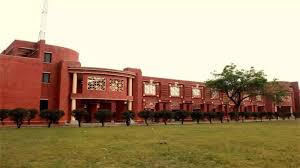

IIM Lucknow has announced the establishment of a new Centre of Excellence in Blockchain Technology. This initiative aims to advance research and innovation in blockchain applications and provide specialized training to students and professionals. The centre will focus on developing cutting-edge solutions and fostering collaborations with industry leaders to explore blockchain's potential across various sectors. The move positions IIM Lucknow at the forefront of technological education and research, emphasizing its commitment to driving advancements in emerging technologies.
(NNI / Latest news / Latest news india / India latest news/UPSC Preparation)
NASA’s Perseverance Rover Begins Climb to Jezero Crater Rim
Latest News: 29th August 2024, UPSC Preparation


NASA’s Perseverance rover began an important new phase of its mission on Mars by starting its climb to the top of Jezero Crater, on August 27, 2024. After spending over three years exploring the crater’s floor, the rover is now on a journey to reach the crater’s rim. This mission is particularly exciting because the rock samples it collects could help scientists learn more about Mars’ climate history and whether life ever existed on the planet.
Mission Overview
Perseverance landed on Mars in 2021 and has been busy since then, gathering 22 rock core samples from the base of Jezero Crater. This crater was once filled with water, making it an ideal place to look for signs of ancient life. The rover’s current mission is to climb 1,000 feet (305 meters) to the rim of the crater, where it will collect and analyze more rock samples.
Scientific Goals
The rocks that Perseverance is collecting may give scientists valuable clues about what Mars was like billions of years ago. By studying these rocks, researchers hope to understand how Mars’ environment has changed over time and whether it could have supported life in the past.
Bringing the Samples Back to Earth
NASA is working on ways to bring these rock samples back to Earth. Studying them in detail here could provide important information about how planets like Mars are formed and how they evolve over time.
Challenges of the Climb
The journey to the top of the crater won’t be easy. The terrain is rough, with rocky landscapes and steep slopes that can reach up to 23 degrees. Despite these challenges, Perseverance has already traveled about 29 kilometers on Mars, proving that it is tough and capable of handling the difficult conditions.
The rocks at the edge of the crater may have formed near ancient hydrothermal vents, which are areas where hot water once flowed. On Earth, places like these, such as those in Yellowstone National Park, are known to support a variety of life forms. If similar conditions existed on Mars, studying these rocks could help scientists learn whether life might have once thrived there. This makes Perseverance’s mission a key part of understanding Mars and its potential to host life.
What is Jezero Crater?
Jezero Crater is a spot on Mars that is about 45 km wide. Scientists think that over 3.5 billion years ago, it might have been a lake. The crater has a delta made from sediment, suggesting there could have been tiny life forms in the past. NASA’s Perseverance rover landed there in February 2021 to look for signs of past life. The crater has different types of rocks that could help scientists understand Mars’ climate history. The crater is named after a town in Bosnia and Herzegovina, following the tradition of naming Martian features after places on Earth.
Facts About Perseverance Rover
Perseverance rover was launched on July 30, 2020, and landed on Mars on February 18, 2021.
The rover has ten scientific instruments, including a small helicopter named Ingenuity.
Ingenuity made history by performing the first powered flight on Mars.
Perseverance’s main job is to search for signs of ancient life on Mars and collect samples that can be brought back to Earth in the future.
It can study rocks and soil, make oxygen from the Martian atmosphere, and move at a maximum speed of 0.1 miles per hour on Mars.
(NNI / Latest news / Latest news india / India latest news/UPSC Preparation)
New Study Urges Better Protection for Sunda Clouded Leopards
Latest News: 28th August 2024, UPSC Preparation


The Sunda clouded leopard population in Borneo has decreased to around 3,800 individuals. This decline is linked to habitat loss caused by human activities like deforestation. A recent study, published on August 21, 2024, in npj Biodiversity and led by Ewan Macdonald from Oxford University, reveals that current protected areas are often located in less critical regions, such as high mountains, rather than in the key habitats where the leopards are most endangered.
Importance of Borneo’s Forests
The forests of Borneo are essential for fighting climate change because they store carbon. However, ongoing forest destruction not only threatens leopard habitats but also reduces the forests’ ability to store carbon.
Conservation Strategies
The study examined two main approaches for protecting the Sunda clouded leopards:
Pro-active Protection: Focuses on areas that are currently at high risk.
Expedient Protection: Involves protecting areas that are already secure.
Researchers used predictive models to explore future scenarios, considering potential forest loss and changes in leopard populations.
Data and Methodology
Researchers used the resistant kernel approach to identify key leopard habitats, which analyzes movement patterns and environmental needs. They also employed the MARXAN software to evaluate different conservation plans and find the best areas to protect.
Impact of Current Practices
The study found that improving protection in high-risk areas could increase leopard habitat by 53% and save an additional 82 million tonnes of carbon. This shift is crucial because many land-use practices currently offer greater financial benefits than forest conservation.
Policy Recommendations
The study suggests:
Implementing initiatives like REDD+ to provide financial incentives for forest conservation.
Enforcing stricter regulations to penalize deforestation activities.
Governments, conservationists, and local communities must work together to protect Borneo’s wildlife and forests. The choices made today will have lasting effects on both the leopards and the global environment.
About Sunda Clouded Leopard
The Sunda clouded leopard (Neofelis diardi) is native to Borneo and Sumatra. It is different from the mainland clouded leopard due to its darker coat and larger size. This species is an excellent climber, often hunting in trees. They are mostly solitary and active at night. Their diet includes deer, birds, and monkeys. Sunda clouded leopards can leap up to six times their body length. They are listed as vulnerable because of habitat loss and poaching. Genetic studies suggest they might be two separate species.
(NNI / Latest news / Latest news india / India latest news/UPSC Preparation)
IISER Pune Developed CsPbBr3
Latest News: 27th August 2024, UPSC Preparation
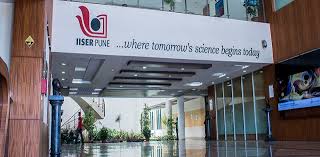

Dr. Atikur Rahman’s research group at the Indian Institute of Science Education and Research (IISER) in Pune has created a new method for growing tiny crystals called CsPbBr3 nanoplatelets. These crystals are important because they can be used in devices that detect light and are used in electronic devices like solar panels and LEDs. The results of their research were published in a well-known journal, Advanced Materials, and have gained attention because of the potential benefits of technology.
Significance of CsPbBr3
CsPbBr3 is a special material that interacts well with light, which makes it very useful for technologies like solar cells, LEDs, and other light-sensitive devices. One of its key strengths is its ability to remain stable even at high temperatures, which means it can be used in many different applications without breaking down or losing its effectiveness.
What Challenges Did Researchers Face?
Growing large and high-quality CsPbBr3 crystals has been difficult for scientists. These crystals need to have certain properties, like being able to change their electric polarization (called ferroelectric properties) and having minimal dark current, which is unwanted electrical noise. These challenges have slowed down progress in using these crystals in new technologies. The research team came up with a new way to grow these crystals using a process called solvothermal synthesis. This method involves dissolving the materials needed to form the crystals in a special solution at almost room temperature. This new approach allows the crystals to form more easily and with higher quality, overcoming some of the previous challenges.
What is Ferroelectric Properties?
One of the exciting discoveries in this study is that the CsPbBr3 crystals have ferroelectric properties. This means they can maintain and reverse their electric polarization, which is very important for advanced technology applications. The research team used sophisticated techniques to confirm these properties, showing that the crystals can generate new light frequencies and respond to electric fields, making them very sensitive to light and radiation.
About CsPbBr 3 nanoplatelets
Material Overview: CsPbBr3 nanoplatelets are a type of halide perovskite material, known for their strong ability to emit light (photoluminescence) and their usefulness in devices that work with light, like LEDs and solar cells.
Structure: These nanoplatelets are thin, flat structures that are two-dimensional. Because of their small size, they show special behaviors known as quantum confinement effects, which allow their light-emitting properties to be adjusted by changing their size.
Stability: They are highly stable due to their strong internal structure, making them more reliable compared to other perovskite materials.
Synthesis: CsPbBr3 nanoplatelets can be made using simple solution-based methods, which usually result in uniform size and shape.
Applications: These materials are especially interesting for use in light-emitting devices and solar cells, where they can improve efficiency.
Doping Potential: The chemical makeup of CsPbBr3 nanoplatelets allows for easy addition of other elements (doping), which can enhance or modify their properties for different applications.
(NNI / Latest news / Latest news india / India latest news/UPSC Preparation)
‘Design Indian dress codes’: Health Ministry asks institutes to ditch black robes for convocation
Latest News: 26th August 2024


The Indian Health Ministry has directed educational institutions to abandon traditional black robes for convocation ceremonies. The new dress code aims to promote a more vibrant and culturally inclusive atmosphere at these events. The ministry's decision is part of a broader effort to modernize and personalize academic celebrations across the country. Institutions are encouraged to design attire that reflects local traditions and promotes a sense of national pride.
(NNI / Latest news / Latest news india / India latest news/UPSC Preparation)
CBSE Lists Mandatory Documents Required for Schools Seeking Affiliation
Latest News: 25th August 2024


The Central Board of Secondary Education (CBSE) has issued a new directive outlining the mandatory documents required for schools seeking affiliation. The updated guidelines include detailed requirements such as proof of land ownership, infrastructure details, faculty qualifications, and financial stability. Schools must also submit a detailed application form along with supporting documents to ensure compliance with CBSE standards. The move aims to streamline the affiliation process and ensure that institutions meet the necessary criteria for quality education. Schools are advised to review the list carefully to facilitate a smooth application process.
(NNI / Latest news / Latest news india / India latest news/UPSC Preparation)
Astronomers Discover New Method to Study Solar Magnetic Fields
Latest News: 24th August 2024, UPSC Preparation


Astronomers at the Indian Institute of Astrophysics (IIA) have come up with a new way to study the Sun’s atmosphere by looking at its magnetic fields in different layers. This is a big breakthrough because it uses data from a special telescope called the Kodaikanal Tower Tunnel Telescope. By understanding these magnetic fields better, scientists can learn more about how the Sun works, including things like the solar wind, which affects us here on Earth.
Understanding the Solar Atmosphere
The Sun’s atmosphere is made up of several layers, each connected by complicated magnetic fields. These magnetic fields are like pathways that move energy and particles from inside the Sun out to its outer layers. One of the big mysteries in solar physics (the study of the Sun) is why the Sun’s outer layer, called the corona, is so much hotter than its surface, and these magnetic fields might hold the answer.
Why Magnetic Fields Matter
To really understand how the Sun works, scientists need to measure these magnetic fields at different heights in the solar atmosphere. This information is important because it helps us understand how energy moves around on the Sun, which then influences solar activity like solar flares and space weather—conditions in space that can impact Earth.
Looking at Active Regions on the Sun
The astronomers at IIA focused their study on an active region of the Sun, which is an area with a lot of magnetic activity, often including sunspots. Sunspots are dark spots on the Sun’s surface that have strong magnetic fields. They used two specific types of observations, called Hydrogen-alpha and Calcium II 8662 Å spectral lines, to study the magnetic fields at different heights above this sunspot.
How the Kodaikanal Telescope Works
The Kodaikanal Tower Tunnel Telescope is a complex and well-designed instrument. It uses three mirrors to follow the Sun and capture its light. The first mirror (M1) tracks the Sun as it moves across the sky, the second mirror (M2) directs this sunlight downward, and the third mirror (M3) sends the light horizontally into the telescope. This arrangement called a Coelostat, allows the telescope to keep watching the Sun continuously as it changes position throughout the day.
Using Spectral Lines to Study Magnetic Fields
When scientists study the Sun, they often use something called spectral lines, like Calcium II 8542 Å and Helium I 10830 Å, to figure out what the magnetic field is like in different parts of the Sun’s atmosphere. But these tools have some limits, meaning they don’t always work perfectly for studying every feature of the Sun.
Why This Research Matters
This new research by the IIA is a big step forward in understanding how the Sun works. By getting a better grasp of the Sun’s magnetic fields, scientists might be able to solve some long-standing questions about the Sun’s behavior. This knowledge is especially important because it could help us predict solar events that might affect life on Earth, like solar storms that can disrupt communications and power grids.
uniform civil code / what is uniform civil code / uniform civil code meaning / uniform civil code article / uniform civil code in india / uniform civil code in hindi / uniform civil code upsc / uniform civil code kya hai / ucc uniform civil code / what is uniform civil code in india / uniform civil code Uttarakhand / uniform civil code essay / uttarakhand uniform civil code / uniform civil code means / uniform civil code kerala / kerala uniform civil code / uniform civil code in which state of india / uniform civil code pdf / uniform civil code in Uttarakhand / uniform civil code india
Evolution of NEET exam pattern presents challenges & offers opportunities for students to fine-tune preparation strategy
Latest News: 23rd August 2024


The recent changes to the NEET exam pattern are reshaping how students approach their preparation strategies. The updated format introduces new challenges, including altered question types and revised scoring systems. However, these changes also offer students an opportunity to refine their study techniques and adapt to the new requirements. Experts suggest that a strategic approach, including focused practice and understanding the revised exam structure, can help students navigate these shifts effectively. As the NEET exam continues to evolve, staying informed and flexible will be key to achieving success.
uniform civil code / what is uniform civil code / uniform civil code meaning / uniform civil code article / uniform civil code in india / uniform civil code in hindi / uniform civil code upsc / uniform civil code kya hai / ucc uniform civil code / what is uniform civil code in india / uniform civil code Uttarakhand / uniform civil code essay / uttarakhand uniform civil code / uniform civil code means / uniform civil code kerala / kerala uniform civil code / uniform civil code in which state of india / uniform civil code pdf / uniform civil code in Uttarakhand / uniform civil code india
Liquid Water Found Deep in Mars’ Crust, Study Reveals
Latest News: 22nd August 2024, UPSC Preparation


Recent research has revealed large amounts of liquid water hidden beneath the surface of Mars. This discovery challenges what scientists previously thought about water on Mars and opens up new possibilities for understanding the planet’s geology and the potential for life.
Overview of the Study
The study, titled Liquid water in the Martian mid-crust, was published in the journal Proceedings of the National Academy of Sciences (PNAS). It was conducted by a team from the University of California San Diego, led by scientists Vashan Wright, Matthias Morzfeld, and Michael Manga.
How the Research Was Done
Researchers used data from NASA’s Mars Insight Lander, which was active from 2018 to 2022. The lander had a special instrument called a seismometer that recorded vibrations or “quakes” on Mars, called Marsquakes. It detected over 1,300 Marsquakes and impacts from things like meteorites. By studying how fast seismic waves moved through the ground, the team could figure out what kinds of materials the waves were passing through. They found signs of a layer of cracked igneous rock (a type of volcanic rock) filled with liquid water, located about 10 to 20 kilometers (6 to 12 miles) below the surface.
Important Discoveries
The study suggests that this liquid water might have come from rivers and lakes that existed billions of years ago on Mars. If this water is spread throughout the planet, it could make up a large underground ocean. This finding has big implications for understanding how water cycles and climate on Mars have changed over time.
What This Means for Life on Mars
While this discovery doesn’t prove that life exists on Mars, it increases the chances that the planet could support life. Water is a key ingredient for life, and underground water could sustain simple life forms, similar to how life exists deep underground or at the bottom of the ocean on Earth. Even though finding water on Mars is exciting, getting to it would be extremely difficult. Drilling 10 to 20 kilometers (6 to 12 miles) into Mars’ surface would be a huge challenge, especially if humans want to live on Mars or use this water. This makes plans to colonize Mars or use its resources much more complicated.
Facts About Mars
Mars is often called the Red Planet.
Mars has the largest volcano in the solar system, called Olympus Mons, which is about 13.6 miles high.
A day on Mars, known as a sol, lasts about 24.3 hours.
Mars has two small moons, Phobos and Deimos, which are likely captured asteroids.
Water ice is found at Mars’ poles, and there’s recent evidence that salty water might flow during certain seasons.
The atmosphere of Mars is 95% carbon dioxide.
Mars has the biggest dust storms in the solar system, which can cover large areas.
uniform civil code / what is uniform civil code / uniform civil code meaning / uniform civil code article / uniform civil code in india / uniform civil code in hindi / uniform civil code upsc / uniform civil code kya hai / ucc uniform civil code / what is uniform civil code in india / uniform civil code Uttarakhand / uniform civil code essay / uttarakhand uniform civil code / uniform civil code means / uniform civil code kerala / kerala uniform civil code / uniform civil code in which state of india / uniform civil code pdf / uniform civil code in Uttarakhand / uniform civil code india
SC rejects plea challenging NMC's decision to not conduct NEET-Super Speciality examination this year
Latest News: 21st August 2024


Supreme Court has dismissed a plea challenging a decision of the National Medical Commission (NMC) to not conduct the NEET-Super Speciality examination this year.
(NNI / Latest news / Latest news india / India latest news/UPSC Preparation)
TISS To Accept CAT Scores For 3 Postgraduate Programmes From 2025-26
Latest News: 20th August 2024
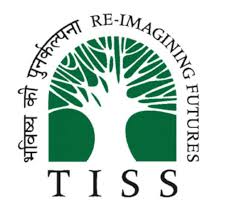

The Tata Institute of Social Sciences (TISS) has announced a significant shift in its admissions process for the 2025-26 academic year. In a move aimed at broadening access and streamlining entry into its prestigious programs, TISS will now accept the Common Admission Test (CAT) scores for three of its postgraduate programmes. This marks a notable departure from the institute's traditional admission process, which relied on its own entrance exams and interviews.
The three programmes that will now accept CAT scores are:
Master of Business Administration (MBA) in HR and Labour Relations – This programme, known for its emphasis on human resource management and industrial relations, will leverage CAT scores to assess candidates' quantitative and analytical skills.
Master of Management Studies (MMS) – Designed for students aspiring to gain advanced management knowledge and skills, the MMS programme will now integrate CAT scores into its selection criteria.
Master of Social Work (MSW) with Specialization in Community Organization and Development Practice – This programme, focusing on social work and community development, will also incorporate CAT scores to evaluate candidates' problem-solving and analytical capabilities.
The decision to accept CAT scores is expected to enhance the institute's reach and attract a diverse pool of candidates. TISS, renowned for its strong emphasis on social sciences and management, aims to integrate a wider range of competencies into its evaluation process.
Dr. Anuradha Chatterjee, the Director of TISS, highlighted the benefits of this change: “By incorporating CAT scores into our admissions process, we hope to attract candidates with a strong analytical background, which will complement the qualitative aspects of our evaluation. This integration aligns with our goal to ensure that our students are well-rounded and prepared for the complex challenges in their respective fields.”
The CAT, conducted annually by the Indian Institutes of Management (IIMs), is one of the most widely recognized entrance exams for business and management programmes in India. By accepting CAT scores, TISS is aligning itself with the broader trends in higher education, where standardized tests are increasingly being adopted to gauge candidate aptitude.
Prospective applicants should note that TISS will still maintain its unique selection procedures, including its individual assessments and interviews, to ensure a comprehensive evaluation of each candidate’s suitability for their chosen programme.
For more details on the updated admission criteria and application process, prospective students are encouraged to visit the official TISS website or contact the admissions office directly.
For further information, please contact:
Tata Institute of Social Sciences
Admissions Office
Email: admissions@tiss.edu
Phone: +91-22-25521111
This change is likely to have a significant impact on the admissions landscape for postgraduate programmes at TISS, offering new opportunities and challenges for both the institute and its applicants.
(NNI / Latest news / Latest news india / India latest news/UPSC Preparation)
How India-Japan Education Conference Plans To Make An Impact
Latest News: 19th August 2024, UPSC Preparation


New Delhi, August 19, 2024 — The India-Japan Education Conference, a landmark event aimed at fostering collaboration and innovation in the educational sector, is set to make a significant impact on both nations' academic landscapes. The conference, scheduled to take place next month, promises to address key challenges and explore opportunities for mutual growth and development in education.
The conference, which will be held in New Delhi from September 15 to 17, 2024, is being organized by the Ministry of Education of India in collaboration with Japan's Ministry of Education, Culture, Sports, Science and Technology (MEXT). This high-profile event will bring together educators, policymakers, and researchers from both countries to discuss and implement strategies for enhancing educational standards and international cooperation.
Key Themes and Objectives
The India-Japan Education Conference will focus on several pivotal themes, including:
Curriculum Development and Innovation: Participants will explore ways to integrate cutting-edge technology and modern pedagogical methods into curriculums to better prepare students for a globalized world. The conference will highlight successful models from both countries and discuss potential adaptations.
Student Exchange Programs: Strengthening student exchange initiatives will be a major focus, aiming to provide students with cross-cultural experiences and global perspectives. Discussions will center on expanding existing programs and creating new opportunities for academic and cultural exchange.
Teacher Training and Professional Development: Improving teacher training and ongoing professional development is critical for enhancing educational quality. The conference will feature workshops and sessions on best practices for teacher education and support systems.
Research and Collaboration: The conference will facilitate collaborative research projects between Indian and Japanese educational institutions. This includes exploring joint research initiatives, academic partnerships, and shared resources to drive innovation in education.
Addressing Educational Inequalities: Both nations will address challenges related to educational equity and access, sharing strategies for reducing disparities and ensuring inclusive education for all students.
Impact and Future Prospects
The India-Japan Education Conference aims to lay the groundwork for long-term collaboration between the two countries, with the potential to significantly impact educational policies and practices. By fostering a dialogue between Indian and Japanese educators and policymakers, the conference seeks to create a framework for continuous improvement and innovation in education.
"The India-Japan Education Conference is a crucial step towards building a stronger educational partnership between our two countries," said India's Minister of Education, Ramesh Kumar. "We are excited to share our experiences and learn from Japan’s advancements in education, and we believe that this collaboration will yield substantial benefits for students and educators in both nations."
Japan’s Minister of Education, Hiroshi Takeda, echoed these sentiments, emphasizing the importance of mutual learning and exchange. "This conference provides a valuable platform for us to exchange ideas and collaborate on educational initiatives that will benefit both our countries. We look forward to the impactful outcomes of our discussions."
As the conference approaches, anticipation is building among educators and stakeholders. The outcomes of this significant event are expected to influence educational practices and policies in India and Japan, setting the stage for a strengthened partnership in education.
(NNI / Latest news / Latest news india / India latest news/UPSC Preparation)
UPSC issues ad for lateral entry into bureaucracy: What is the policy, why it has no reservation provision
Latest News: 18th August 2024
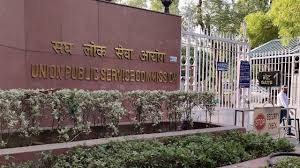

The Centre has opened a fresh round of lateral recruitments, from the private sector and elsewhere, into senior posts in the bureaucracy. Such appointments have also been criticised for not extending reservations to SC, ST and OBC communities.
(NNI / Latest news / Latest news india / India latest news/UPSC Preparation)
India and Israel Launch New
Water Technology Centre at IIT-Madras
Latest News: 16th August 2024, UPSC Preparation
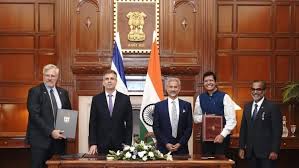

India and Israel have launched a joint project to set up a Centre of Water Technology at the Indian Institute of Technology (IIT) Madras. This initiative is designed to strengthen India’s efforts in sustainable water management and improve
water resource management practices.
Significance of the Partnership
The Embassy of Israel has called this collaboration a “significant milestone,” underscoring the growing partnership between the two countries in addressing water-related challenges. The joint venture reflects a mutual commitment to tackling water scarcity issues in India.
Joint Statement of Intent
A formal agreement, known as the Joint Statement of Intent, was signed by the Embassy of Israel, IIT
Madras, and the AMRUT mission (Atal Mission for Rejuvenation and Urban Transformation) from the Ministry of Housing and Urban Affairs. This agreement outlines the framework for establishing the new water technology centre.
Objectives of the Centre
The Centre of
Water Technology is expected to be a hub for innovation and research, focusing on developing sustainable solutions for urban water supply and advancing water technology capabilities. As part of the initiative, a capacity-building course titled ’24/7 Water Supply in Urban Areas’ was held at IIT Madras from August 5 to August 8. This training is crucial for providing stakeholders with essential skills in managing urban water systems.
(NNI / Latest news / Latest news india / India latest news/UPSC Preparation)
IISc Bengaluru Dominates NIRF 2024 University Category
Latest News: 15th August 2024, UPSC Preparation
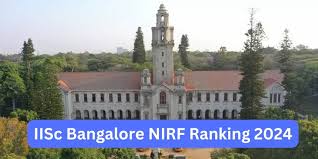

On August 12, 2024, India’s Union Minister of
Education, Dharmendra Pradhan, shared the National Institutional Ranking Framework (NIRF) rankings for the year 2024. In these rankings, the Indian Institute of Science (IISc), Bengaluru, stood out as one of the best, consistently ranking within the top five in four important categories: Overall performance, University ranking, Research Institutions, and Innovation.
About IISc Bengaluru
The Indian Institute of Science (IISc) Bengaluru, founded in 1909, is India’s leading research institution. The idea for IISc was first proposed by J.R.D. Tata and Lady Meherbai Tata. For many years, IISc only offered postgraduate and doctoral programs, with no undergraduate degrees available until 2011.
The campus is large, covering 400 acres, and is home to more than 40 research centers. One of its most notable achievements is hosting the world’s first research center focused on human-computer interaction.
IISc has a rich history of excellence, having produced several Nobel laureates, and it consistently ranks among the top universities in the world for science and engineering.
NIRF Ranking Parameters
The NIRF rankings are decided based on five key factors:
Teaching, Learning, and Resources (TLR): This looks at the quality of teaching, learning, and resources available.
Research and Professional Practice (RPC): This measures how well institutions do in research and professional work.
Graduation Outcomes (GO): This considers how students perform after graduation, such as getting jobs or pursuing further studies.
Outreach and Inclusivity (OI): This checks how inclusive and diverse the institution is.
Perception (PER): This is based on the reputation of the institution, as seen by peers and employers.
IISc Bengaluru’s Performance in NIRF 2024
In the 2024 NIRF rankings, IISc Bengaluru achieved the following:
Overall: Ranked 2nd with a score of 83.28
University: Ranked 1st with a score of 83.29
Research Institutions: Ranked 1st with a score of 84.98
Innovation: Ranked 4th
Reasons for IISc’s Success
IISc Bengaluru’s strong performance is due to:
High-quality research and academic resources: IISc provides excellent facilities and opportunities for research and learning.
Strong student outcomes and inclusivity initiatives: Students from IISc do well in their careers, and the institution supports a diverse and inclusive environment.
Excellent perception: IISc is highly regarded by other educational institutions and employers.
Placement and Higher Studies
Regarding placement results and interest in further studies at IISc Bengaluru:
2021-22: Out of 98 graduates, 4 were placed in jobs with a median salary of INR 22,50,000, and 89 chose to continue their studies.
2022-23: Out of 106 graduates, 4 were placed in jobs with a median salary of INR 30,00,000, and 96 decided to pursue higher studies.
This shows that many students from IISc prefer to continue their education, which reflects the institute’s strong academic environment.
Facts About NIRF Rankings 2024
NIRF Rankings 2024: This is a system to rank schools and universities in India, based on how well they teach, research, and connect with the community.
Started in 2015: The rankings have been happening every year since 2015, organized by the Ministry of
Five Main Categories: The rankings cover five types of institutions: Universities, Colleges, Engineering, Management, and Pharmacy.
Key Factors: Schools are judged based on teaching quality, research work, student success, and how inclusive they are.
Ninth Year: This is the ninth year these rankings are being published.
Constant Improvement: The way schools are ranked changes a bit each year to make the process clearer and more useful, helping schools to get better in different areas of education.
news live / news24 live / news aaj tak / news18 live / news live hindi / news today / news 24 / news aaj ka / news aaj ki / news abp live / news aaj tak live today 2024 live / news asianet live / news abp / news arjun / ai news today / news Pakistan / news live / ai news 24 / news book / news channel / dd news / news eighteen live / news english live india / news elvish Yadav / news English / news election / news eighteen / news english live / bd news 24 / dd news live / news debate in hindi latest / news dijiye / news db live / news drishti ias / news dikhaiye / news bharat / news live / news channel live hindi / news channel live hindi all / news channel live / news nation / news live
#breakingnews #sneakernews #freefirenews #fortnitenews #footballnews #cryptonewsdaily #artnewss #artsnewss #aeronewsx #goodnewsxhm #runews24 #wasinews24 #xebernews24 #cryptonews24 #foxnews5 #wkrgnews5 #actionnews5 #wlwtnews5 #ktlanews5 #cearánews7 #eyewitnessnews7 #abcnews7 #bvbnews7 #commentwithnews7tamil
#baynews9
IIT Indore Unveils Advanced Shoes with TENG Technology
Latest News: 13th August 2024
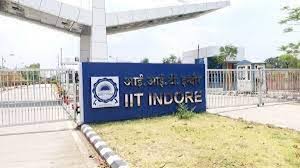

IIT Indore has created advanced shoes using a special technology called Tribo-Electric Nanogenerator (TENG). These shoes are designed to improve safety and efficiency for armed forces personnel but could also be useful in many other areas.
What is TENG Technology?
TENG technology works by turning the movement of your steps into electrical energy. As you walk, the energy from each step is collected and stored in the shoe. This stored energy can then be used to power small electronic devices. The shoes also have built-in GPS technology, which allows for real-time location tracking. This feature helps military personnel stay aware of where they are and coordinate better with others.
Safety and Efficiency in Military Operations
The real-time location data from the shoes can greatly enhance safety and coordination for soldiers, helping them stay connected and aware of their environment. Beyond military use, these shoes could also be useful in sports for tracking athletes’ movements and in health monitoring for elderly people, children, and even for managing attendance in factories.
Delivery to DRDO
The first set of 10 pairs of these high-tech shoes has been sent to the Defence Research and Development Organisation (DRDO) for testing and evaluation. This project is led by Professor Suhas Joshi at IIT Indore, with support from Professor I A Palani, demonstrating the institution’s dedication to developing cutting-edge technology.
About Tribo-Electric Nanogenerator (TENG)
Tribo-Electric Nanogenerators (TENGs) are devices that turn movement into electrical energy using a special effect called the triboelectric effect. They work by using two different materials that create an electric charge when they touch and then separate.
(NNI / Latest news / Latest news india / India latest news)
(UPSC current affairs / UPSC / UPSC Preparation / UPSC Preparation Books / UPSC Preparation Strategy )
NIRF Rankings 2024 Out, IIT Madras, AIIMS, JNU Among Top Institutes
Latest News: 13th August 2024
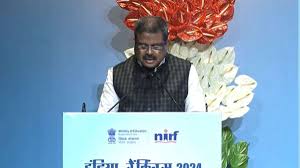

NIRF 2024: This year's rankings, the ninth edition of NIRF, introduced three new categories: 'open universities,' 'skill universities,' and 'state-funded government universities.'
(NNI / Latest news / Latest news india / India latest news)
IIT Guwahati Develops ML Framework LEAP for IC Design Efficiency
Latest News: 12th August 2024
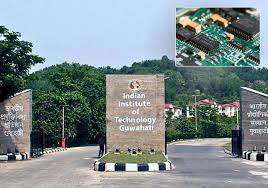

Researchers at the Indian Institute of Technology Guwahati (IIT Guwahati) have developed a new machine learning framework called ‘LEAP’ that significantly improves the process of Electronic Design Automation (EDA) for Integrated Circuits (ICs). EDA is a critical process in the $600 billion semiconductor industry. This software takes high-level circuit designs and converts them into a format that can be manufactured, known as Graphic Design System (GDS). EDA is essential for IC design, helping engineers deal with the complex steps needed to create electronic components.
Traditional Challenges in IC DesignTraditional Challenges in IC Design
Traditionally,
EDA methods have used heuristic techniques, which are approaches based on experience or rules of thumb rather than exact methods. While these techniques can provide a balance between design quality and the time it takes to complete the design, they often do not produce the best possible solutions. This means that there is a need for further improvements to make the process more efficient.
What is the LEAP
Framework?
The LEAP framework, developed by Prof. Chandan Karfa and Dr. Sukanta Bhattacharjee, uses machine learning to make the EDA process more efficient, especially during the technology mapping process. Technology mapping is a crucial step where the abstract design is translated into a specific configuration of circuit elements. LEAP intelligently identifies and prioritizes the best configurations, significantly reducing the number of options that engineers need to evaluate.
What are the Efficiency Improvements with LEAP?
LEAP narrows down the choices from about 250 configurations to just 10 per node, which results in a 50% reduction in the time it takes to complete the process. Additionally, it reduces the number of configurations that need to be checked by over 51%. This targeted decision-making process makes the whole design process faster and more efficient. During extensive testing across 21 different designs, the LEAP
framework showed a 50% improvement in performance. It not only speeds up the mapping process but also reduces the clock period (the time it takes for a circuit to complete one cycle) by 2% without increasing the size of the circuit. This means that designs can be more efficient without sacrificing quality.
What is Integrated Circuits?
Integrated circuits (ICs) have revolutionized
electronics by combining multiple components on a single chip, making devices smaller and more affordable. The first IC was created in 1958 by Jack Kilby. These circuits are made primarily from silicon, though other materials like gallium arsenide are also used. ICs come in different types, including analog, digital, and mixed-signal, and they are found in nearly all modern electronics, such as smartphones and computers. They are made using a process called photolithography, and according to Moore’s Law, their performance is expected to double roughly every two years.
About Indian Institute of Technology
Guwahati
Established in 1994: IIT Guwahati is the sixth Indian Institute of Technology and is situated on a 700-acre campus by the Brahmaputra River.
First to Introduce Design Program: IIT Guwahati was the first among IITs to offer a design program and has architecture inspired by Assamese culture, surrounded by diverse plant and animal life.
Focus on Research and Global Collaboration: The institute is active in research in areas like robotics, biotechnology, and climate change, and works with universities worldwide for academic exchanges.
(NNI / Latest news / Latest news india / India latest news)
(UPSC current affairs / UPSC / UPSC Preparation / UPSC Preparation Books / UPSC Preparation Strategy )
IIT Madras Challenges QS World University Rankings 2025, Calls It "Disappointing And Demotivating"
Latest News: 7th August 2024
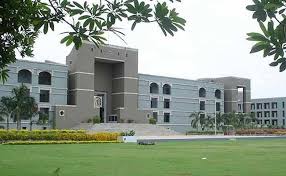

Despite significant efforts and achievements, IIT Madras saw only a marginal improvement from its previous ranking of 285.
(NNI / Latest news / Latest news india / India latest news)
(UPSC current affairs / UPSC / UPSC Preparation / UPSC Preparation Books / UPSC Preparation Strategy )
Role of Artificial Intelligence in Education
Latest News: 6th August 2024, UPSC Preparation


When ChatGPT was launched in November 2022, it sparked a lot of discussion in the field of education. Many people were worried about the impact it would have on the honesty and originality of student work. Teachers found it challenging to tell the difference between work written by students and content generated by AI.
Challenges in Education
Attempts to ban AI tools like ChatGPT in schools didn’t work well because students quickly found ways to get around these restrictions. In response, some teachers decided to include these AI tools in their assignments, asking students to analyze and critique the AI’s output.
Generative AI: Pros and Cons
As more people started using AI, its negative aspects became more noticeable. There were cases where AI provided incorrect information or “hallucinated” facts, showing the limits of this technology. While AI offers many benefits, it also comes with risks, much like a double-edged sword.
Student Usage Patterns
A study showed that about 60% of high-school students surveyed admitted to using ChatGPT for different assignments, even though many knew it could be considered cheating. However, some students positively used AI to help them learn better.
Potential in Education
AI can greatly improve personalized learning by offering instant feedback and helping students with special needs. For example, there are AI tools that can correct reading mistakes in real time or check grammar, which can make learning more engaging. To get the most out of AI in education while reducing its misuse, real-time assessments like interviews might help teachers better understand how well students are grasping the material.
The Teacher’s Role
Despite the advancements in AI, it cannot replace the human element of teaching. The COVID-19 pandemic showed us how important personal interaction and emotional connection are in education—things that AI cannot provide. There are also major privacy concerns when it comes to AI tools collecting sensitive personal data. It’s important to figure out who owns this data and to ensure that it is managed securely and not influenced by commercial interests.
Call for Diverse Voices
As AI becomes more integrated into education, it is crucial for teachers, parents, and other stakeholders to actively shape its role. A combined effort is necessary to ensure that the future of education prioritizes the well-being and rights of students.
(NNI / Latest news / Latest news india / India latest news)
(UPSC current affairs / UPSC / UPSC Preparation / UPSC Preparation Books / UPSC Preparation Strategy )
RTE Act covers admissions to KG classes too, rules Madras HC
Latest News: 5th August 2024, UPSC Preparation
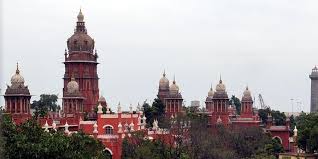

Context: The Madras High Court has recently ruled that the Right of Children to Free and Compulsory Education (RTE) Act, 2009, which traditionally applies to children aged between six and 14, also encompasses admissions to kindergarten classes. This ruling clarifies that the Act’s objective to provide education from pre-school to eighth standard supersedes technical age constraints.
Key Points of the Ruling
Case Background: The ruling came in response to writ petitions filed by parents whose children were denied admission to Lower Kindergarten (LKG) under the RTE Act by two private schools in Coimbatore.
Judicial Interpretation: Justice Anita Sumanth highlighted that the overarching goal of the RTE Act is to ensure education from pre-school to eighth standard. This goal should take precedence over age-specific definitions within the Act.
State’s Practice: The judge noted that the Tamil Nadu state government has been treating children below six years of age as beneficiaries under the RTE Act, providing financial support of ₹6,000 per annum for LKG and UKG classes.
Legal Basis
Section 2(c) of the RTE Act: Defines a ‘child’ as a male or female child aged six to 14.
Section 12(1) of the RTE Act: Refers to pre-school education, implying that the Act’s benefits extend from kindergarten to eighth standard.
Significance
Educational Inclusivity
Broadened Scope of RTE Act: This ruling effectively broadens the scope of the RTE Act, ensuring that younger children, starting from kindergarten, are included in the ambit of free and compulsory education.
Uniform Educational Standards: It reinforces the objective of the RTE Act to provide consistent educational opportunities across different states, despite varying age criteria for school commencement.
Policy Implications
State-Level Implementation: Different states may need to revise their policies to align with this interpretation, ensuring that children below six years of age are covered under the RTE Act.
Funding and Resources: There may be a need for increased funding and resources to support the inclusion of kindergarten admissions under the RTE Act.
Social Impact
Enhanced Access to Education: The ruling ensures that children from economically weaker sections have access to early childhood education, setting a strong foundation for their future academic pursuits.
Reduction in Dropout Rates: Early inclusion in the education system can help reduce dropout rates by engaging children at a younger age and fostering a culture of learning.
2. States can directly buy rice from FCI, says Food Minister
Context: The Union Food and Consumer Affairs Minister, Pralhad Joshi, announced that state governments can now purchase rice directly from the Food Corporation of India (FCI) under the Open Market Sale Scheme (Domestic) without participating in the e-auction. This decision aims to manage surplus stocks and streamline the procurement process following the kharif season.
Key Announcements:
Direct Procurement: States can buy rice directly from FCI without e-auction.
Price Adjustment: The price for states to procure rice is set at ₹2,800 per quintal, reduced from ₹2,900 per quintal, excluding transportation costs.
Objective: To reduce surplus stock ahead of new procurement post-kharif season.
Pradhan Mantri Garib Kalyan Anna Yojana (PMGKAY):
Extended Benefits: The scheme will continue to provide free foodgrains to 81.35 crore beneficiaries for five years starting January 1, 2024.
Financial Outlay: The estimated financial burden on the Centre is ₹11.8 lakh crore.
Fortified Rice Distribution: The Centre has completed the replacement of custom-milled rice with fortified rice across all government schemes.
Price Monitoring System (PMS):
Version 4.0 Launch: The app now monitors the prices of 38 commodities, up from the previous 22.
Newly Added Commodities: Bajra, jowar, ragi, suji, maida, besan, ghee, butter, brinjal, egg, black pepper, coriander, cumin seed, red chillies, turmeric powder, and banana.
Vegetable Prices: The government addressed seasonal price hikes, such as stabilising tomato prices and offering subsidised tomatoes at ₹60 per kg.
Significance
Economic Impact:
Cost Efficiency: Reducing the procurement price helps state governments manage their food security budgets more effectively.
Surplus Management: Direct sales to states help FCI manage surplus stocks efficiently, preventing wastage and ensuring better resource allocation.
Social Impact:
Food Security: Extending the PMGKAY ensures continued food security for a significant portion of the population, particularly the economically weaker sections.
Nutritional Improvement: Distribution of fortified rice helps address malnutrition and improves the overall health profile of beneficiaries.
Market Stability:
Price Monitoring: Expanding the PMS to include more commodities helps in better tracking and managing market fluctuations, ensuring price stability.
Subsidised Commodities: Providing essential commodities at subsidised rates helps in controlling inflation and making basic goods accessible to the masses.
(NNI / Latest news / Latest news india / India latest news)
(UPSC current affairs / UPSC / UPSC Preparation / UPSC Preparation Books / UPSC Preparation Strategy )
NIT-Calicut Launches Innovative Web Portal ‘Nivahika’
Latest News: 4th August 2024, UPSC Preparation
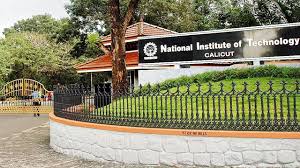

The National Institute of Technology-Calicut (NIT-C) has launched a new web portal called ‘Nivahika’. This portal is designed to change how the institute handles and reports data. According to the director, Prasad Krishna, Nivahika will improve the accuracy and consistency of the institute’s data submissions and help with national rankings.
Overview of Nivahika
Nivahika is a tool that helps collect, organize, and report data more effectively across different departments and research centers at NIT-C. The Dean’s (Planning & Development) office led the development of the portal, with help from several other departments like the Centre for Information Technology, Research and Automation, Computer Networking Centre, and the Central Computer Centre. The portal helps keep track of important activities and provides timely access to crucial data. This makes it easier to run operations smoothly and make better decisions.
Security and Access
Nivahika is designed to be secure. Only authorized people like the Director, Registrar, deans, department heads, and center chairpersons can access it through personalized accounts. One of the key features of Nivahika is that it can automatically generate reports. This is a big improvement in how NIT-C manages its data and boosts overall efficiency.
About National Institute of Technology-Calicut
Established in 1961, the National Institute of Technology-Calicut (NITC) is a leading engineering school in India, originally set up as a Regional Engineering College.
The campus spans 300 acres and features a large 6000-seat auditorium. NITC offers undergraduate and postgraduate programs in various engineering disciplines.
The institute is renowned for its successful alumni, notable research in renewable energy and materials science, and strong international collaborations.
(NNI / Latest news / Latest news india / India latest news)
(UPSC current affairs / UPSC / UPSC Preparation / UPSC Preparation Books / UPSC Preparation Strategy )
NCERT Proposes 10 Bagless Days for School Students 6 – 8
Latest News: 3rd August 2024, UPSC Preparation


To reduce academic pressure on students in Classes 6 to 8, the National Council of Educational Research and Training (NCERT) has proposed 10 ‘bagless days’. These days are meant to encourage hands-on learning and vocational experiences.
Purpose of Bagless Days
The main goal of bagless days is to move learning outside traditional classrooms. This helps students interact with their community and learn practical skills for future jobs.
Implementation Guidelines
Duration and Scheduling: Schools must set aside at least 10 days (about 60 hours) for bagless activities during the school year.
Teacher Involvement: Teachers will plan these activities and work with local experts like carpenters and potters to provide practical experiences.
Learning Themes
Science, Environment, and Technology: Activities include exploring local plants and animals, testing soil and water, and attending workshops on drones and artificial intelligence.
Public Office, Local Industry, and Business: Students will visit panchayat offices, banks, and dairy farms to learn about public services and industry operations.
Art, Culture, and History: This includes cultural activities such as puppetry and dance, and visits to historical sites and national events.
Expected Outcomes
The initiative aims to improve students’ ability to observe and learn practical skills. It helps them understand and respect local jobs while encouraging a sense of community and the value of hard work. It also aims to make learning more interesting and varied beyond traditional classroom lessons. A PSS Central Institute of Vocational Education trial project showed that bagless days made students much more interested in learning job skills. This supports the wider educational goals in the National Education Policy 2020.
(NNI / Latest news / Latest news india / India latest news)
(UPSC current affairs / UPSC / UPSC Preparation / UPSC Preparation Books / UPSC Preparation Strategy )
National Apprenticeship and Training Scheme (NATS) 2.0 Portal
Latest News Education: 2nd August 2024, UPSC Preparation
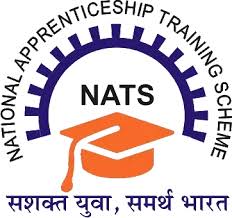

On July 30, Union Education Minister Dharmendra Pradhan launched the National Apprenticeship Training Scheme (NATS) 2.0 Portal and announced Rs 100 crore in stipends for apprentices. This money will be given directly to apprentices through the Direct Benefit Transfer (DBT) system. This new initiative is part of the government’s effort to improve the skills and job prospects of young people in fields like IT, manufacturing, and automobiles.
NATS 2.0 Portal Overview
The NATS 2.0 Portal is designed to make the apprenticeship process easier. It allows people looking for apprenticeships to register and apply for opportunities, and it helps industries manage job openings and contracts more effectively.
Benefits of the NATS 2.0 Portal
The portal is expected to attract more users and help young graduates and diploma holders gain practical job skills. It also ensures that apprentices receive a monthly stipend to support them financially during their training.
Panel Discussions on Apprenticeships
There were two-panel discussions about the future of apprenticeships. They covered topics such as:
Degree programs that include apprenticeships
Credits for apprenticeship training
Working together between industries and higher education
Using technology to improve the DBT system and e-Governance
Government’s Commitment to Skills Development
Minister Pradhan emphasized the need for education to go beyond traditional degrees. He encouraged educational institutions to focus on making students more employable by offering relevant courses, as highlighted in this year’s budget. To ensure that stipends are distributed fairly and efficiently, the DBT system was introduced in 2024. This system allows stipends to be sent directly to apprentices’ bank accounts, making sure they get their benefits quickly.
Supporting Vocational Education
The NATS 2.0 Portal supports the National Education Policy (NEP) 2020, which aims to make vocational education a key part of the education system. It promotes combining vocational training with general education and supports student mobility through new guidelines for Apprenticeship Embedded Degree Programmes (AEDP) introduced by the UGC and AICTE.(NNI / Latest news / Latest news india / India latest news)
(UPSC current affairs / UPSC / UPSC Preparation / UPSC Preparation Books / UPSC Preparation Strategy )
Bhupender Yadav Launches Ideas4LiFE Initiative at IIT Delhi
Latest News: 1st August 2024, UPSC Preparation
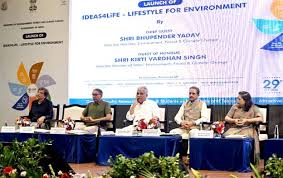

Union Minister for Environment, Forest, and Climate Change, Bhupender Yadav, announced the launch of Ideas4LiFE at IIT Delhi. This initiative aims to collect innovative ideas that encourage environmentally friendly behaviors.
The Purpose of Ideas4LiFE
Ideas4LiFE is set up to gather creative ideas and innovations online that can inspire people to live more sustainably. It supports Prime Minister Narendra Modi’s vision of using resources wisely. The program invites students, researchers, teachers, and innovators to share their ideas. It seeks to create a culture of innovation focused on protecting the environment.
Global Initiative of Mission LiFE
Ideas4LiFE is part of a larger global movement called Mission LiFE, which aims to promote environmental sustainability. Participants are encouraged to join this worldwide effort by thinking creatively. People interested in contributing can submit their ideas through the website Ideas4Life.nic.in, which makes it easy and accessible for everyone to participate in sustainability efforts. The launch event was attended by several notable figures, including Minister of State Kirti Vardhan Singh, showing the government’s dedication to environmental issues.
More About Bhupender Yadav
Bhupender Yadav is an Indian politician from the Bharatiya Janata Party (BJP). He has been serving as the Minister of Labour and Employment since 2021 and is known for his work in labor reforms and passing new labor laws. He was also the BJP’s National General Secretary in 2019. Yadav has a law background and has previously been a member of the Rajya Sabha. He is recognized for his efforts in environmental sustainability and skill development.
About IIT Delhi
Premier Engineering Institution: IIT Delhi, founded in 1961, is one of India’s leading engineering schools and was the first IIT to offer an undergraduate engineering program. It is highly ranked globally, often among the top 200 universities.
Notable Alumni and Innovation: The institute has produced prominent alumni, such as former Indian President Dr. A.P.J. Abdul Kalam. It also houses the National Innovation Foundation, supporting entrepreneurship and innovation.
Extensive Research and Patents: IIT Delhi’s large campus in Hauz Khas, New Delhi, supports extensive research activities, resulting in numerous patents filed annually.
(NNI / Latest news / Latest news india / India latest news)
(UPSC current affairs / UPSC / UPSC Preparation / UPSC Preparation Books / UPSC Preparation Strategy )
‘We will not work in…’: Vikas Divyakirti of Drishti IAS breaks silence on death of 3 UPSC aspirants
Latest News: 31st July 2024
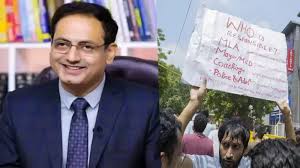

Drishti IAS sealed: Vikas Divyakirti's Drishti IAS in Mukherjee Nagar was one of the 29 coaching centres in Delhi whose basements where sealed by the MCD.
(NNI / Latest news / Latest news india / India latest news)
Chhattisgarh CM stresses skill-based education, AI for 2047 development
Latest News: 29th July 2024
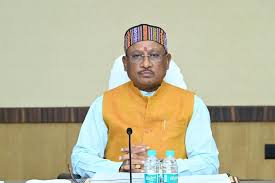

Chhattisgarh Chief Minister Vishnu Deo Sai on Saturday pitched for promoting skill-based education, natural dispensaries, and artificial intelligence in his state, as he committed his state's full support in achieving the goal of making India a developed country by 2047.
Speaking at the Governing Council meeting of the NITI Aayog, chaired by Prime Minister Narendra Modi, Sai listed various priorities and efforts being made for Chhattisgarh's development with an emphasis on education, human resource development, health, and technological advancement.
(NNI / Latest news / Latest news india / India latest news)
CSIR NET paper leak: Gang uses remote access software for cheating, 7 arrested
Latest News: 28th July 2024


The Uttar Pradesh Special Task Force (STF) has arrested seven people from Meerut who were allegedly part of the 'solver gang' who helped candidates in the CSIR NET examination held on Friday. The probe team found that the accused used remote access software to help candidates during the examination and also charged them hefty amounts of money.
Based on a tip-off, the investigation team conducted a raid in the computer lab of the Law department at Subharti University, a private university in Meerut, during the online CSIR NET exam, a qualifying examination to become Assistant Professors in science subjects.
(NNI / Latest news / Latest news india / India latest news)
DU advises colleges to avoid consecutive value addition classes, teachers react
Latest News: 27th July 2024
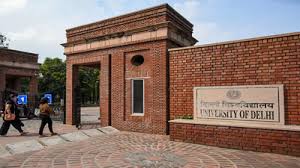

VAC courses at Delhi University are designed to enhance students' skills, knowledge, and employability beyond their regular curriculum.
(NNI / Latest news / Latest news india / India latest news)
Arunachal's Rs 2139 cr education budget covers major fee waivers, infra boost
Latest News Education: 26th July 2024


Arunachal Pradesh's 2024-25 budget has allocated Rs 2139 crore to education, focusing on infrastructure, scholarships, and alignment with the NEP 2020. It includes a 100% fee waiver for UG students at IIT, Rs 50,000 for higher education of girl children, and more.
(NNI / Latest news / Latest news india / India latest news)
NEET PG Admit Card 2024 to be released on August 8, direct link to download
Latest News: 25th July 2024


The National Eligibility cum Entrance Test-Postgraduate, NEET PG 2024 is set to be released on August 8, 2024. Registered candidates will be able to download their admit cards from the official website by entering their login credentials.
(NNI / Latest news / Latest news india / India latest news)
Over 30 crore students in India's schools and universities: Economic Survey
Latest News: 24th July 2024
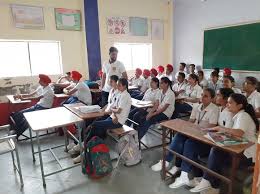

The Economic Survey 2023-24 revealed that over 30 crore students are a part of India's education system, showing significant progress in school, higher education, and skill development enrolments.
(NNI / Latest news / Latest news india / India latest news)
SC seeks IIT Delhi’s help to resolve NEET-UG question controversy
Latest News: 23rd July 2024
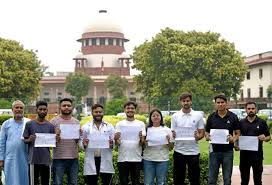

New Delhi The Supreme Court on Monday sought an expert opinion from IIT-Delhi to resolve a controversy over a NEET-UG 2024 question that awarded marks for two different answers – a decision that has the potential to trigger a complete overhaul of NEET ranks and affect the scores of over 2.3 million students who appeared for the exam that has already been mired in controversy over alleged paper leak and other malpractices.
(NNI / Latest news / Latest news india / India latest news)
NEET controversy: A call for quality education in India
Latest News Education: 22nd July 2024
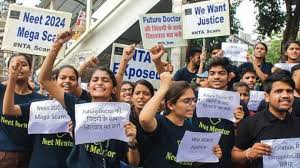

A bold yet necessary move is to establish world-class universities in every district of India. This could include a mix of global campuses, new IITs, and top private universities
The ongoing controversy surrounding the National Eligibility cum Entrance Test (NEET) in India has sparked intense debate and concern. The crux of the matter isn’t just about the exam itself, but rather the broader implications on the nation’s education system and future workforce. It’s high time we delve deeper into the underlying issues and explore viable solutions to ensure that our education system aligns with the aspirations of millions of students and the economic ambitions of the country.
(NNI / Latest news / Latest news india / India latest news)
(UPSC current affairs / UPSC / UPSC Preparation / UPSC Preparation Books / UPSC Preparation Strategy )
What is the disability quota in UPSC exams?
Latest News Education: 19th July 2024
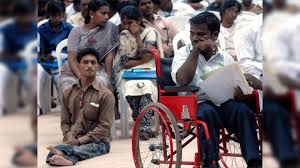

A disability quota is a reserved percentage of positions designated for individuals with disabilities. It aims to ensure equitable access and opportunities in education, employment, and other sectors for persons with disabilities.
According to the Persons with Disabilities (Equal Opportunities, protection of Rights and Full Participation) Act, 1995, three per cent of vacancies in government employment shall be reserved for people with disabilities. The three per cent is divided into blindness or low vision, hearing impairment and locomotor disabilities or cerebral palsy, with each category receiving a per cent each.
Disability Quota in UPSC Exams
The UPSC has a reservation policy for people with disabilities, which aligns with the Rights of Persons with Disabilities Act, 2016, and the Government of India’s guidelines on reservations for persons with disabilities.
(NNI / Latest news / Latest news india / India latest news)
(UPSC current affairs / UPSC / UPSC Preparation / UPSC Preparation Books / UPSC Preparation Strategy )
IIM Raipur and Nulearn announce admissions for 5th batch of executive MBA
Latest News: 18th July 2024
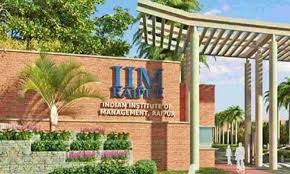

The eMBA programme is handcrafted for professionals with a minimum of three years of work experience. Combining online course delivery with on-campus immersion, this programme's structure aims to provide a seamless blend of theoretical knowledge, practical application, and exposure to industry trends from the comfort of home.
IIT Guwahati launches innovative projects for educational excellence in Meghalaya
Latest News: 17th July 2024
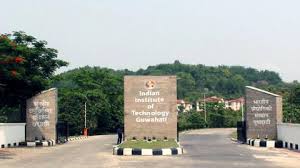

So far, over 50,000 students across 2200 schools have been covered under the initiative in the state of Meghalaya.
IIT Madras Aims to Make India Global Chess Powerhouse
Latest News: 16th July 2024


The IIT Madras Center of Excellence in Sports Science and Analytics (CESSA) just recently announced a plan to make India the world’s most important chess hub. The news was shared at the “Sports Tech Start-Up Conclave” in New Delhi.
‘Prelims and Advanced, responsibility to state’: Here’s how NEET UG can be conducted, some suggestions
Latest News: 15th July 2024
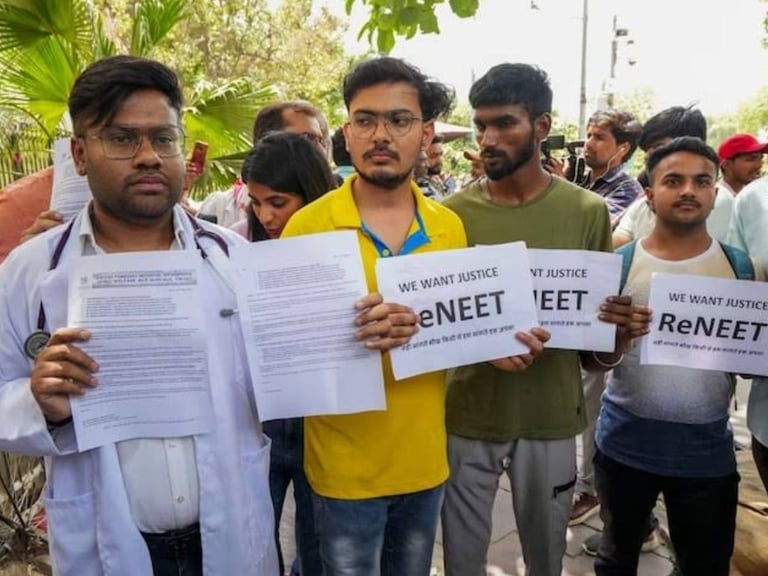

NEET UG 2024: Chief Justice of India DY Chandrachud will hear petitions in NEET UG 2024 controversies on July 18.
NEET UG Row: The government had given the provision to stakeholders - students and parents - to share suggestions, views and ideas on how NEET UG can be conducted to minimise irregularities between June 27 and July 7
(NNI / Latest news / Latest news india / India latest news)
CUET UG 2024: Delay in result may push first semester classes to August 16, says DU Vice Chancellor
Latest news 14th July 2024
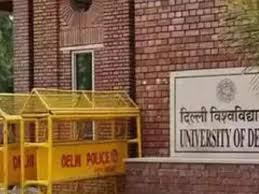

The semester for first year students was scheduled to begin on August 1, but may now be postponed to August 16 due to delay in CUET UG Results 2024.
JNU establishes 3 new centres for Hindu, Buddhist and Jain studies
Latest news 14th July 2024
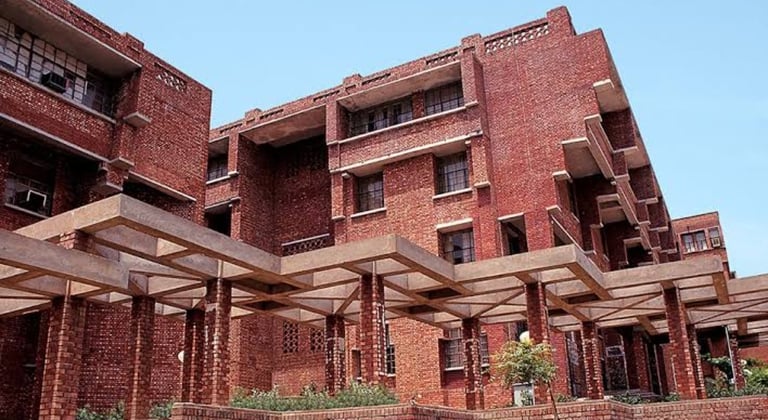

The three new centres -- centres for Hindu, Buddhist, Jain studies are set to be established under the School of Sanskrit and Indic Studies.
GATE 2025: IIT Roorkee to conduct exams on February 1, 2, 15, 16
Latest news 14th July 2024
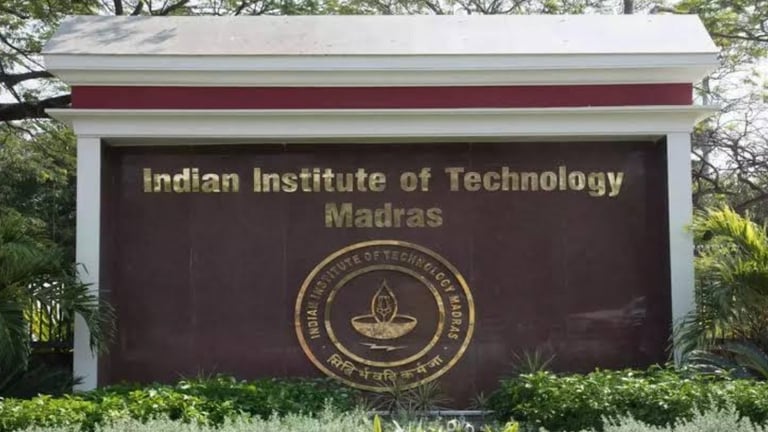

GATE 2025 exam dates: The Indian Institute of Technology (IIT) Roorkee has announced the exam dates for the Graduate Aptitude Test in Engineering (GATE) 2025. GATE 2025 will be conducted on February 1, 2, 15 and 16, 202
GATE 2025 will be held as a computer-based test (CBT) for a total of 30 test papers. The examination will be conducted in both forenoon and afternoon sessions. The application portal is expected to open in the last week of August 2024, an IIT Roorkee statement said.
IIT Madras to provide Rs 5 crore to sports startups; to introduce 4-year course on sports science


The institute also aims to support Indian government initiatives and various sports bodies' efforts towards hosting the Olympics in 2036
NEET UG 2024 hearing highlights: Supreme Court hearing on ‘paper leak’ petitions postponed to July 18
NEET UG 2024 hearing highlights: The hearing of petitions filed in the Supreme Court against the alleged paper leak in NEET UG 2024 has been postponed to July 18. A bench led by Chief Justice D Y Chandrachud will hear a series of petitions concerning the controversial NEET-UG 2024 medical entrance exam. These include pleas alleging irregularities and malpractices during the May 5 test and seeking a fresh examination. During a previous hearing on July 8, the Supreme Court said that the integrity of NEET-UG 2024 had been compromised. In an additional affidavit submitted on Wednesday, the Centre stated that, in compliance with the Supreme Court's directives, the Ministry of Education had requested IIT Madras to conduct comprehensive data analytics of the results of NEET-UG 2024 candidates.



